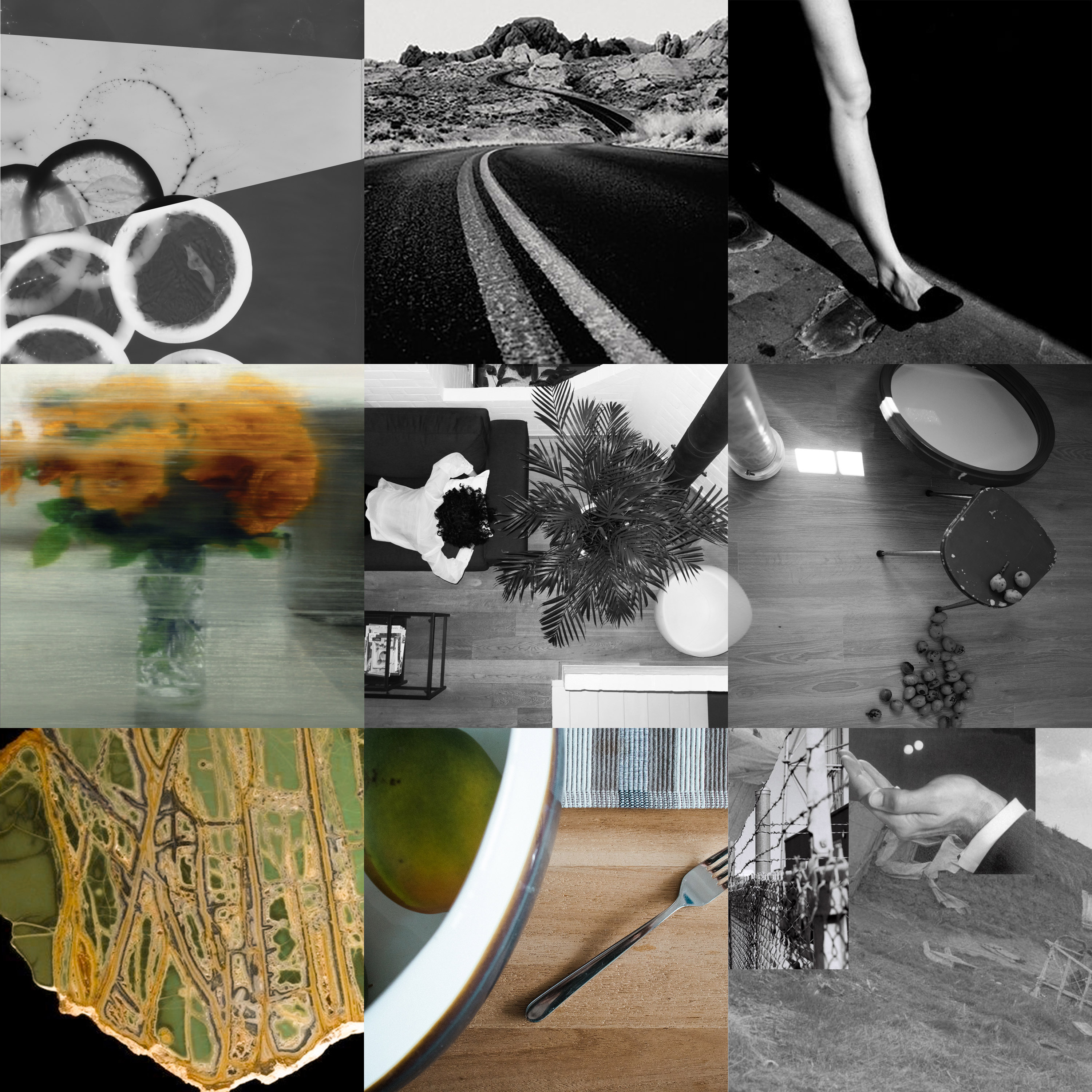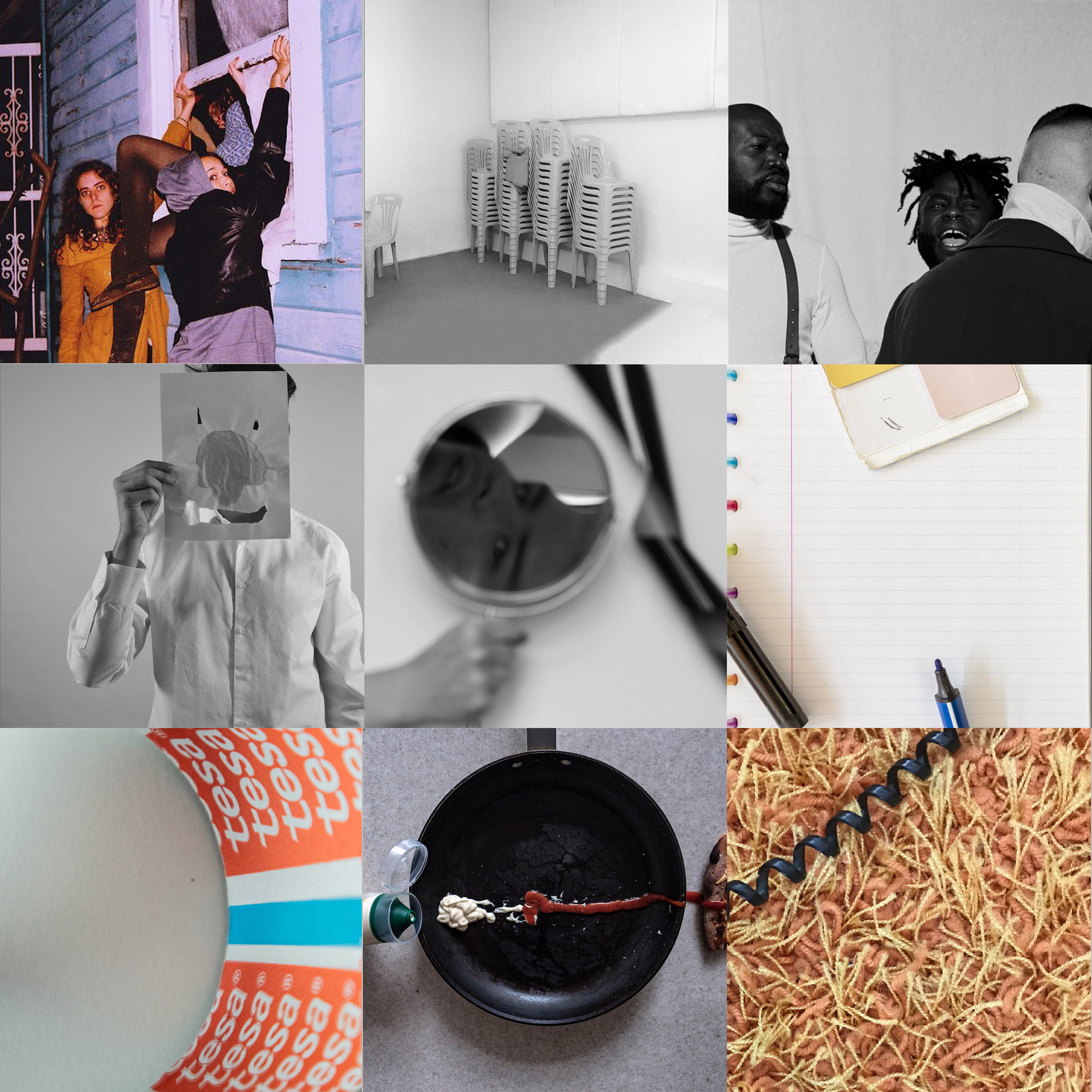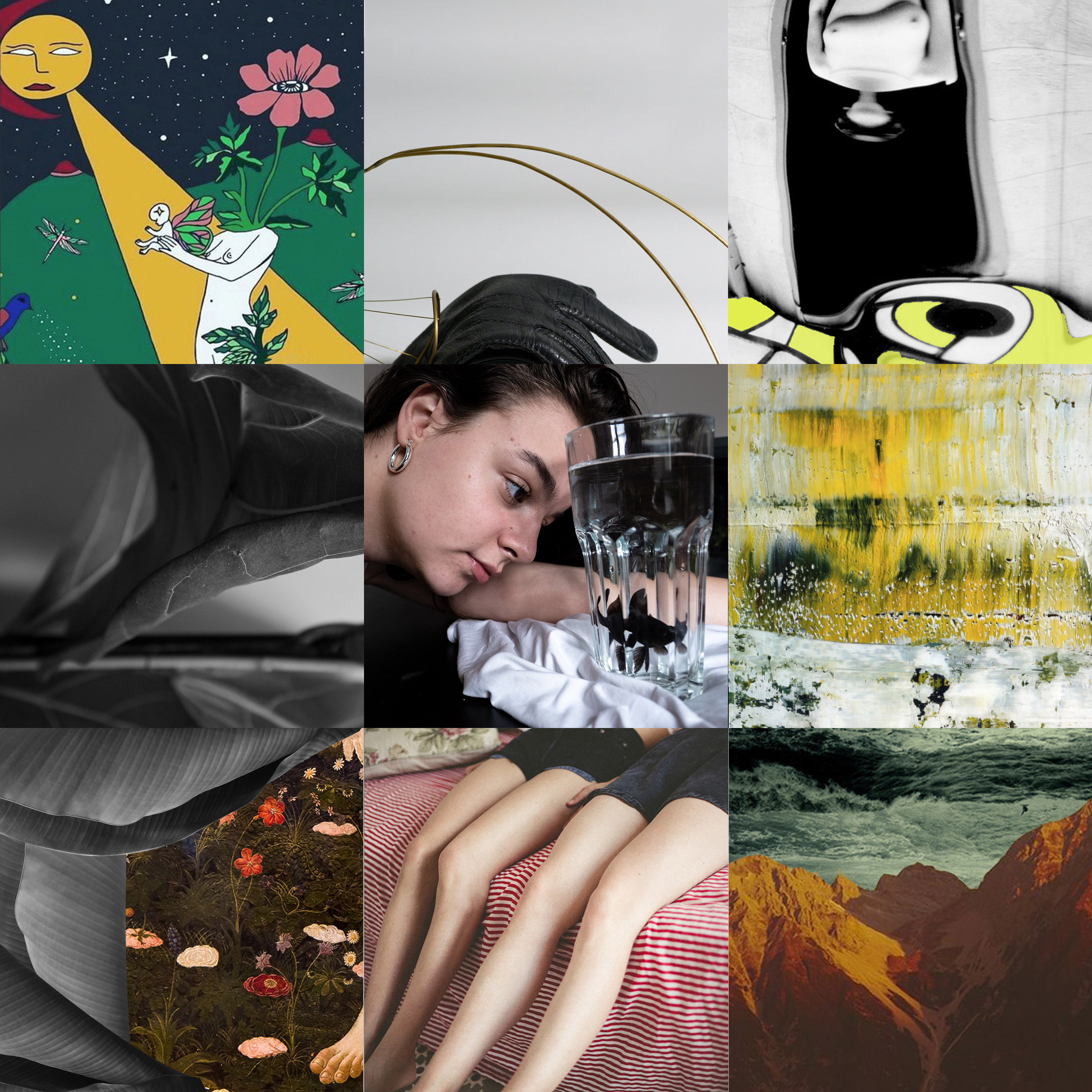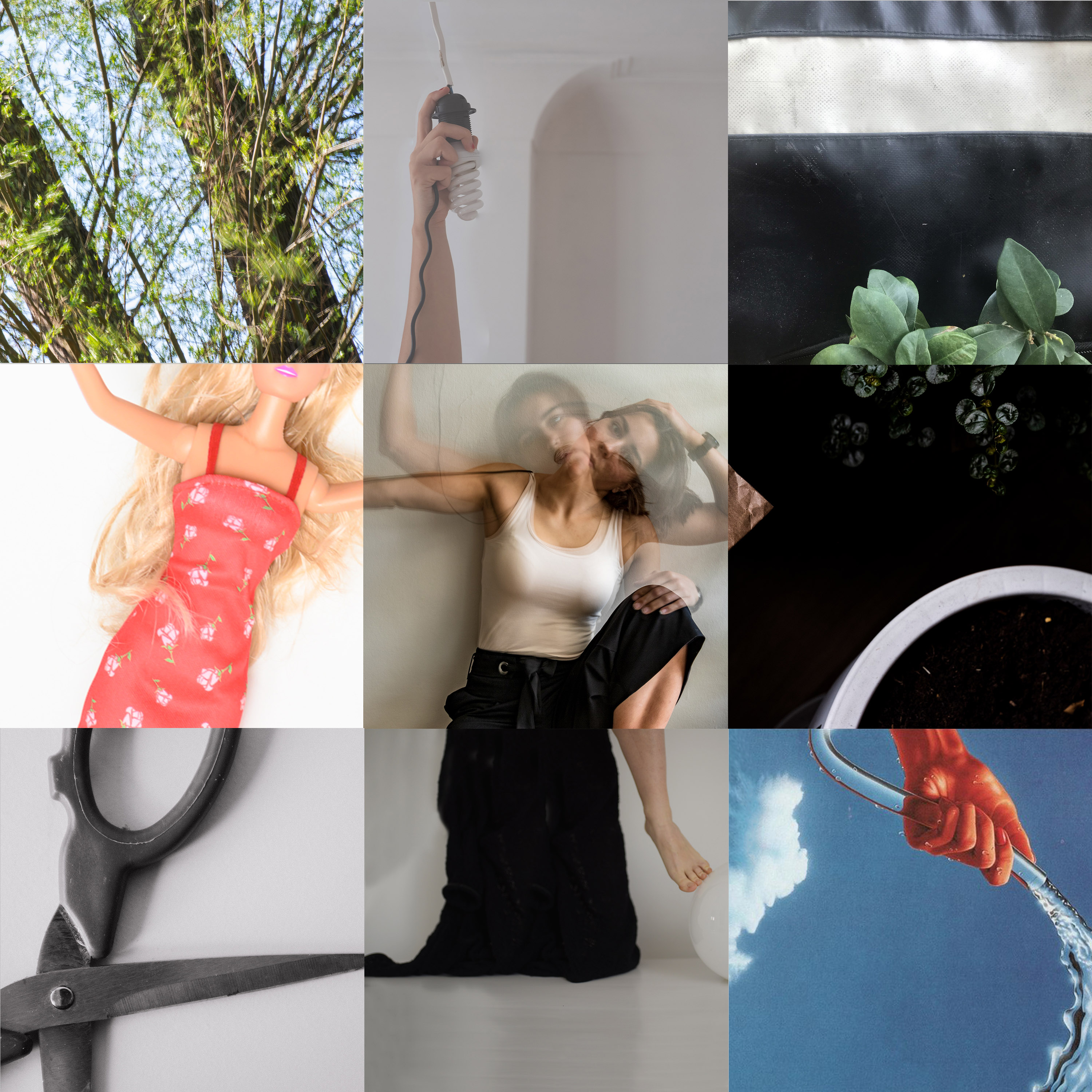|
KILLING TIME presents work that starts from the absurd situation of the quarantine. The idea is to think about the meaning of the meaningless. To make up visual games, unnecessary actions, ask useless questions, and make things that nobody asks for. By turning the physical space where each student is located into a form of stage, they can perform experiments, improvise and play; the basis of every creative, artistic process.
|
navigate
APRIL 21, 2020.
CADAVRE EXQUIS
Today's assignment was based on CADAVRE EXQUIS, an experiment of the surrealists in the 1920ies.
Cadavre exquis is (originally) a poem written by several poets, without knowing the parts written by the others. This technique was developed in the entourage of André Breton and Paul Eluard. The cadavre exquis (French for: excellent corpse) is an example of surrealist technique (like automatic writing), in which an attempt is made to make art from the subconscious.
The process is rather simple, the result is not. The first writer writes a line on a piece of paper. Then he writes the first word of the second line and folds the paper in such a way that the first line is covered. The second writer then continues with the first word (or the last if it has to rhyme). He is guided (or not) by what he thinks of the first line by means of the word. He also writes a word for the third writer and so on.
We did the same but photographically: 9 teams were created with each a grid of nine images. The one in the center started and sent her/his image (a self-portrait) to 4 others in the team with the question to continue the image on the 4 sides. Then the 4 participants sent their image to the 4 last ones in the team to finish the corners of the grid.
Thus creating 9 'Cadavres'
or 'Gesamtkunstwerke'.
We looked at Dada, Surrealism, Fluxus, John Stezaker, John Baldessari and this!
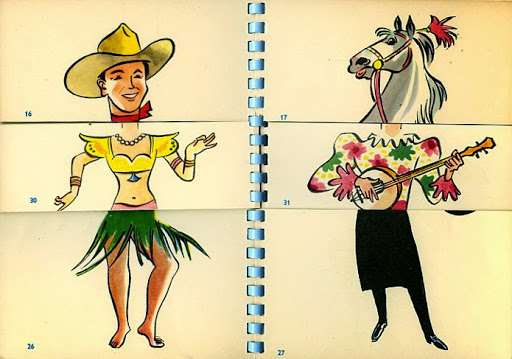
|
All the works below are 'Gesamtkunstwerke' by
Violeta López (MA) - Sarah Kirchner (1BA) - Bruce Bomfim (2BA) - Robert Sasarman (1BA) - Eva Thurman (1BA) - Aron Viszló (2BA) - Daria-Ana Oprean (1BA) - Ana Lucía Fernández (1BA) - Iris Maselis (1BA)
|
|
navigate
APRIL 14, 2020
ALPHABET
For today's assignment, the students were invited to compile an alphabet, inspired by educational prints to learn how to read, etc.
We also looked at Martha Rosler's 'Semiotics of the Kitchen' (1975), John Baldessari's 'Teaching a Plant the Alphabet' (1974) and William Wegman, Marcel Broothaers, Andy Warhol, Lynne Cohen, ... and Kermit the frog !
The participants had to make 26 images, each with one letter (and one object) as theme. Below you will find axamples of the first three images (click on the images for the full pdf.)

|
click to see the full PDF

click to see the full PDF

click to see the full PDF

click to see the full PDF

click to see the full PDF
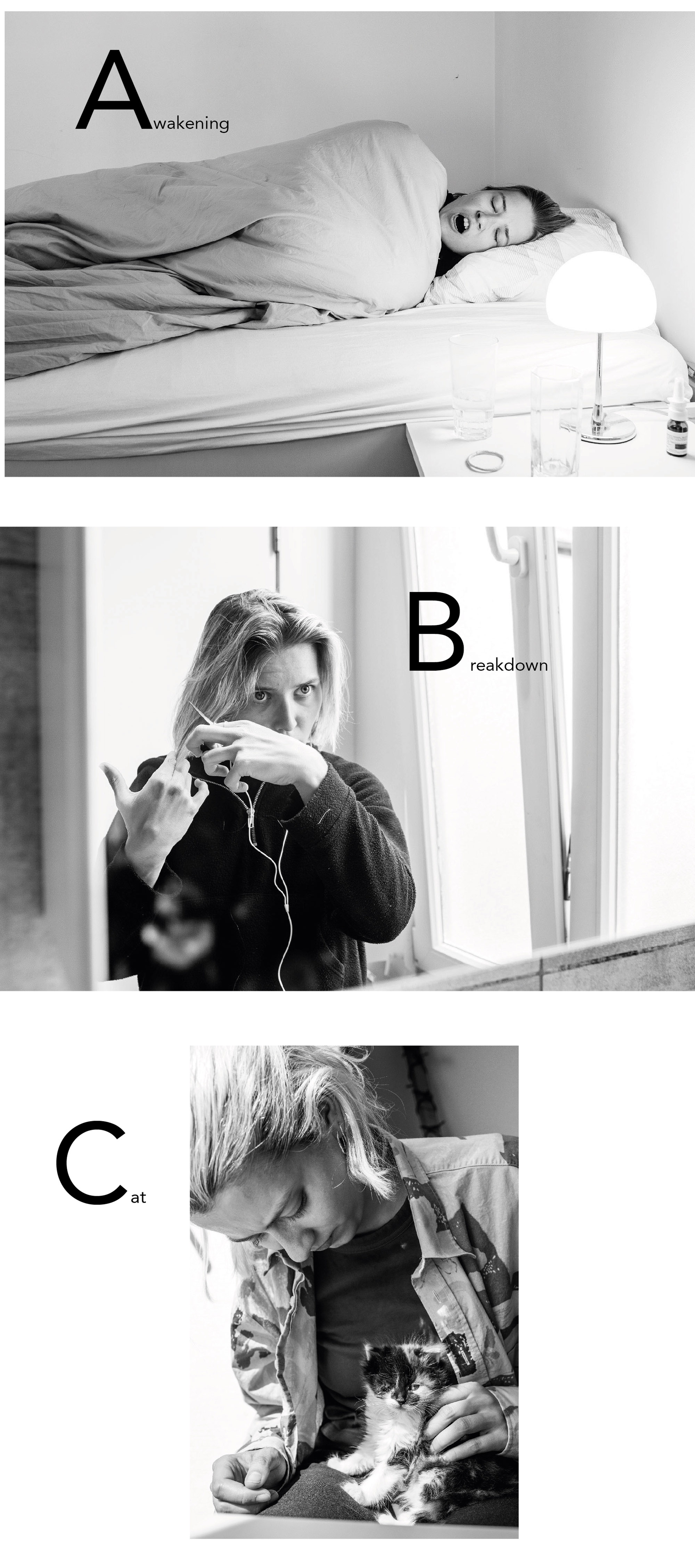
click to see the full PDF
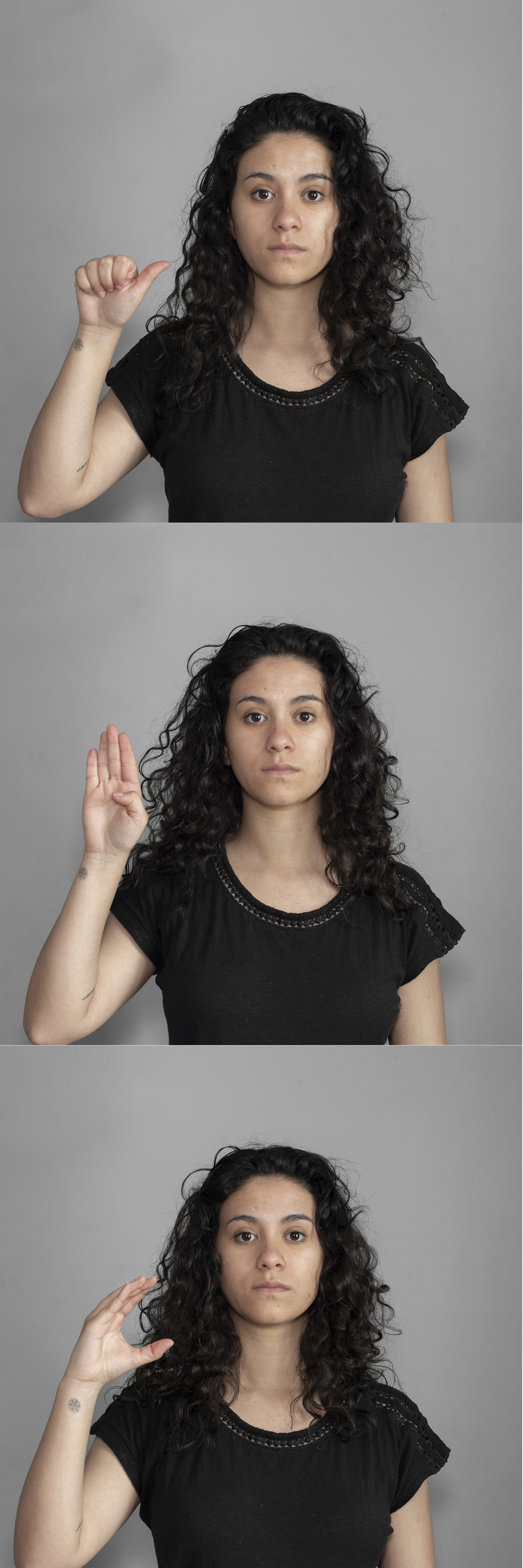
Ana Lucia Fernández (1BA) |
click to see the full PDF
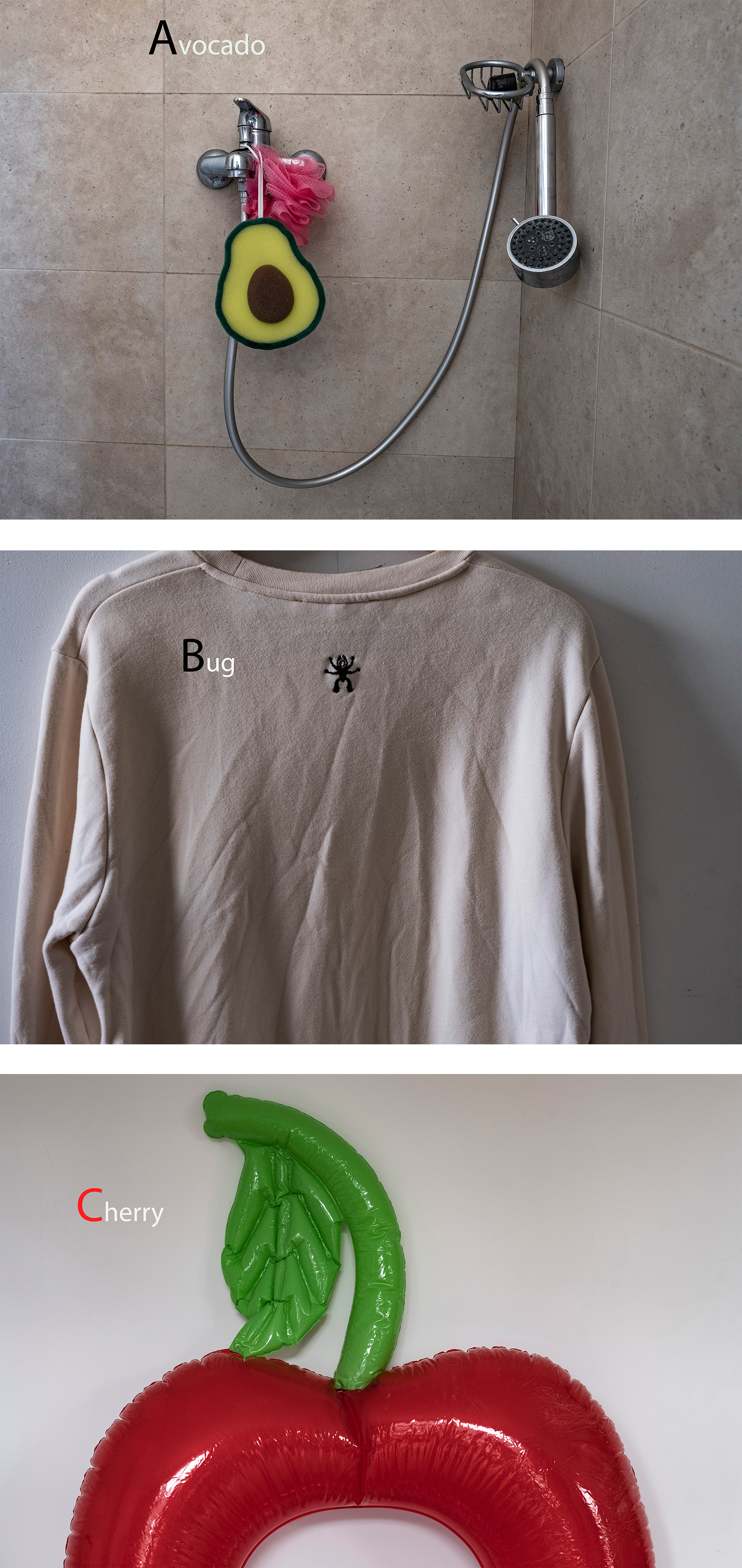
click to see the full PDF
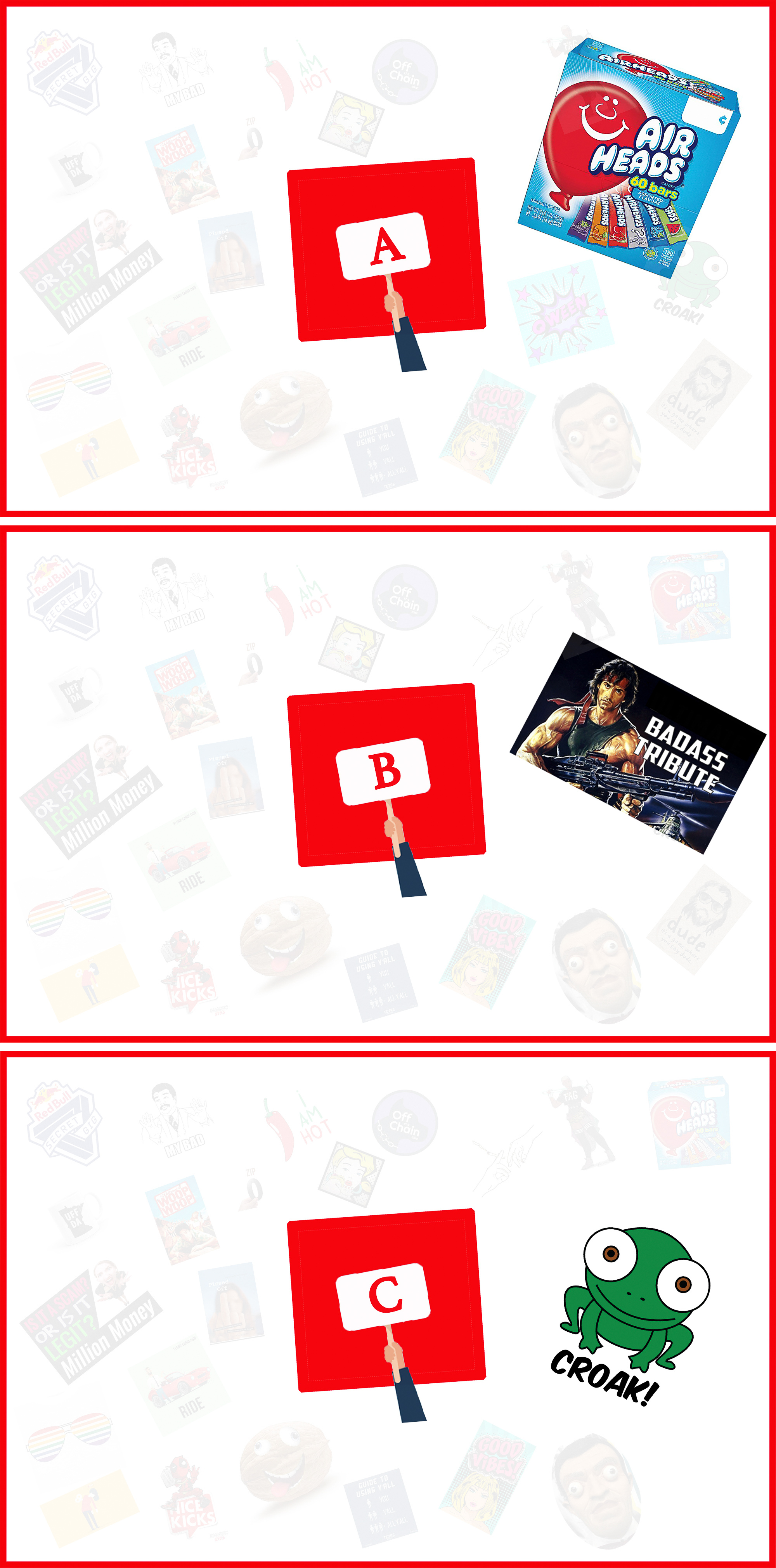
|
|
navigate
APRIL 7, 2020
THE FLY
Today's assignment was more or less stolen from Martin Parr. I once witnessed this during a five-day workshop with him. On the first day he asked the workshop participants to imagine that they were flies: how do flies perceive, where are they, what happens to them?
I want you to become a fly and use the camera as the eyes of the fly. The effect of the assignment was that the participants had to take extreme positions, think about visual transformations, etc.
Construct a chronological narrative about the life of the fly in your apartment in five images. |




Ana Lucia Fernández (1BA) |






|
|
navigate
March 31, 2020
PHOTOGRAPHY AND CUBISM
Each photo refers to a moment in time (including the most staged photo, which refers to the moment the camera captured the staging). French philosopher Roland Barthes described this essential feature as 'Ça a été' (it has been, it has taken place).
Each photo is also an image that is created by directing the gaze (and thus the camera) from one specific point of view. That position determines how reality will be depicted. See also the work of Jan Dibbets and how 'reality' in his photos depends on the point of view.
The frame is also very characteristic of the photo image. Something falls within or outside the frame. The frame is like the stage in theater, it is clearly demarcated and it determines the meaning of what can be read in the frame. (the frame can of course also suggest activity outside the frame, but then through elements discernible within the frame).
The painter David Hockney experienced the photo image as too limited because it depended on the three elements 'moment', 'point of view' and 'frame'. After all, as a painter he could work on one painting for weeks. He could walk around his subject, experience it from different positions, and eventually create an image that was a synthesis of perception and not, as in photography, an analysis of it.
Cubist artists had the same reservations at the beginning of the 20th century about painting and the limitation it posed when it came to providing a true representation of reality. They simultaneously painted their subjects from the front, back, bottom and top, opening the image up into an illogical cubist perspective.
The rise of photography meant that painters became less concerned with merely depicting reality. This is how Impressionism, Expressionism, Abstract art, Cubism, Conceptual art ...originated. In turn, these movements had an influence on photography.
Today's mission was to find solutions that liberate photography from the straitjacket of one point of view, one moment in time and one framework within which everything takes place. Be inspired by David Hockney's photo collages, but certainly also by cubist painting. |
|
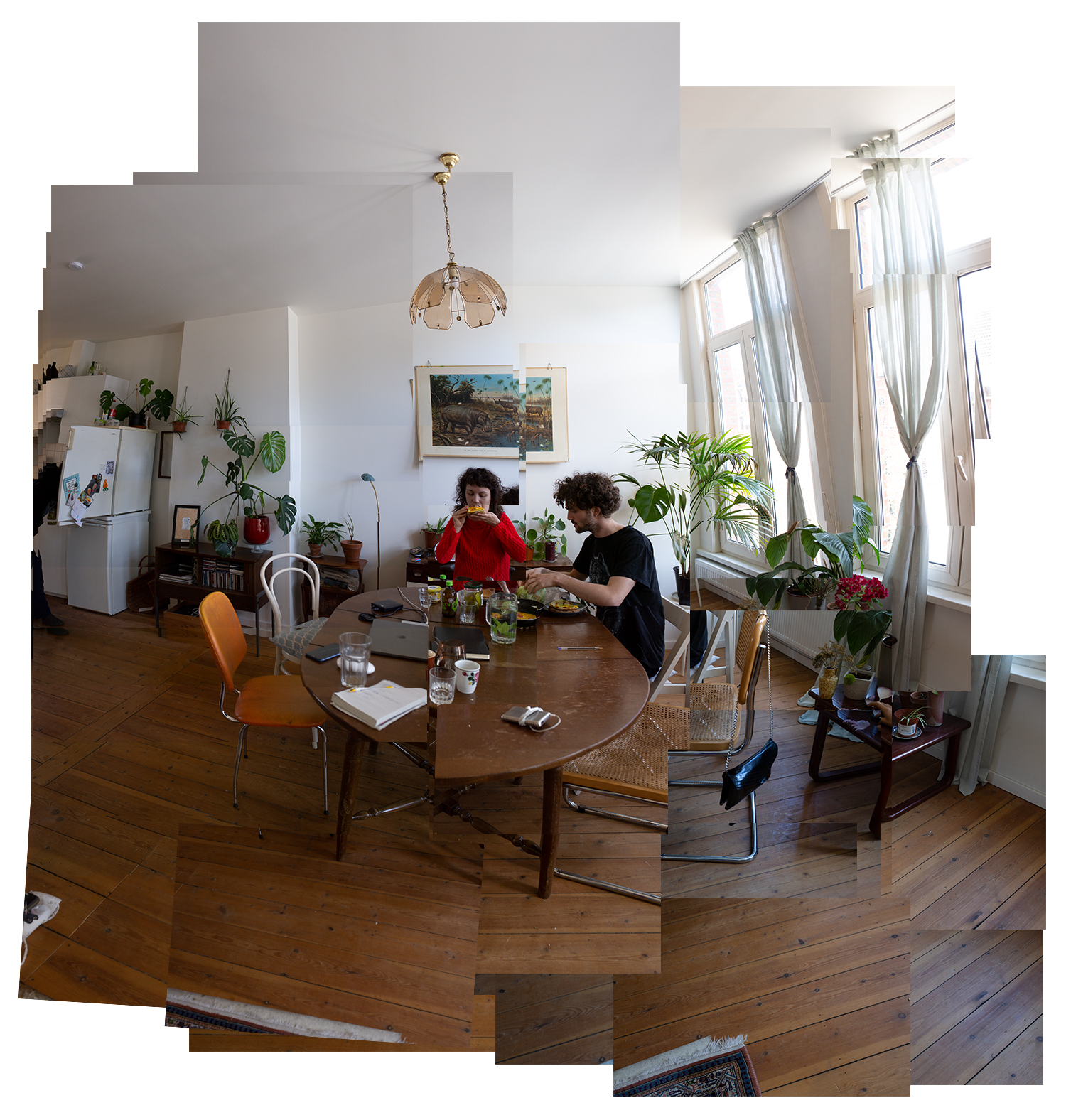
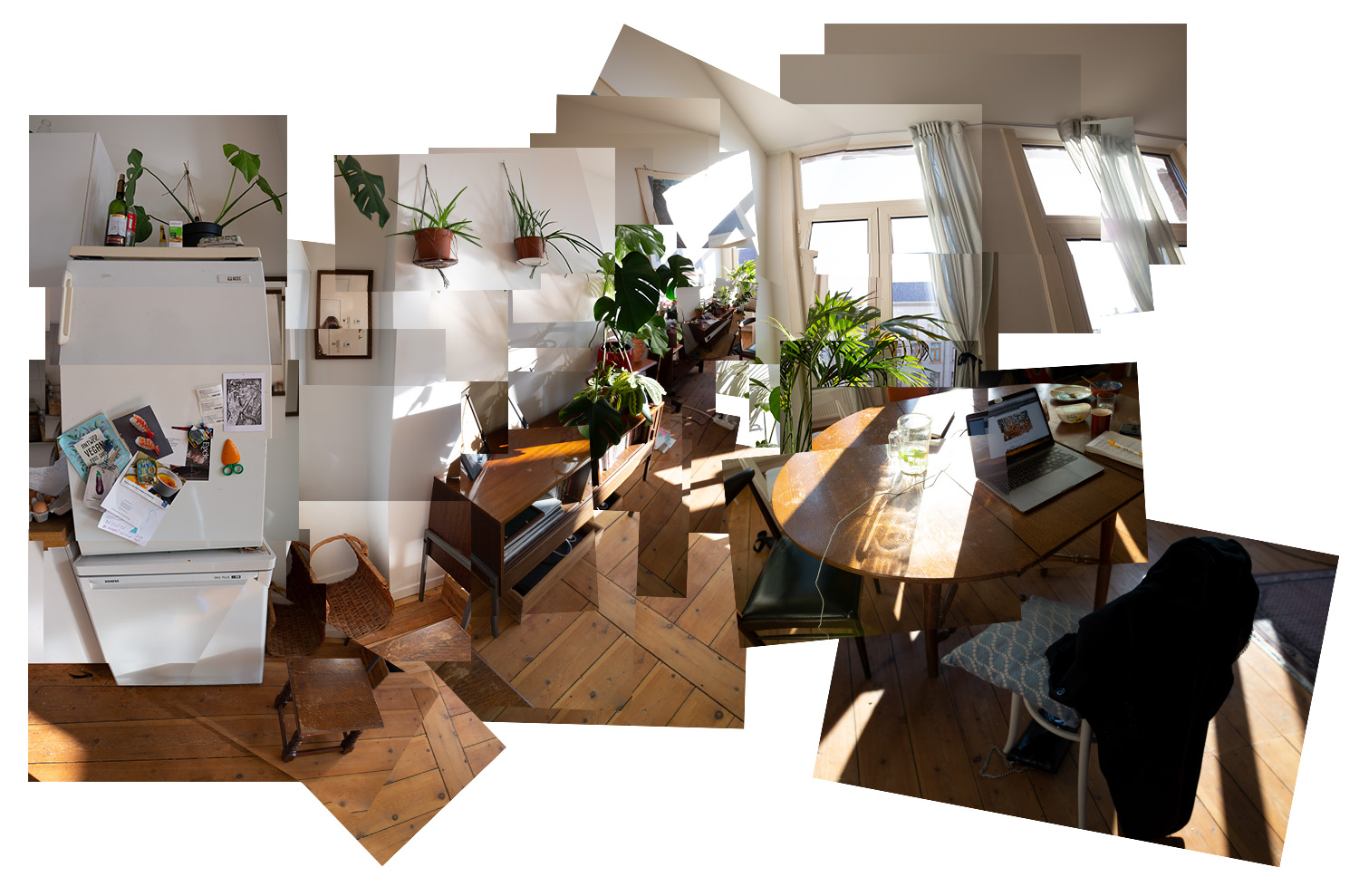
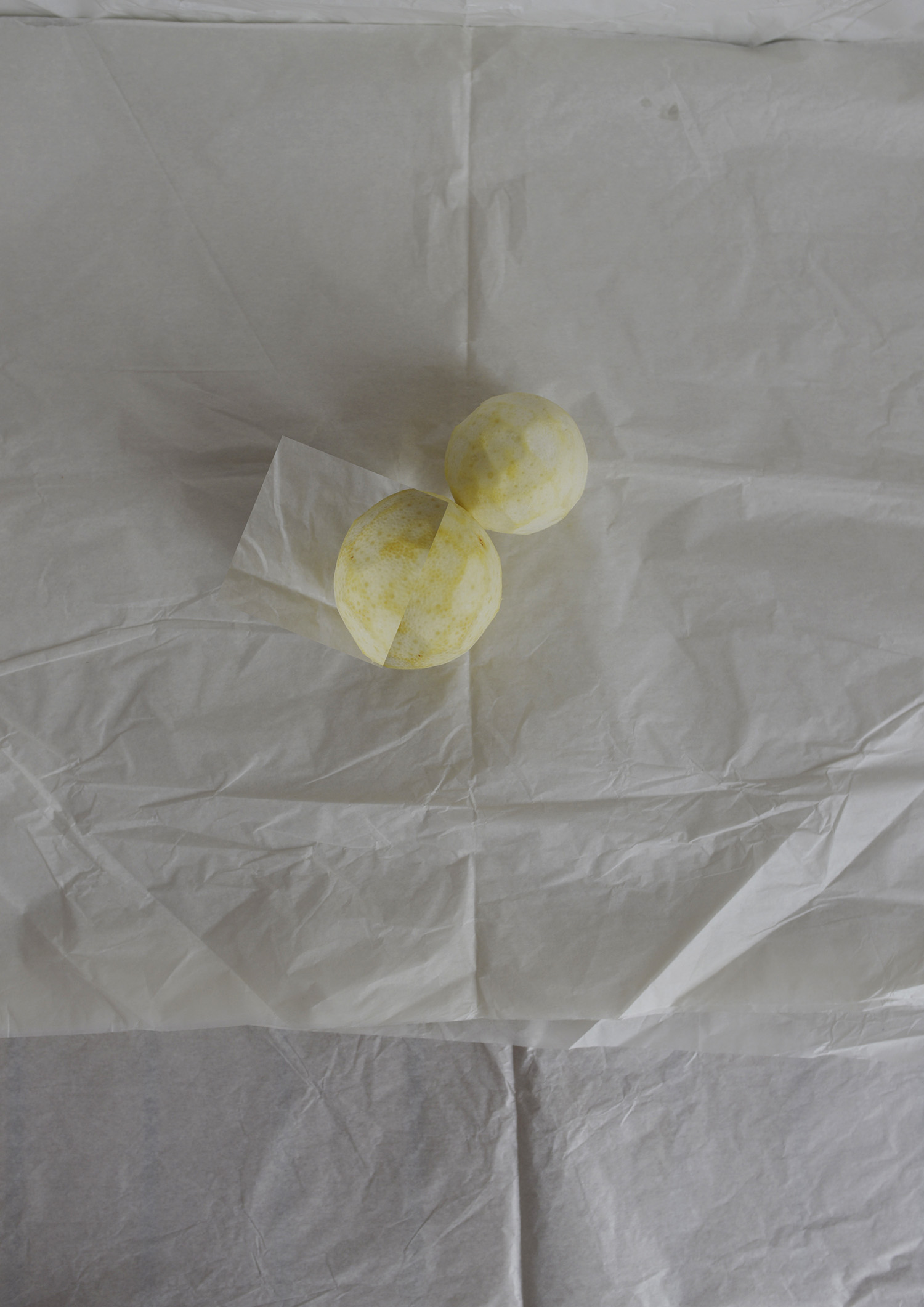
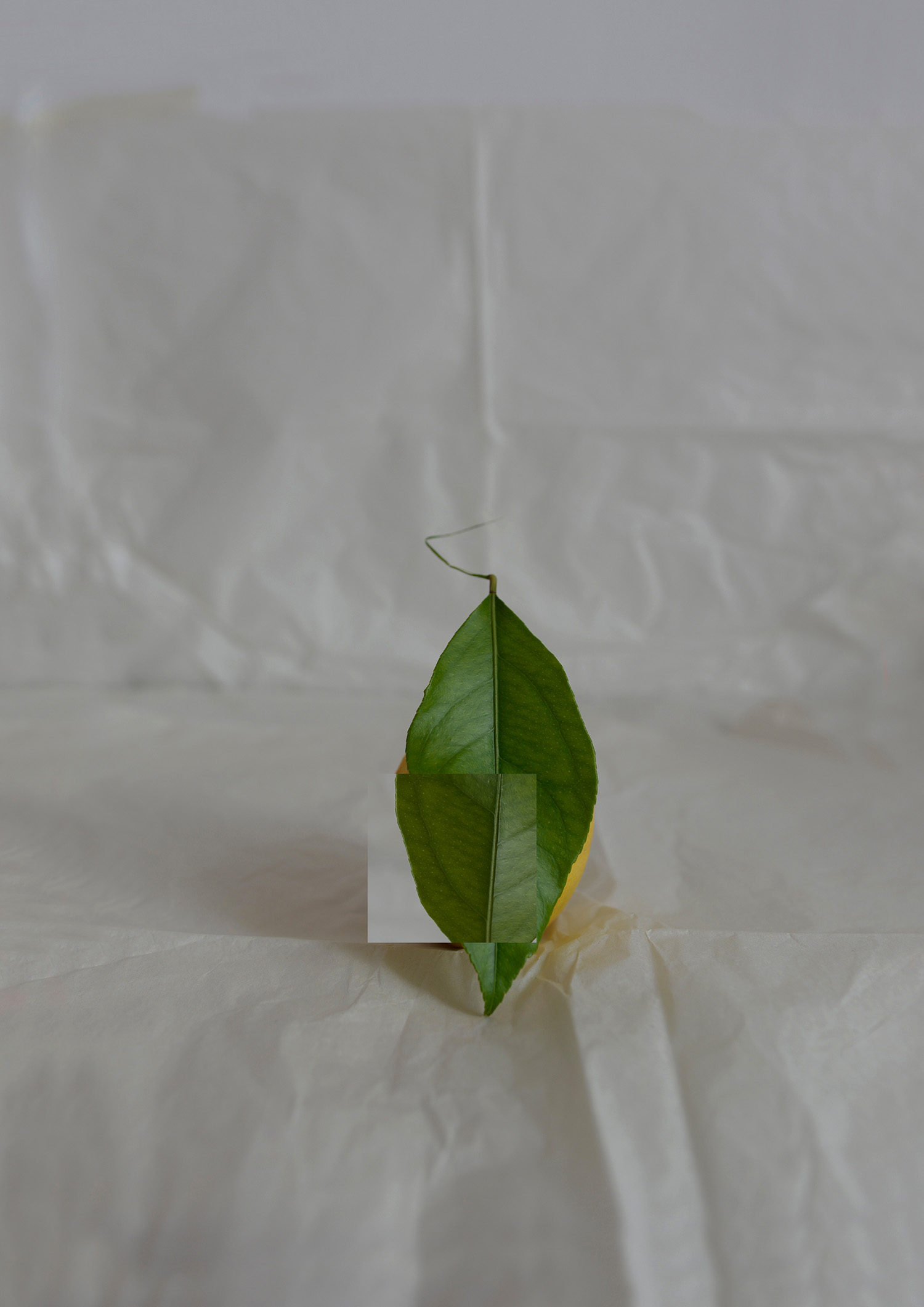
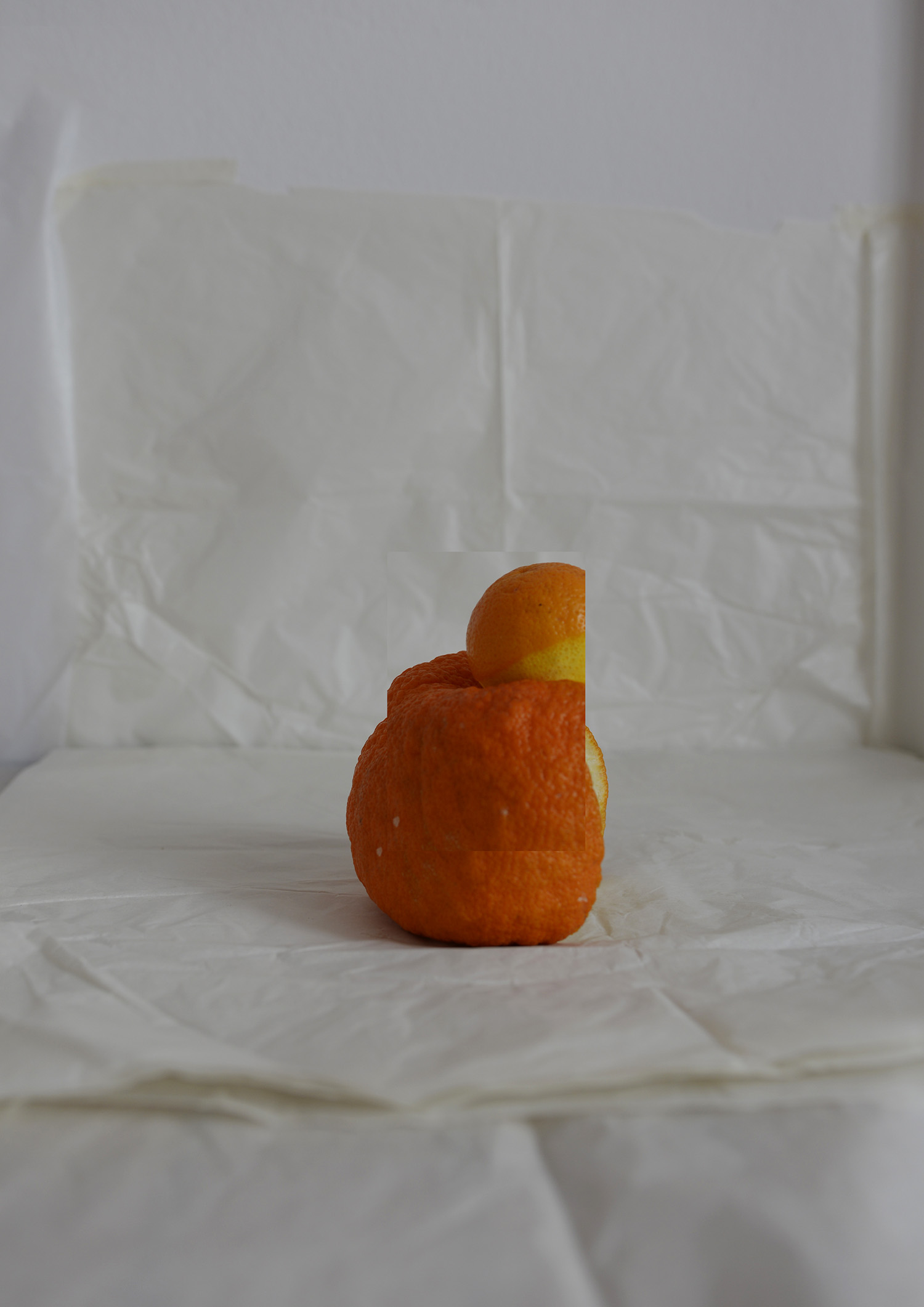
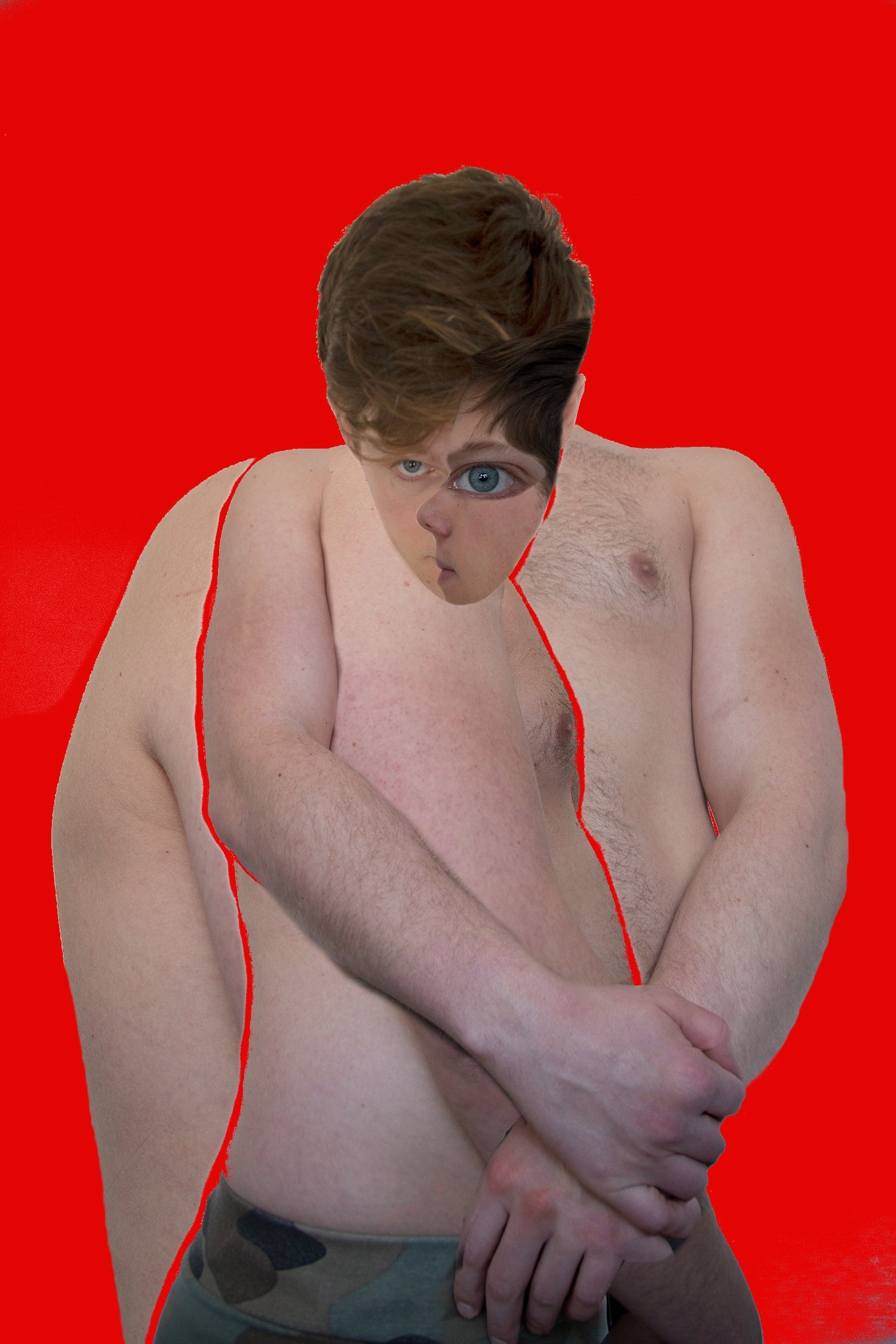
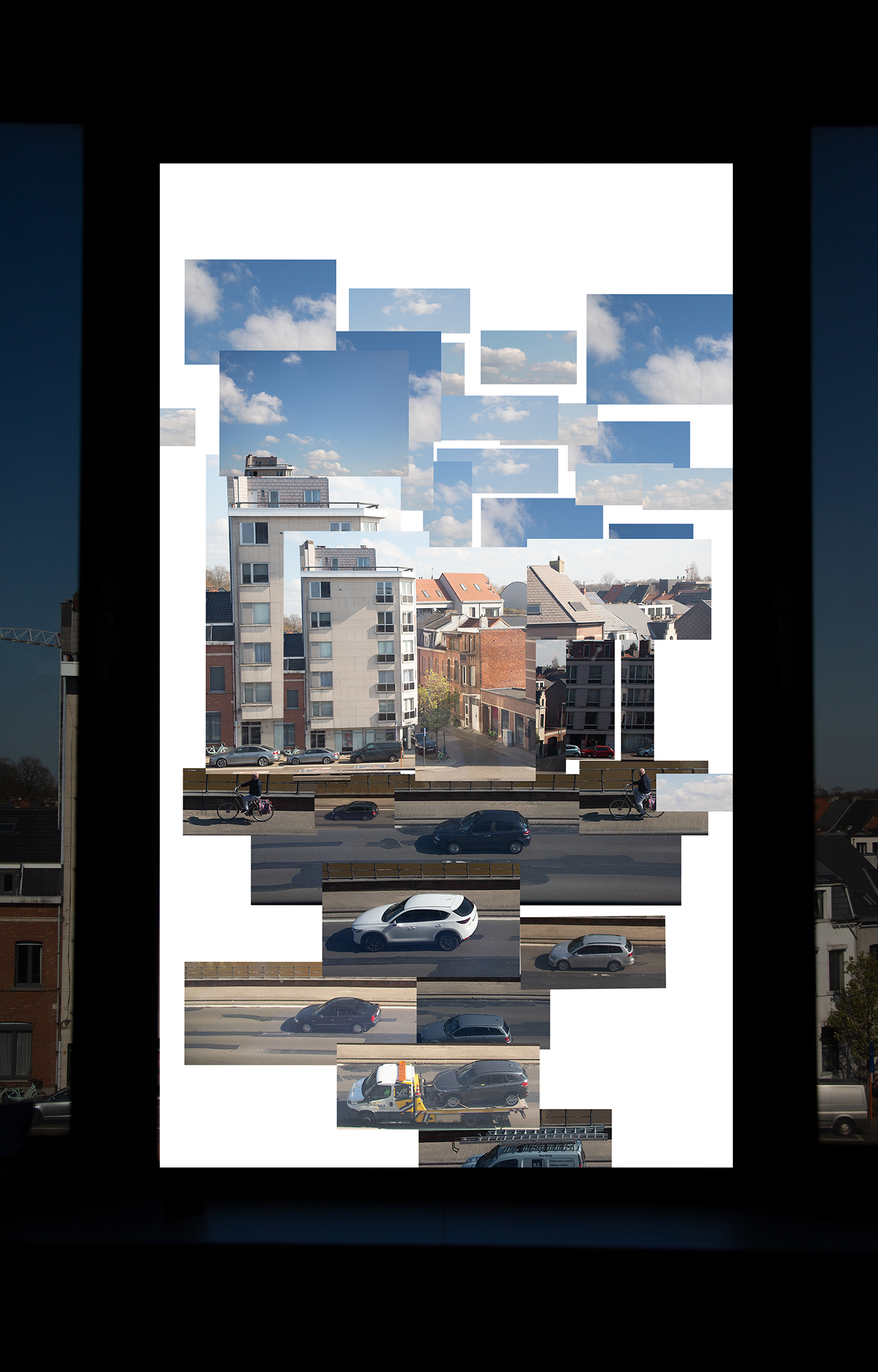
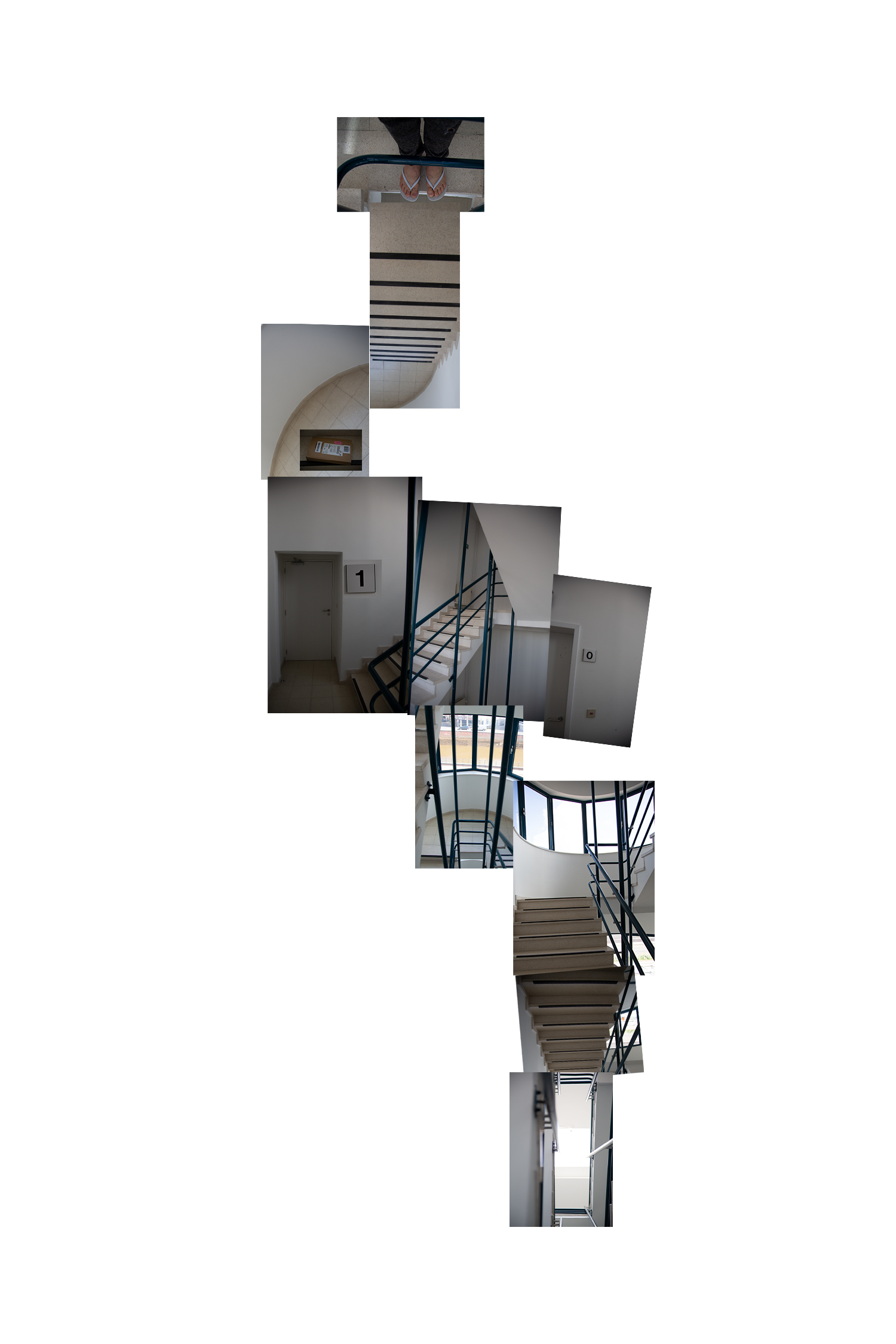
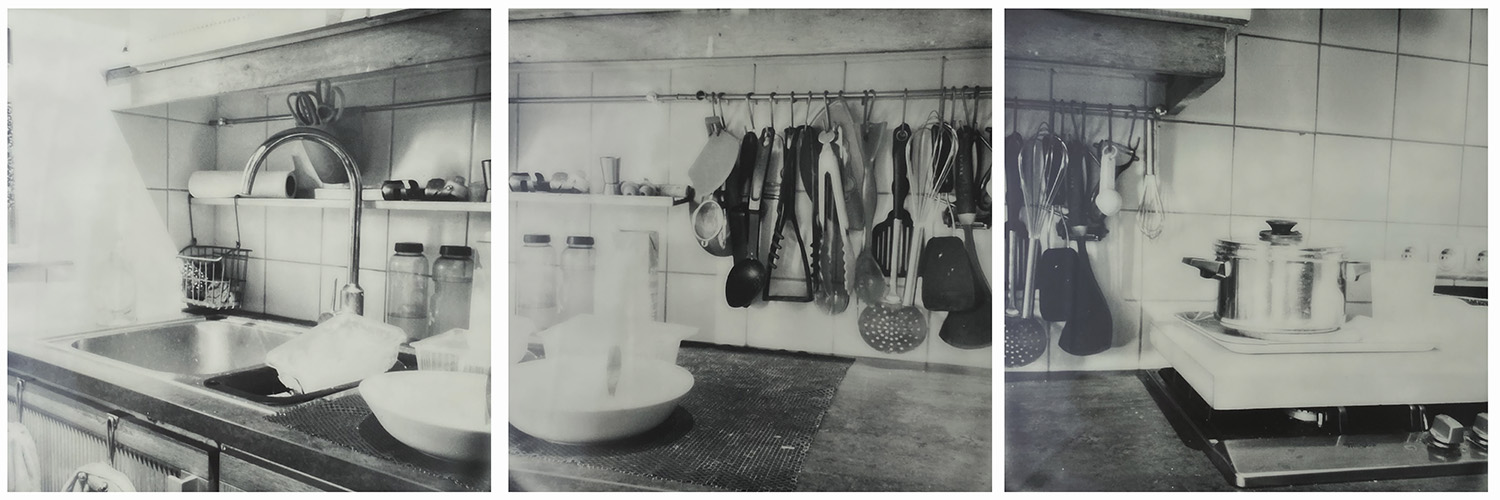
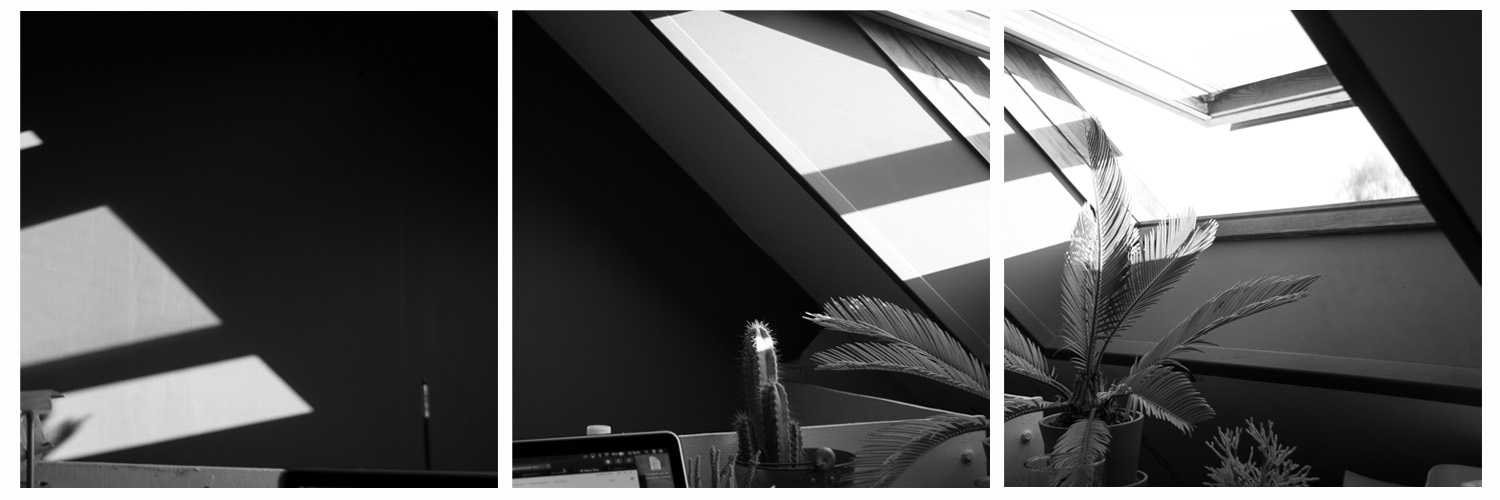
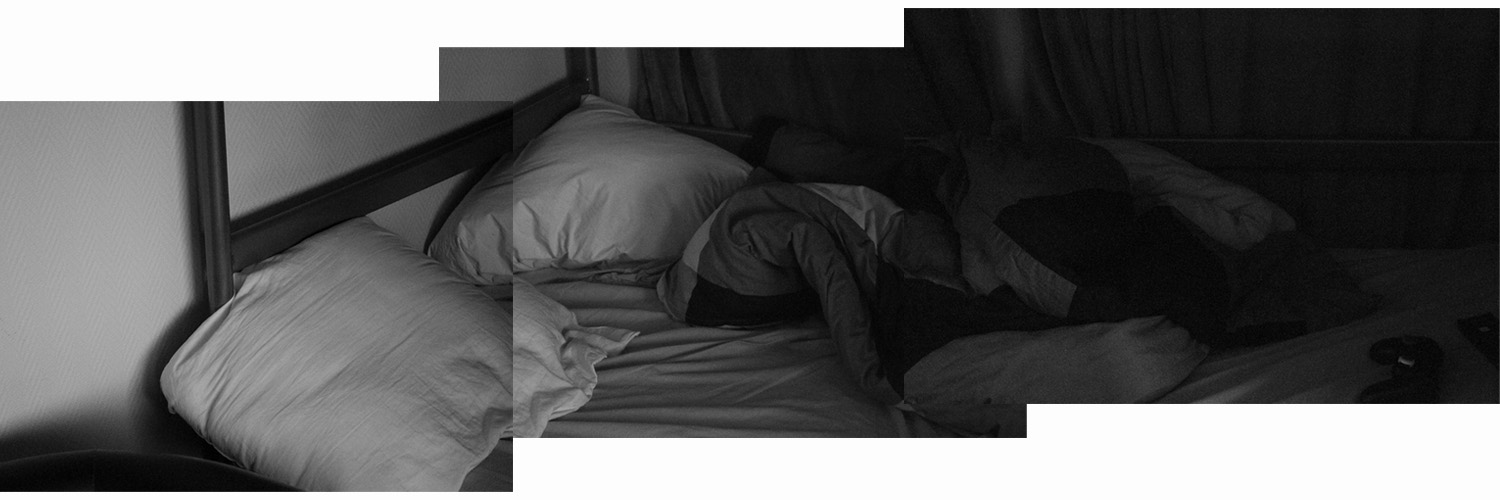
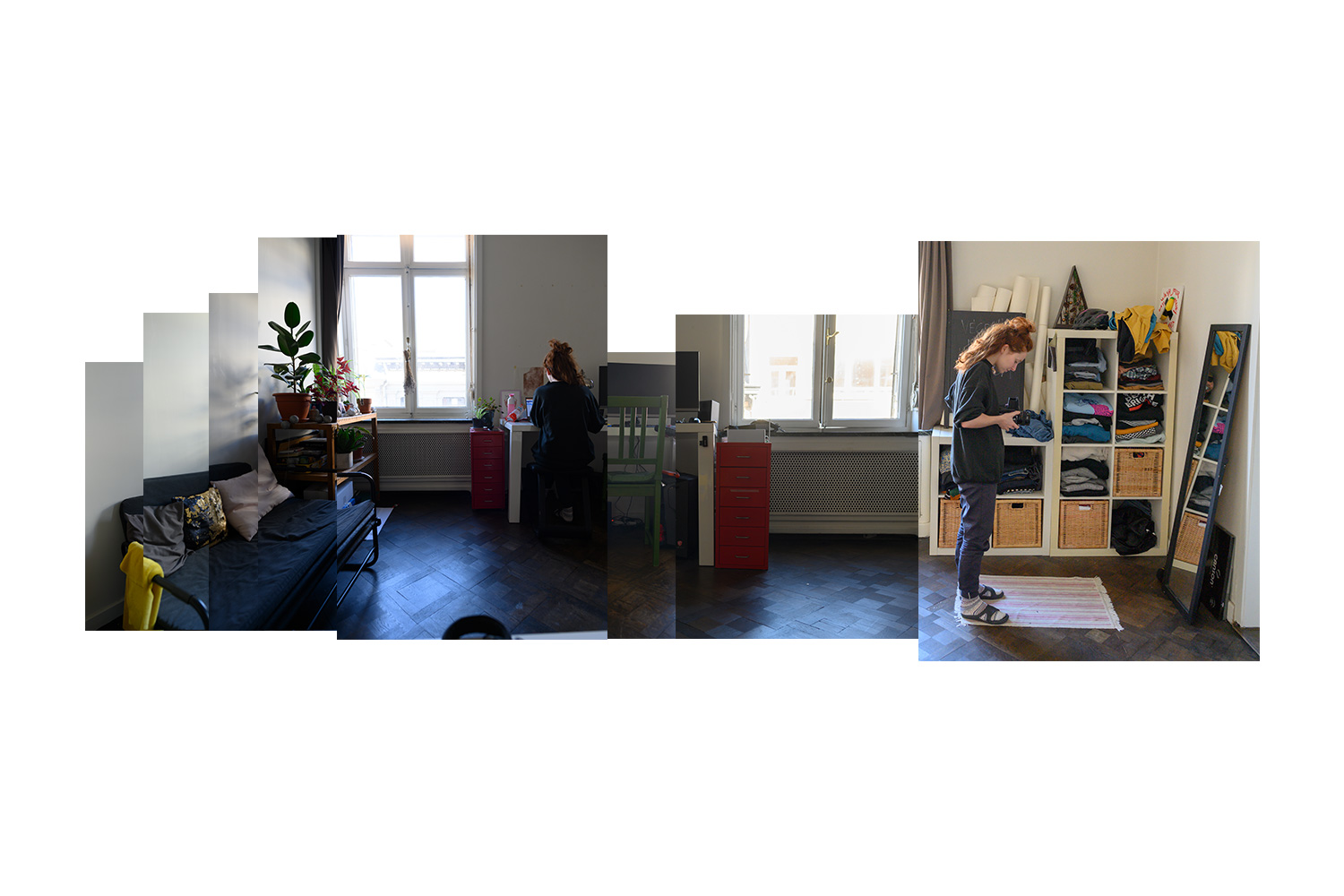
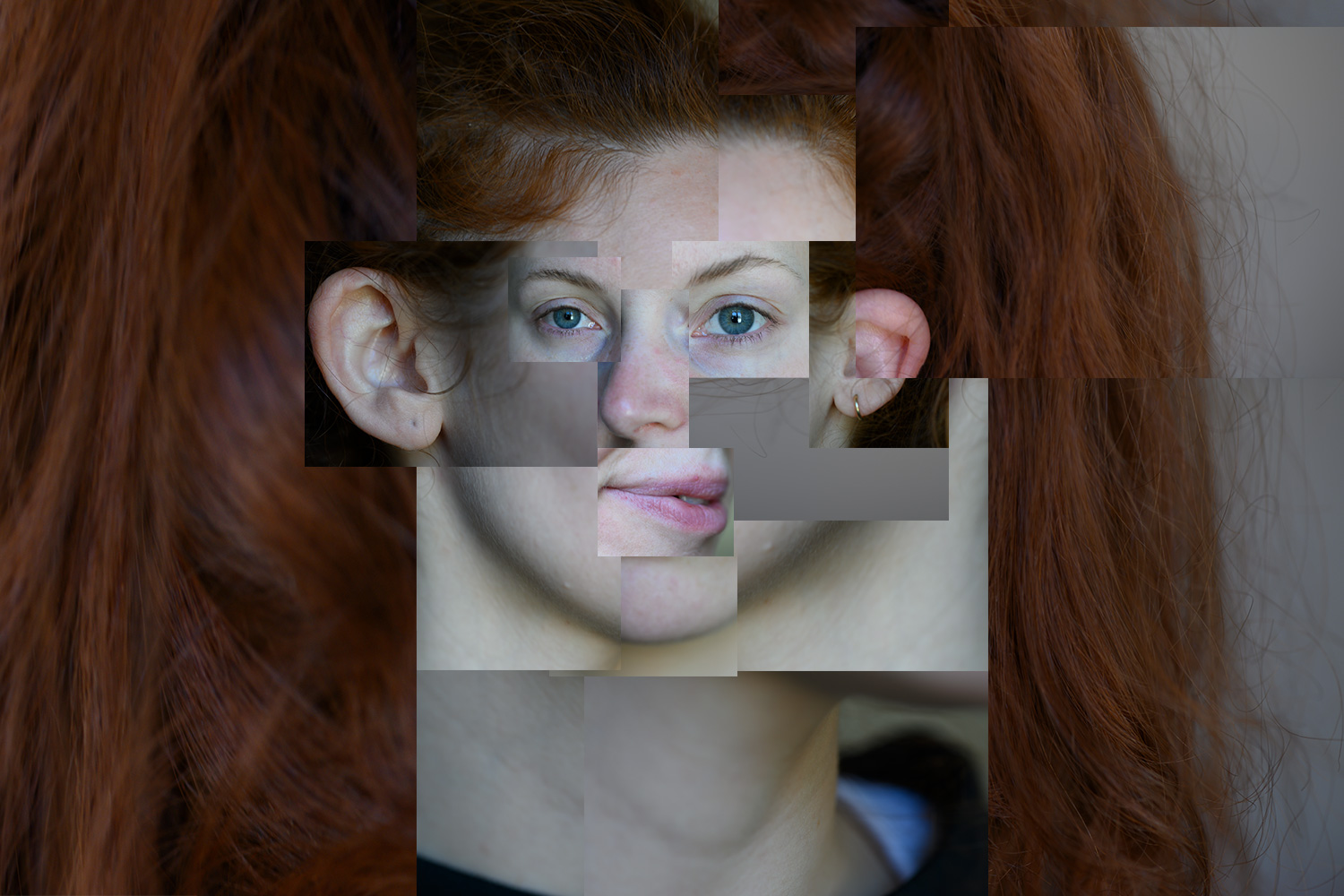
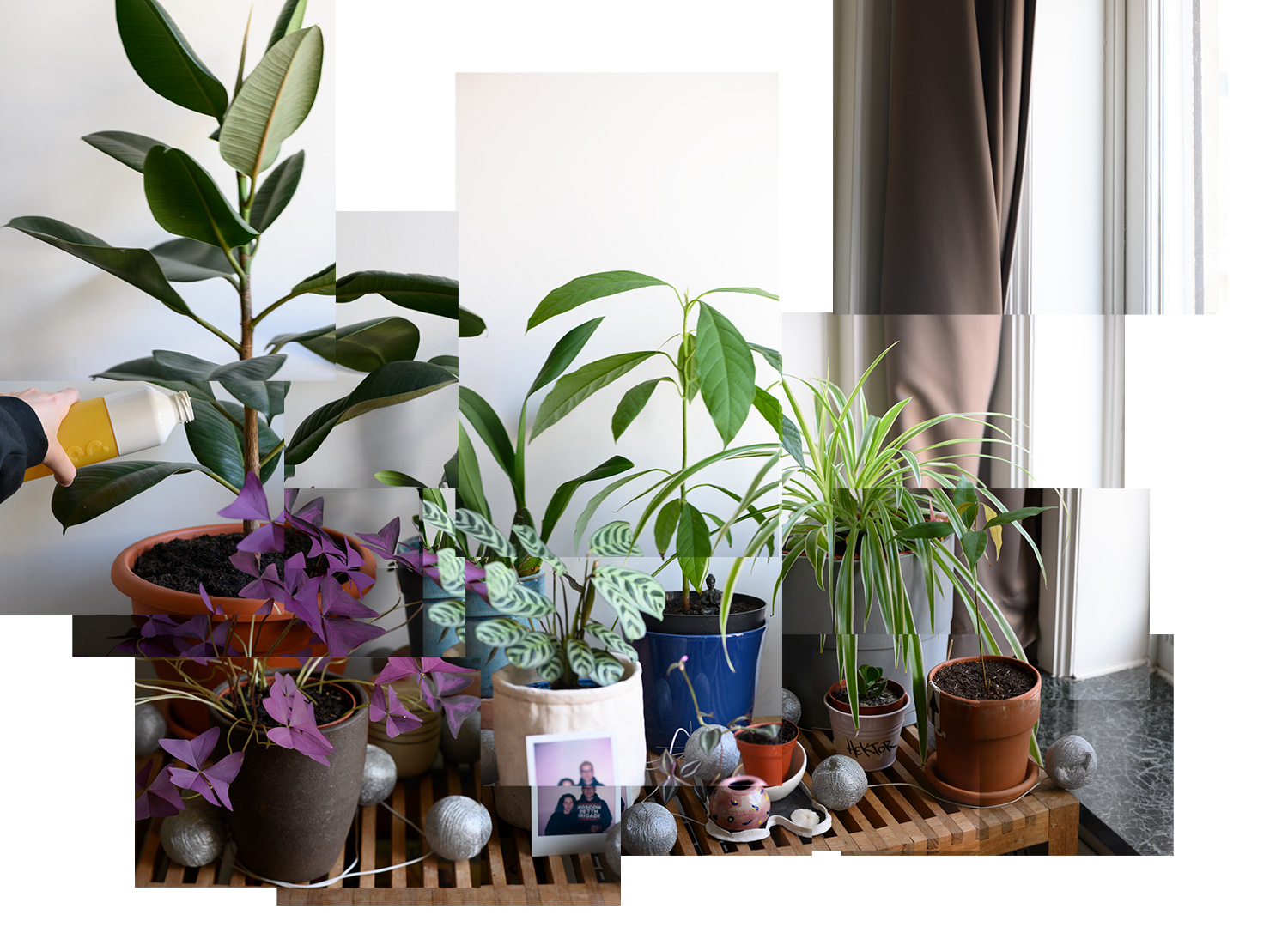
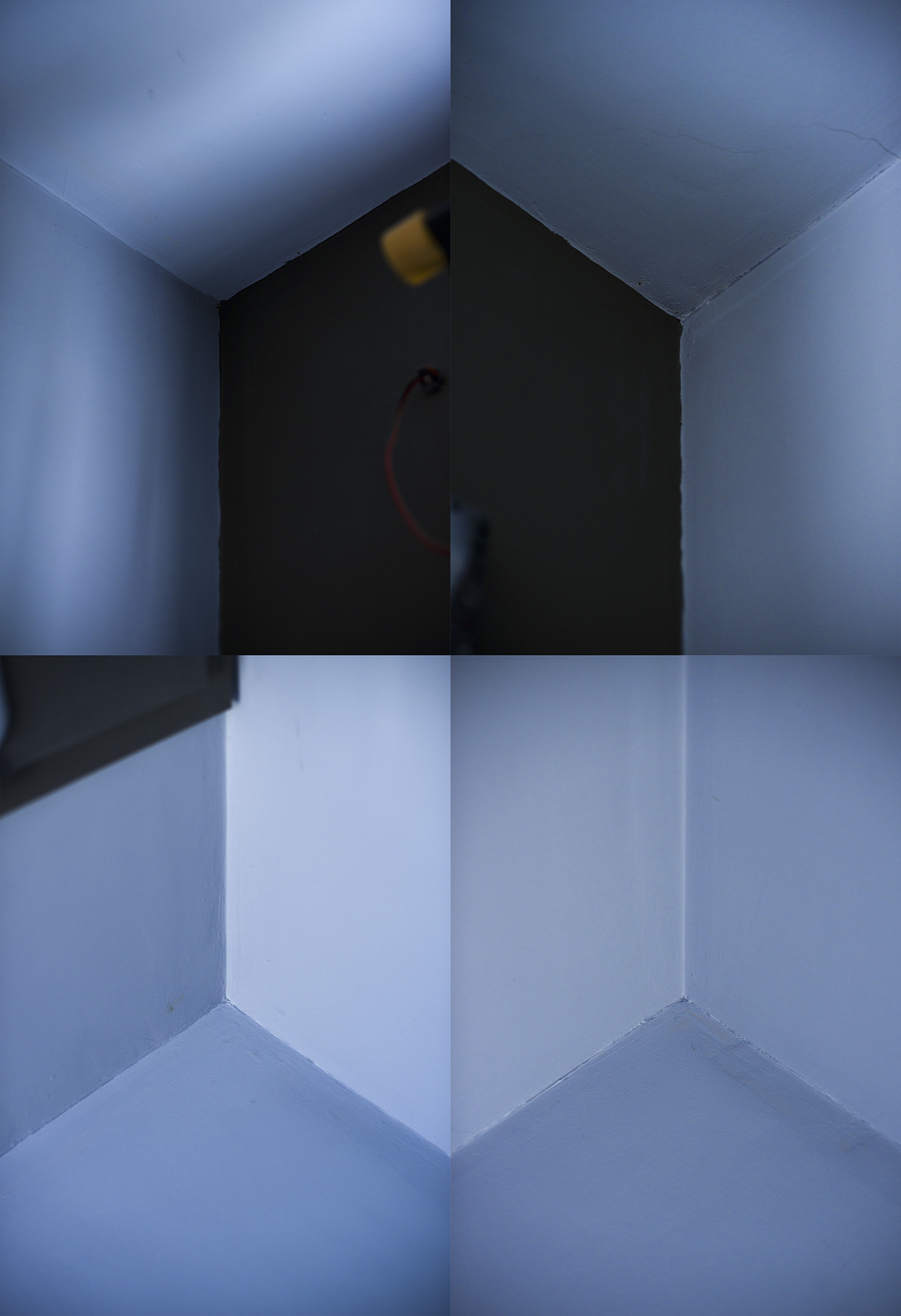
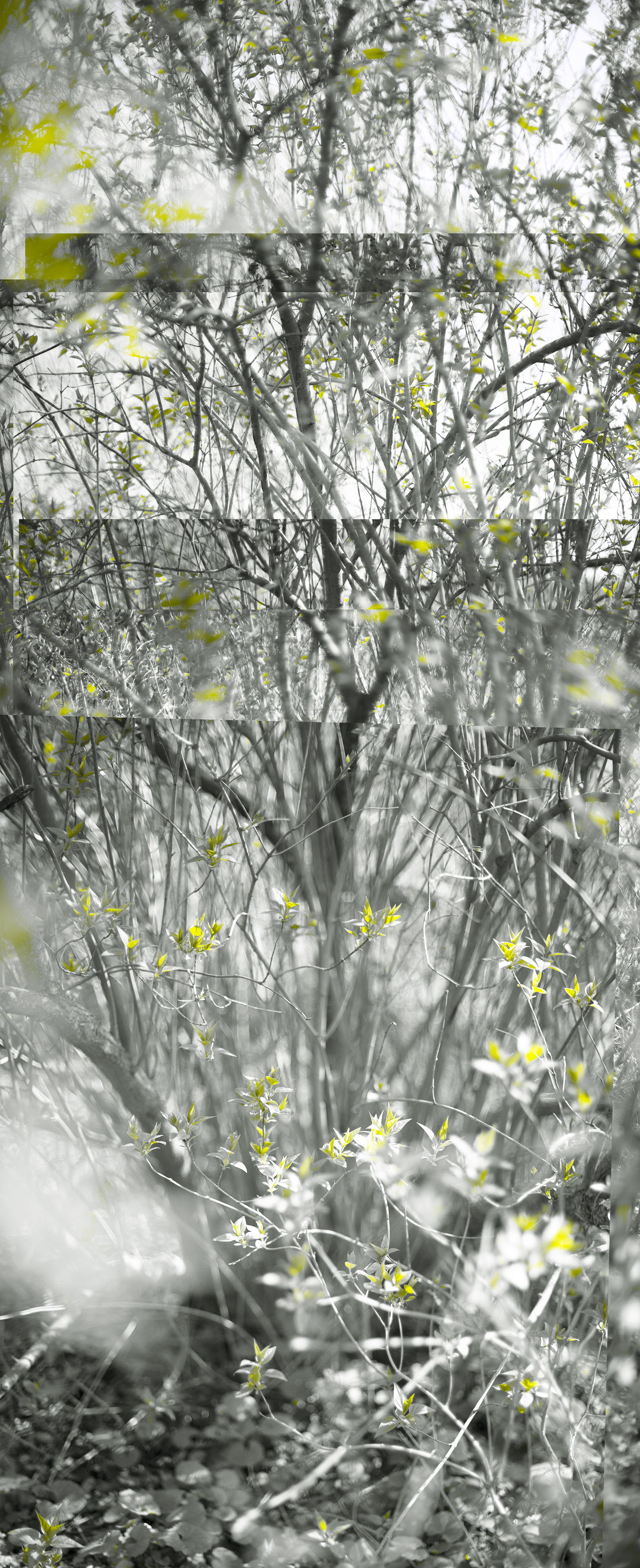
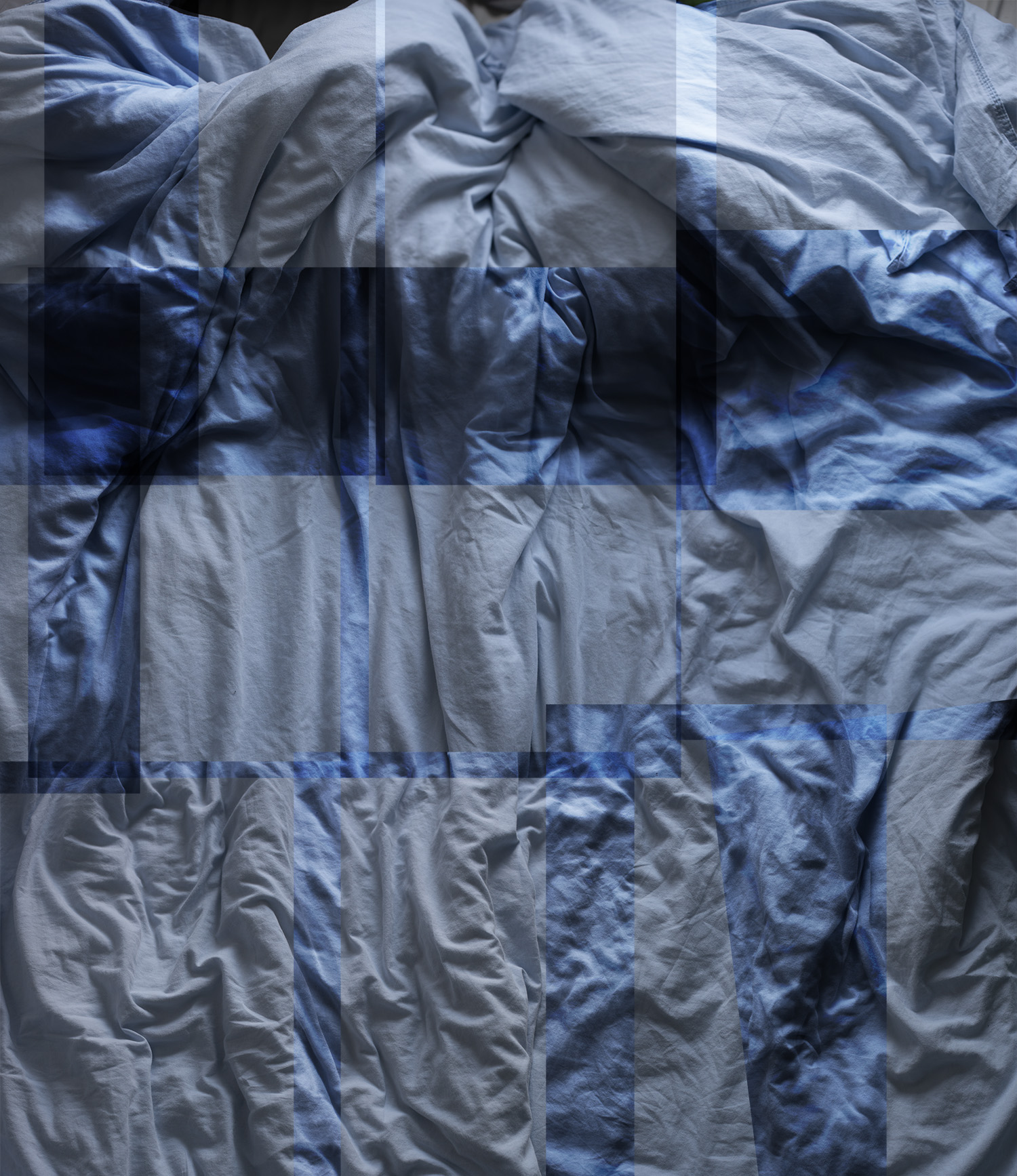
Ana Lucia Fernández (1BA) |
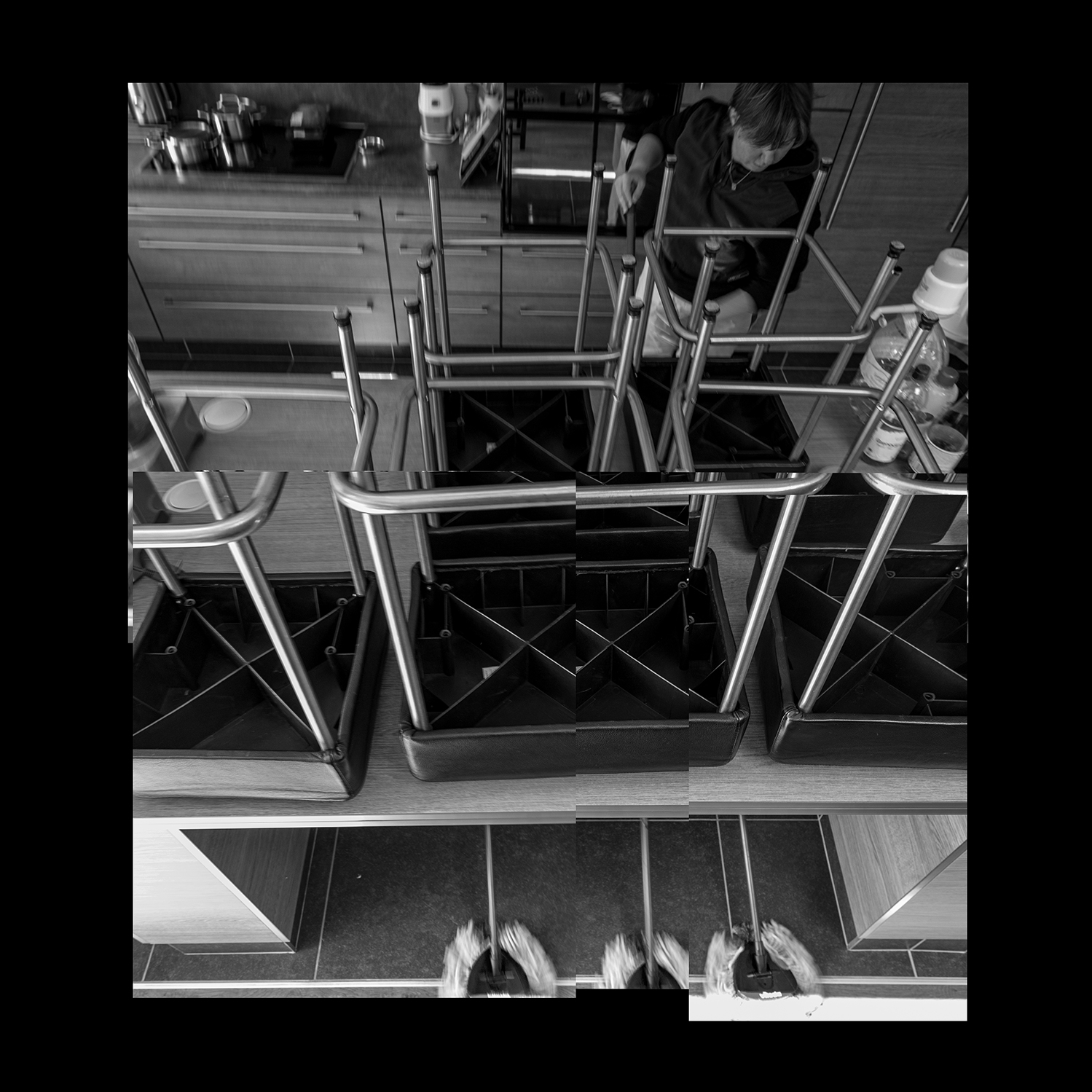
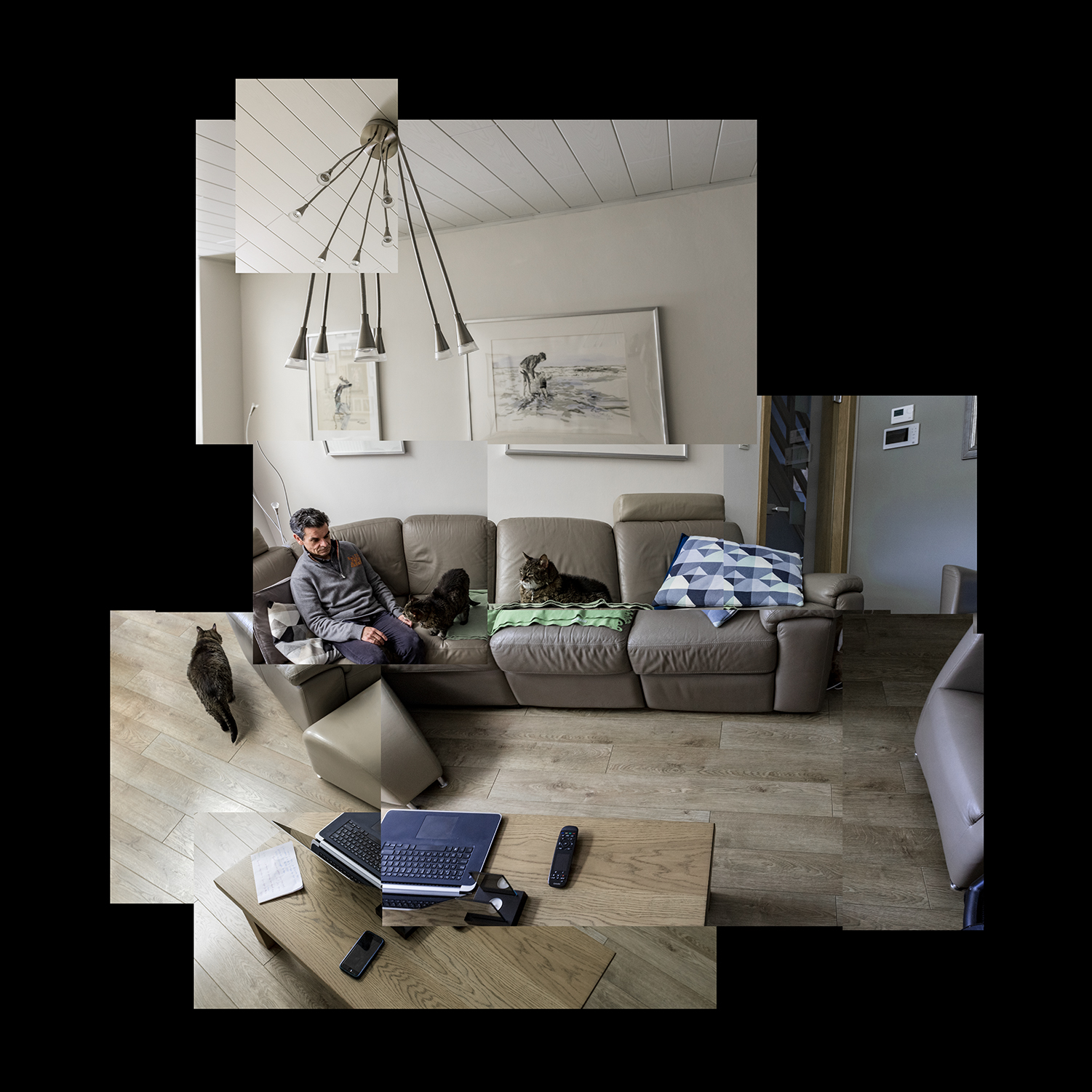
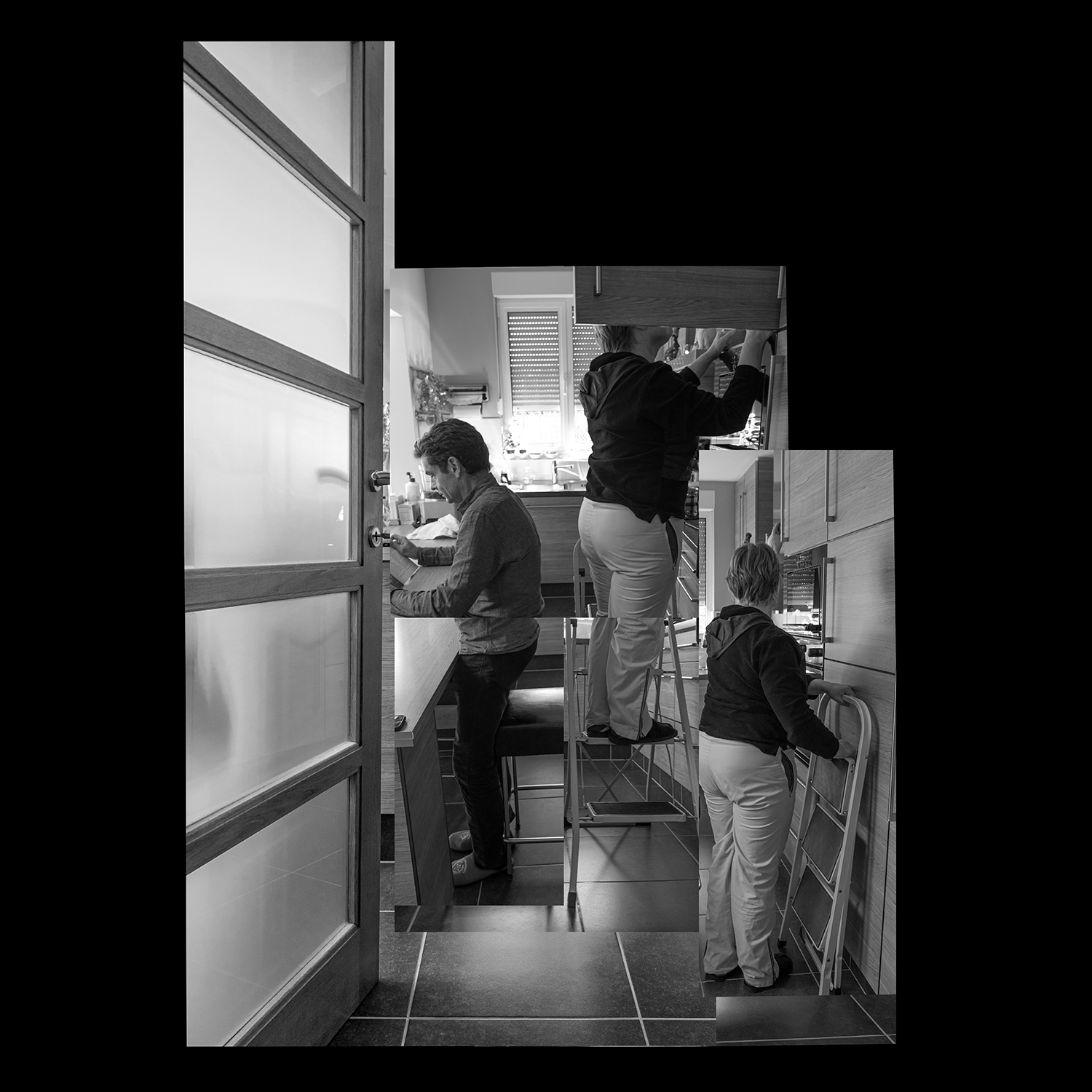
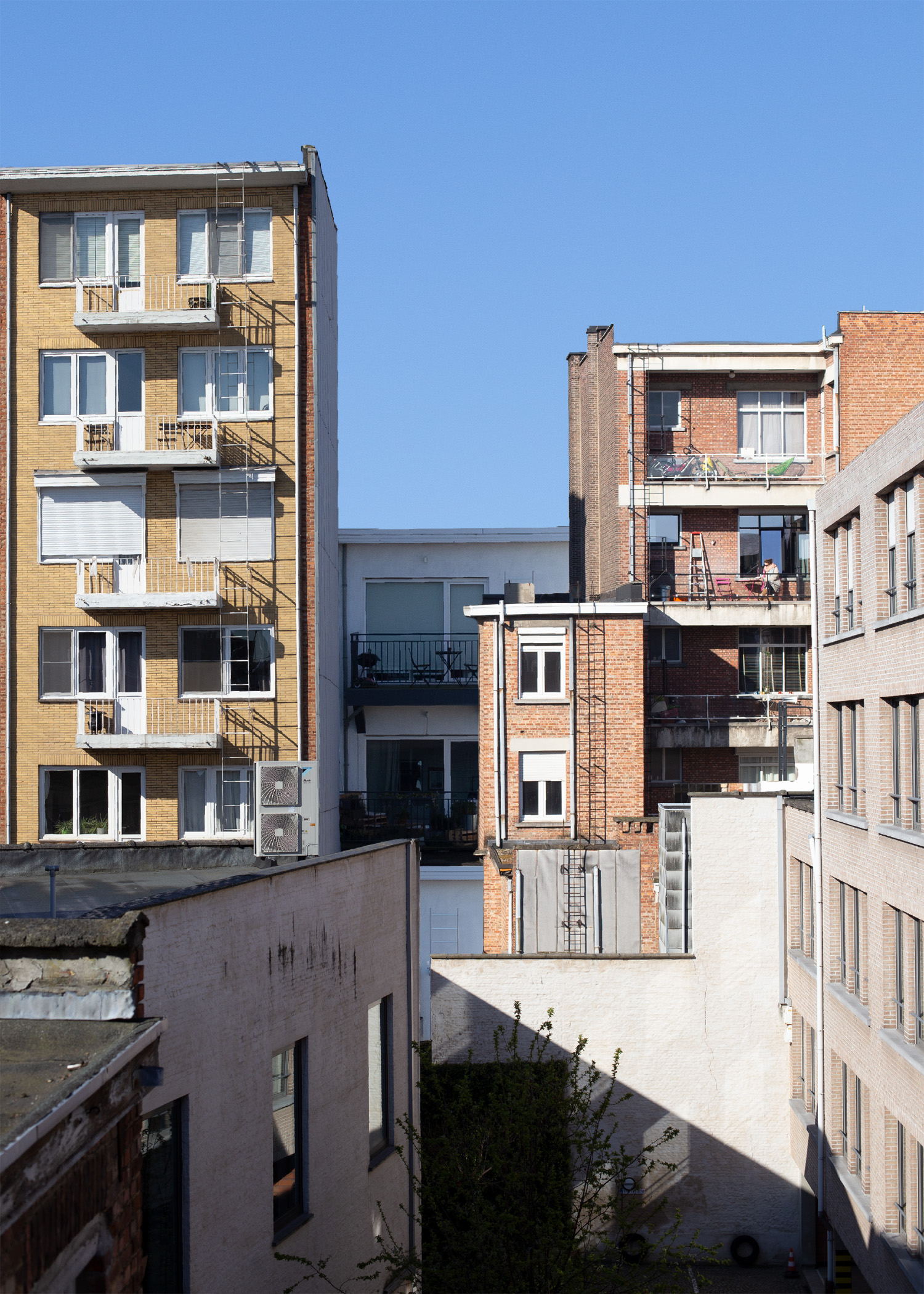
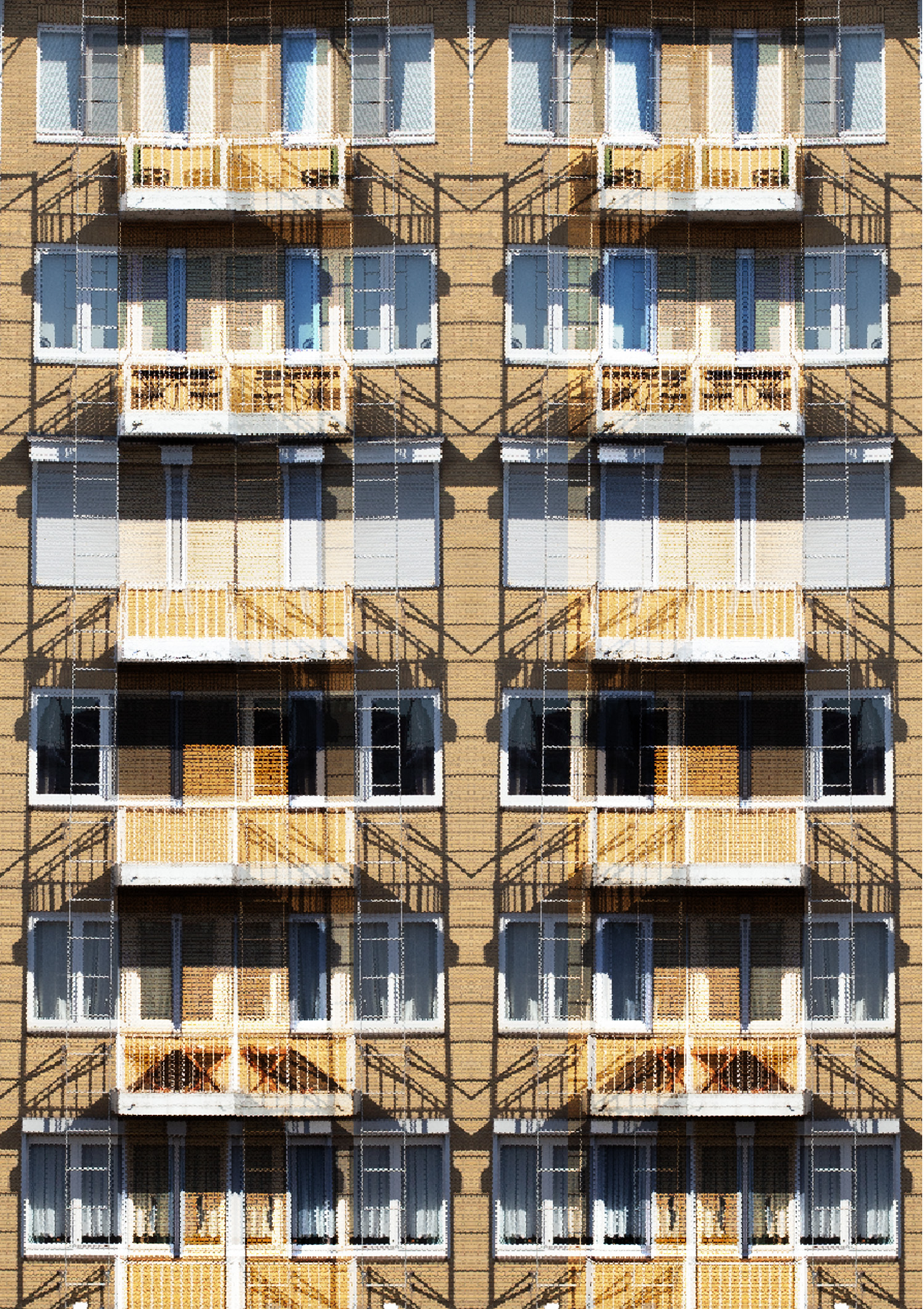
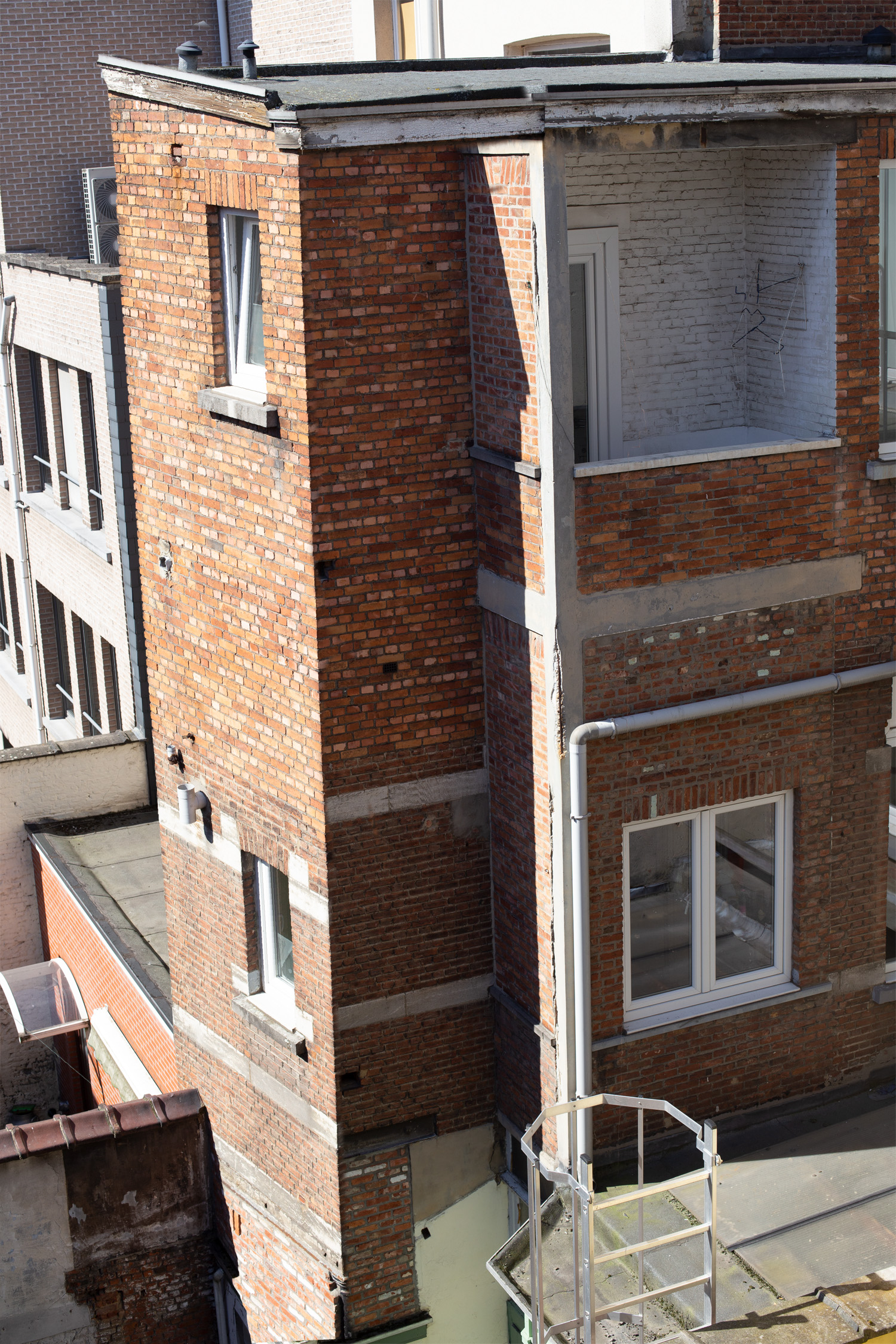
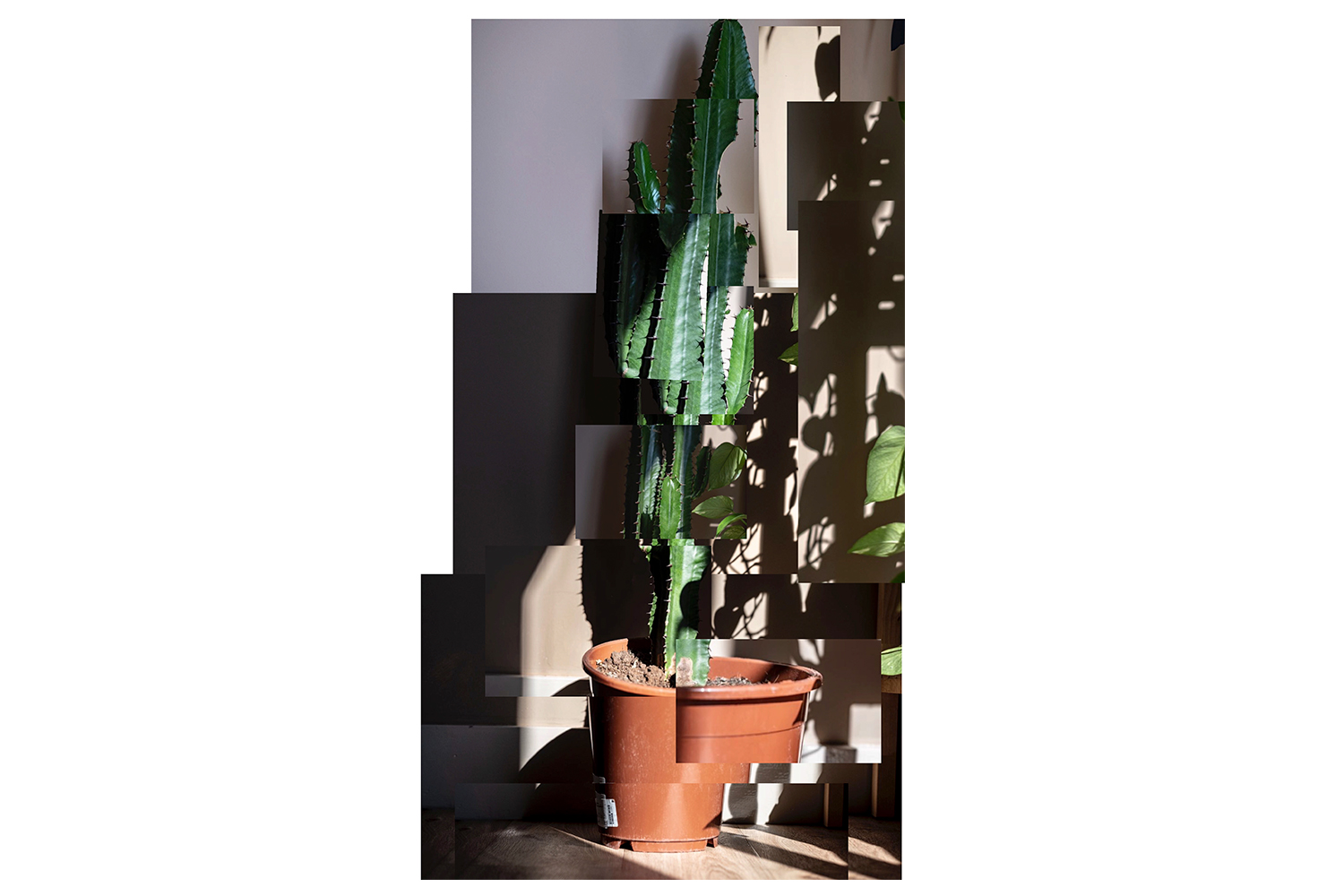

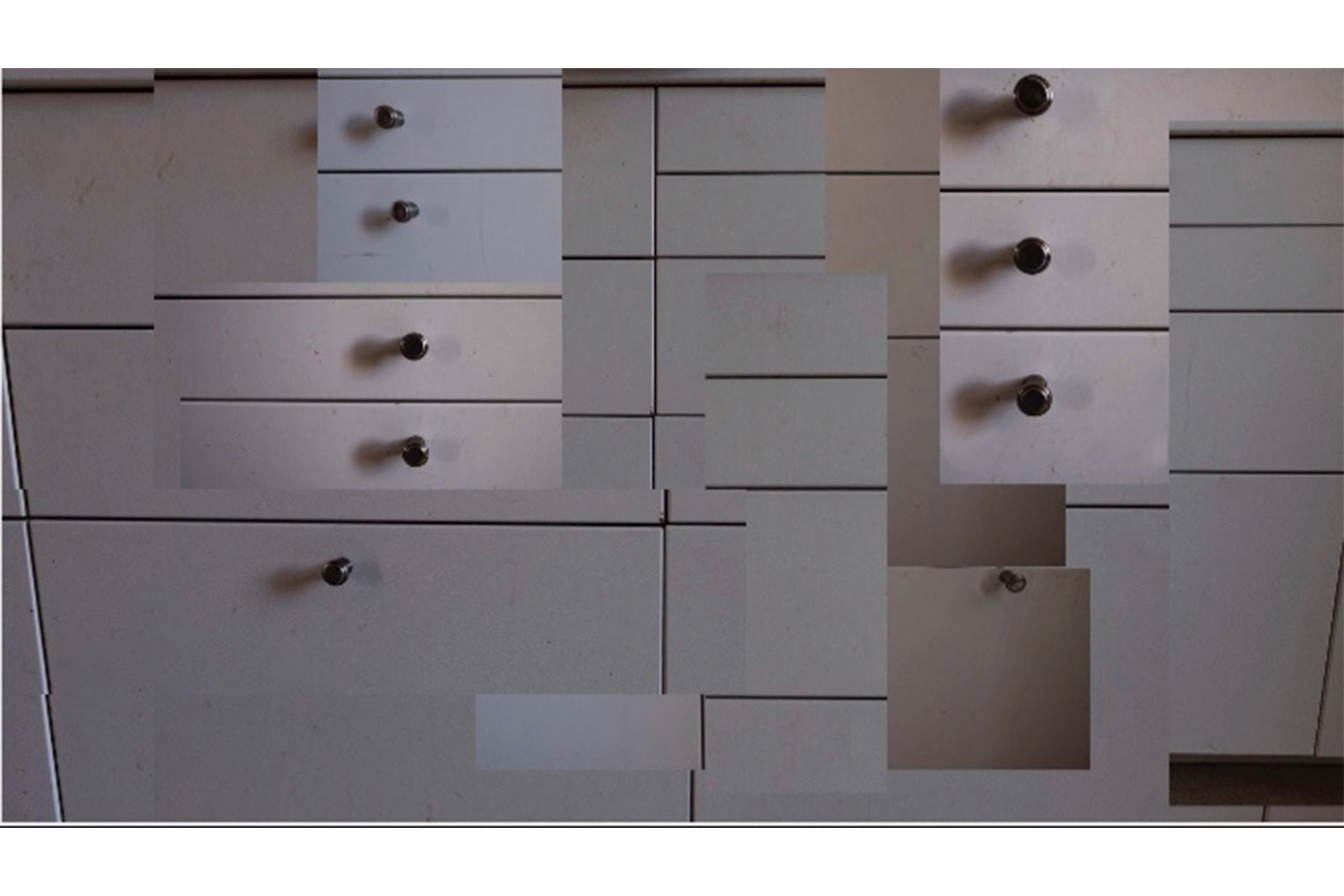

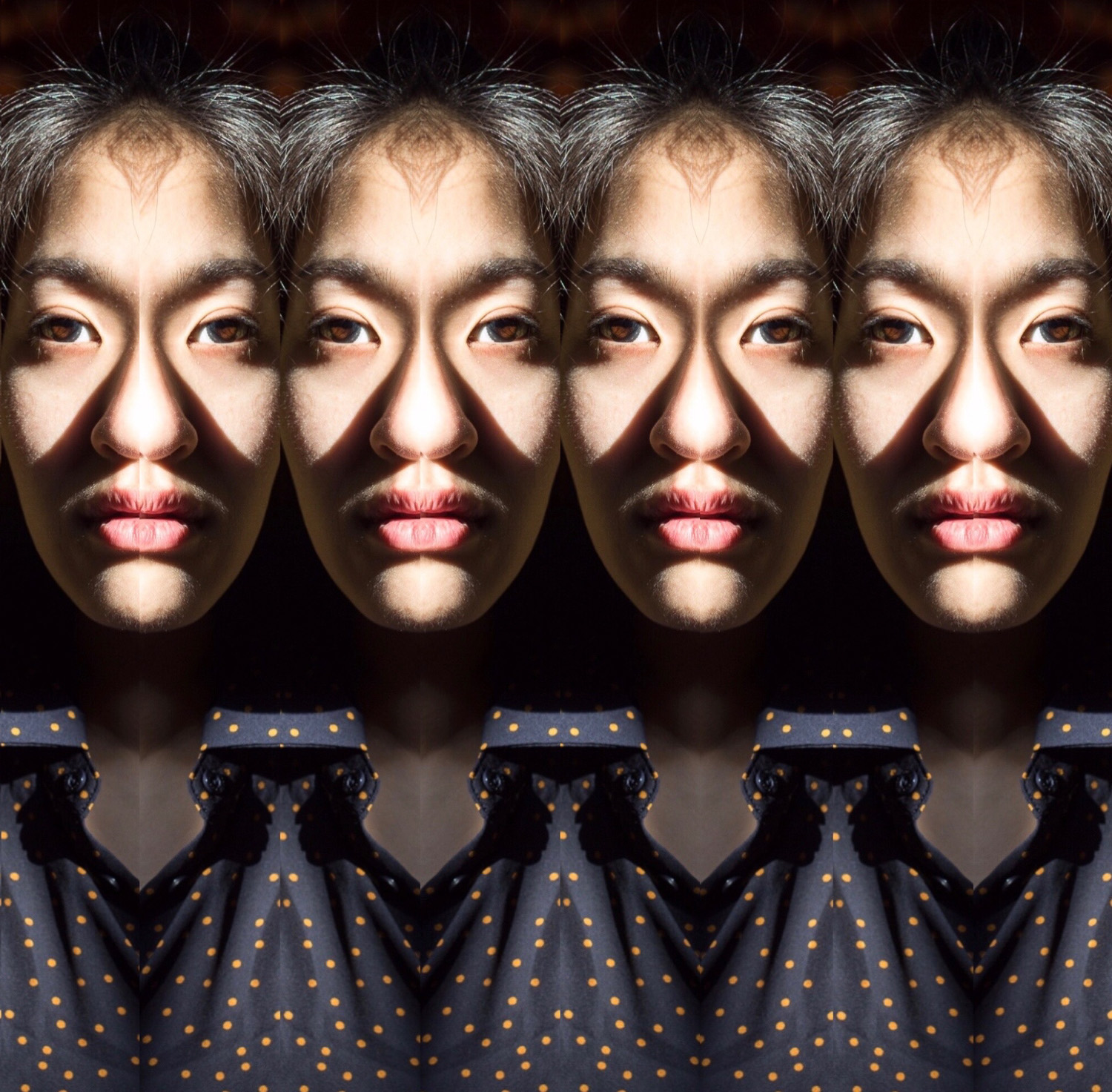
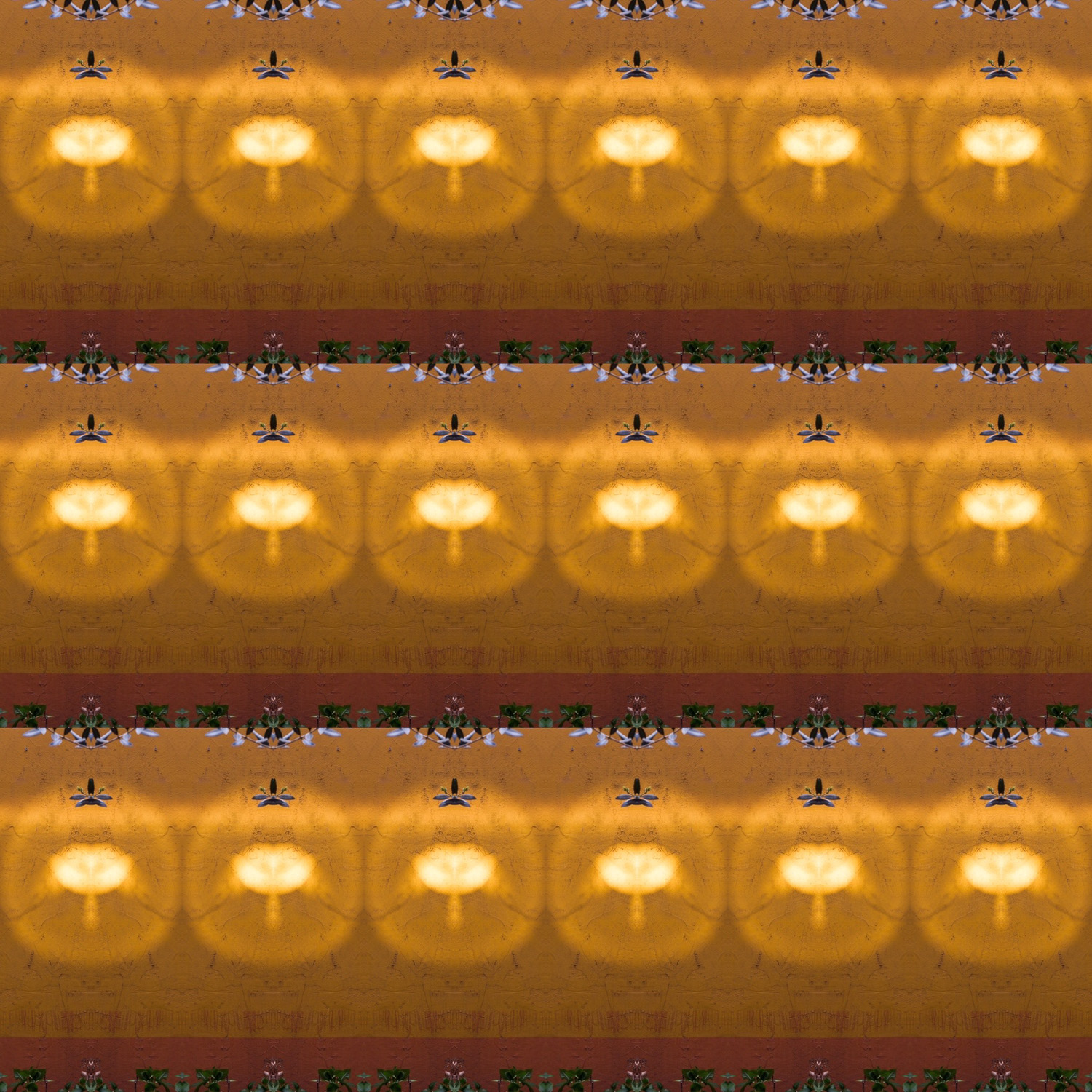
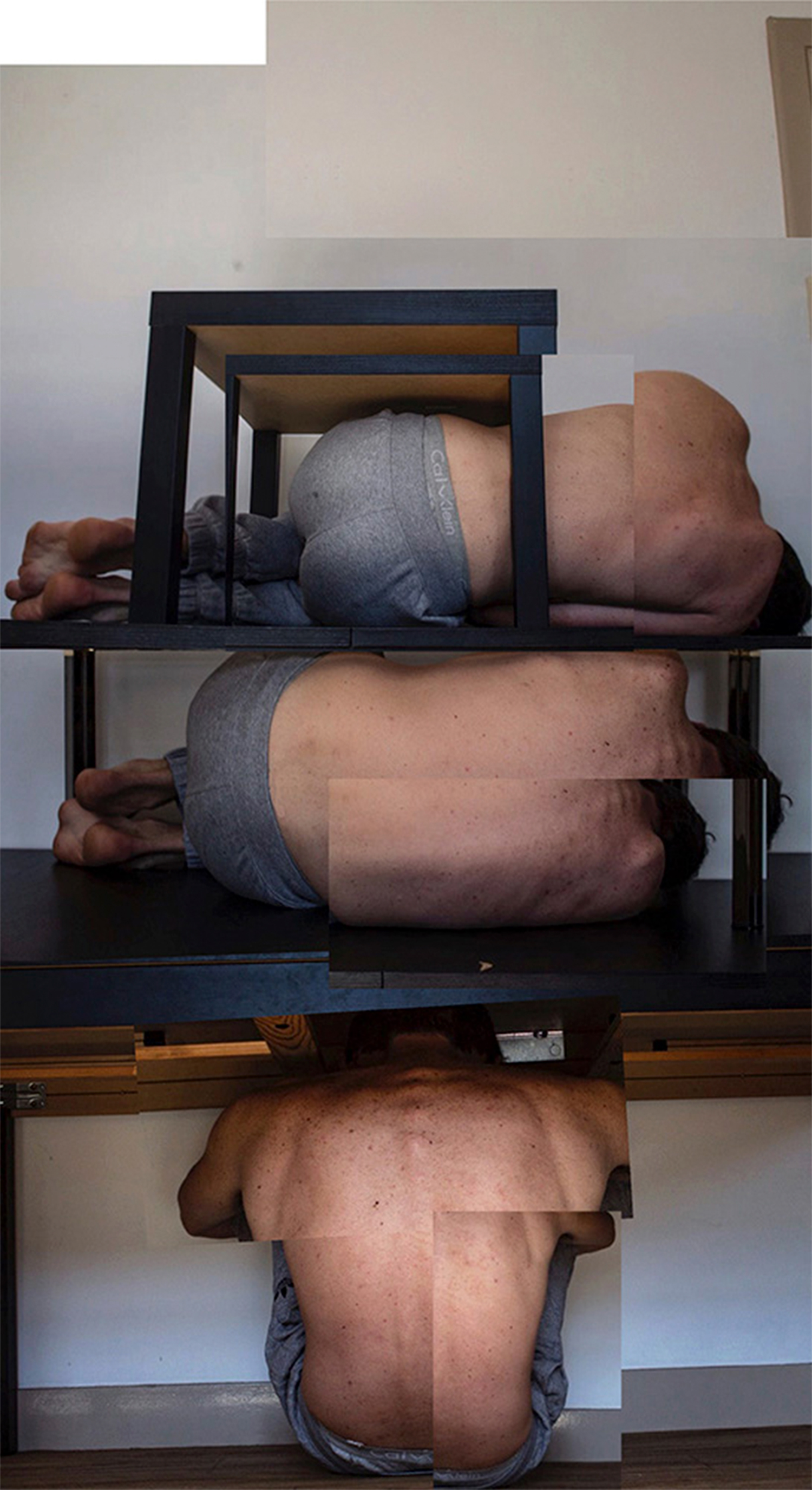

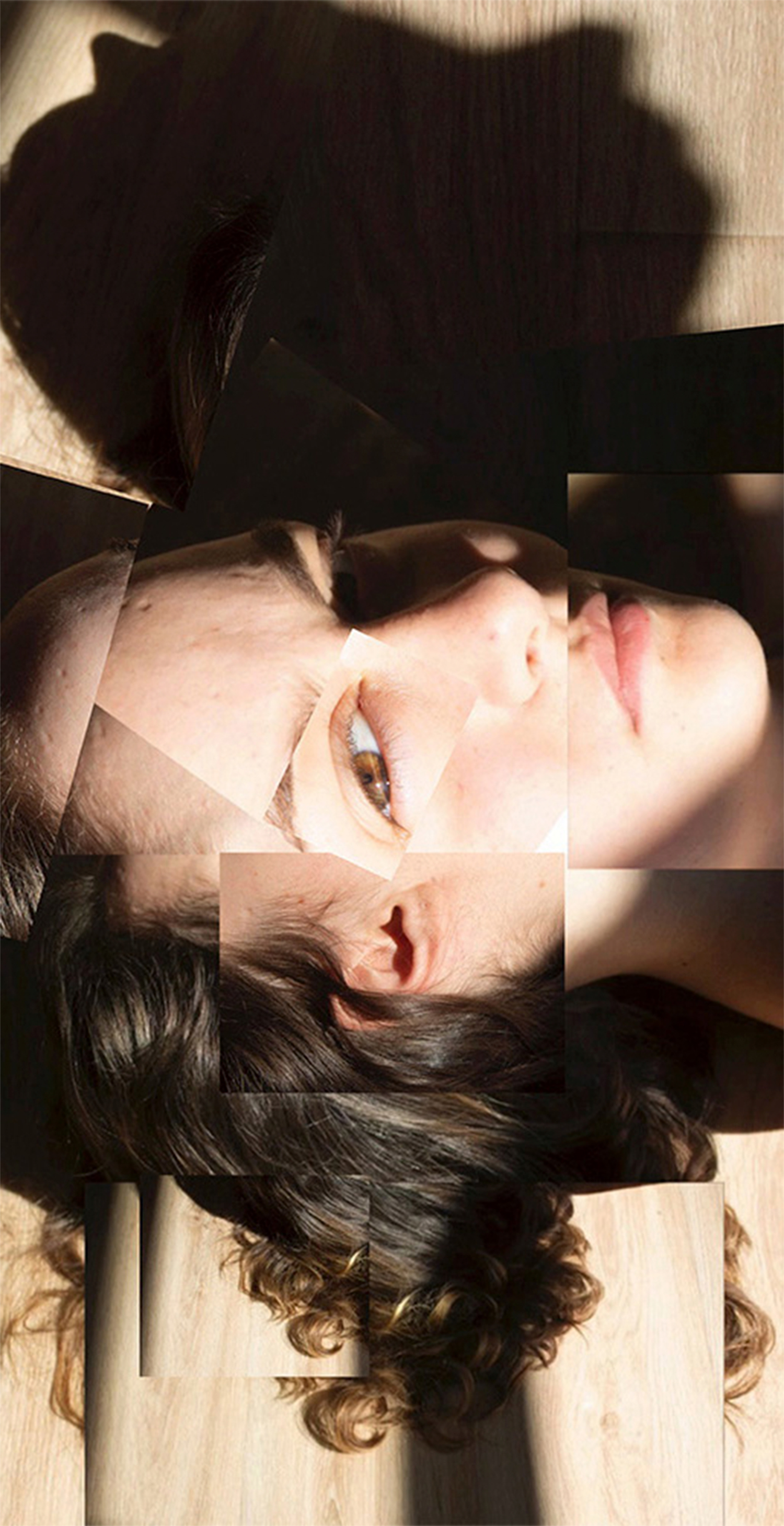
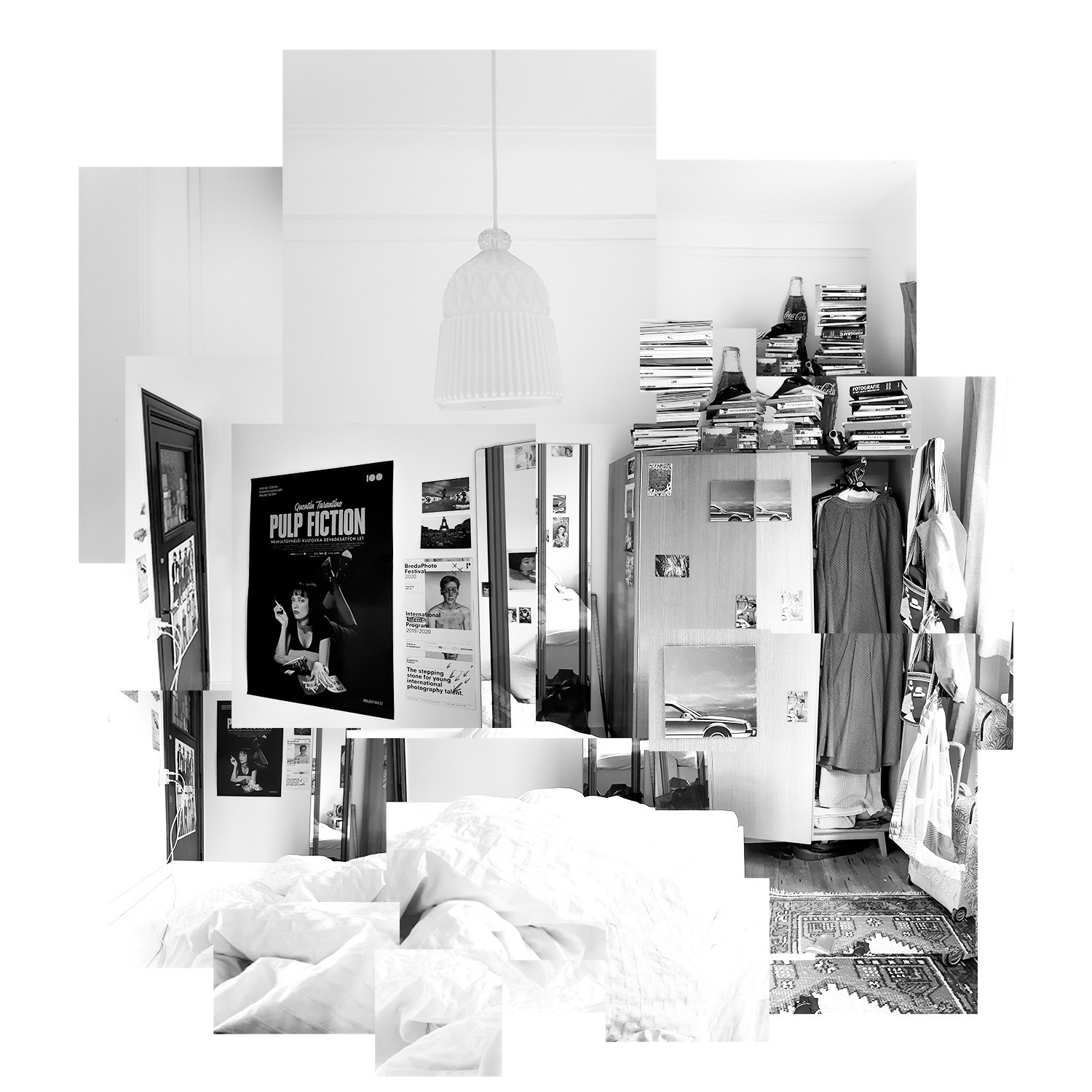
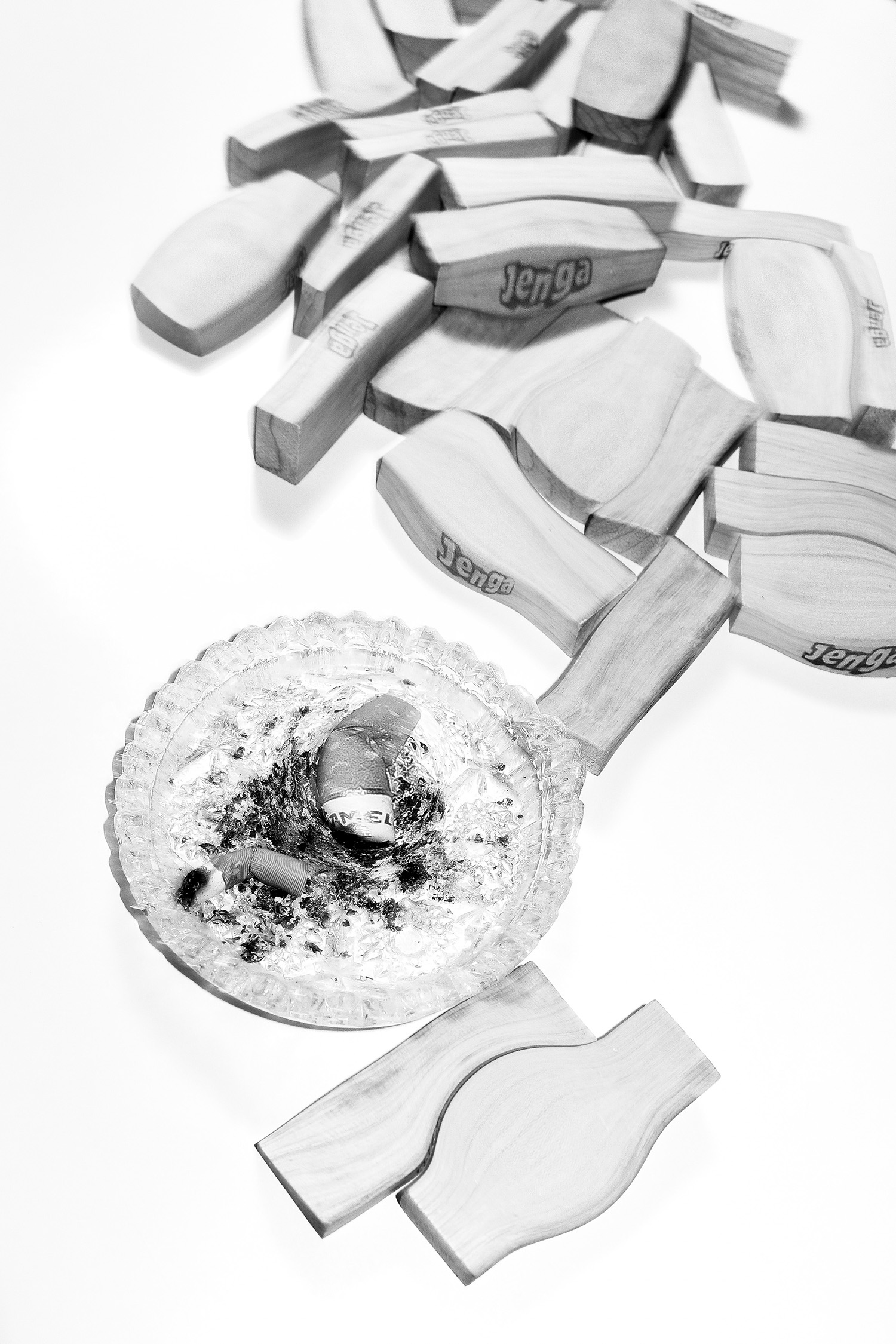
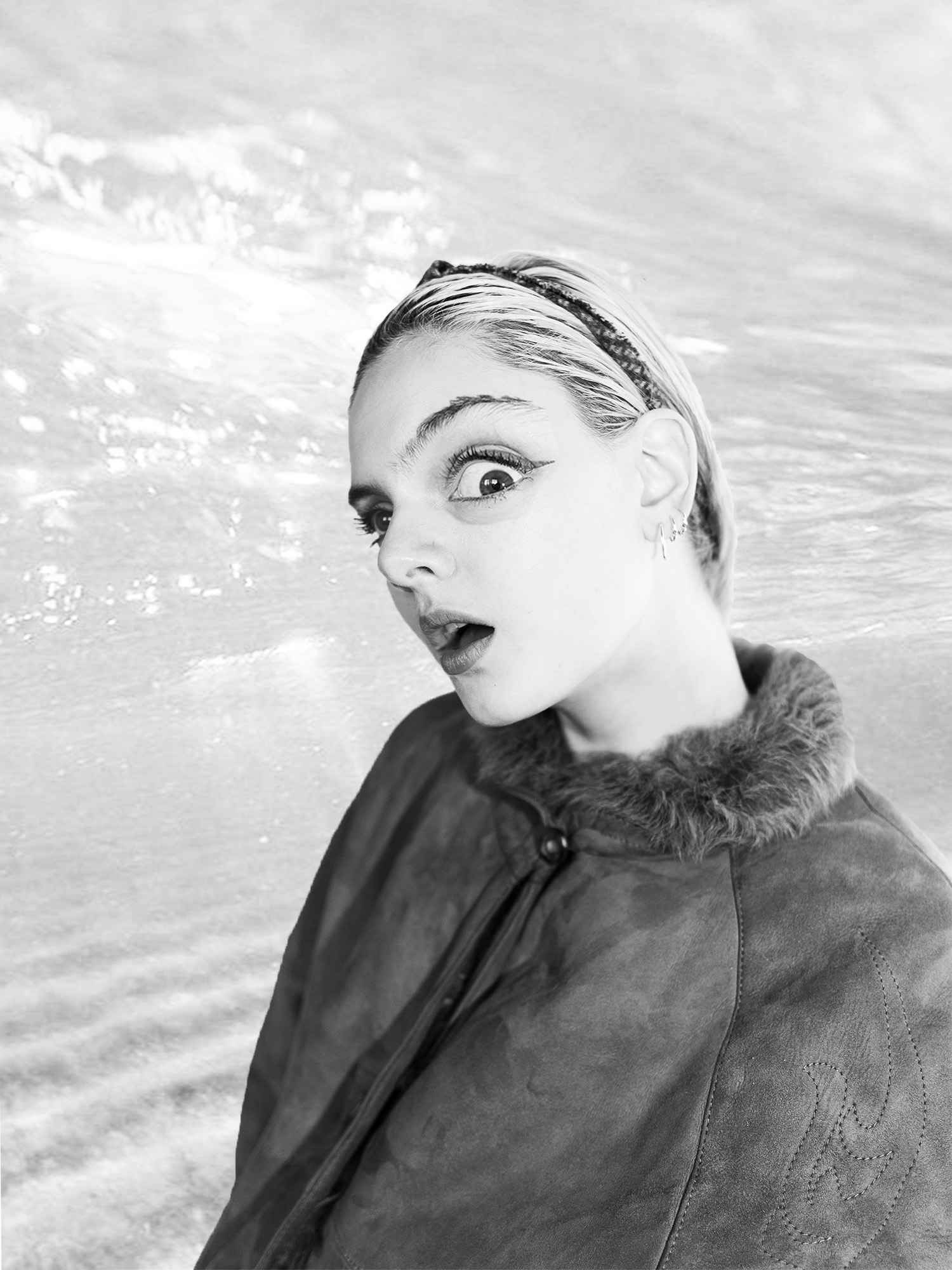
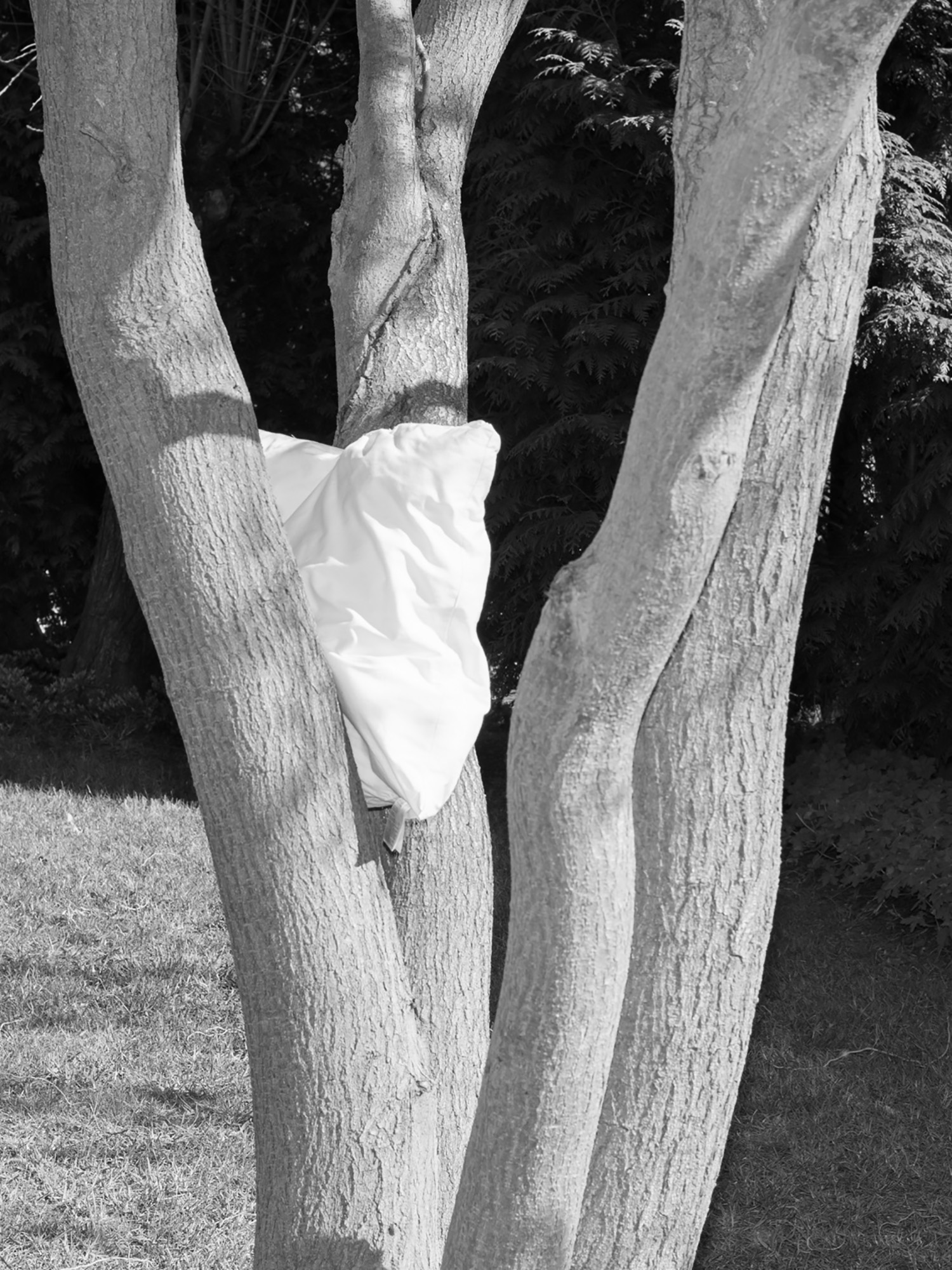
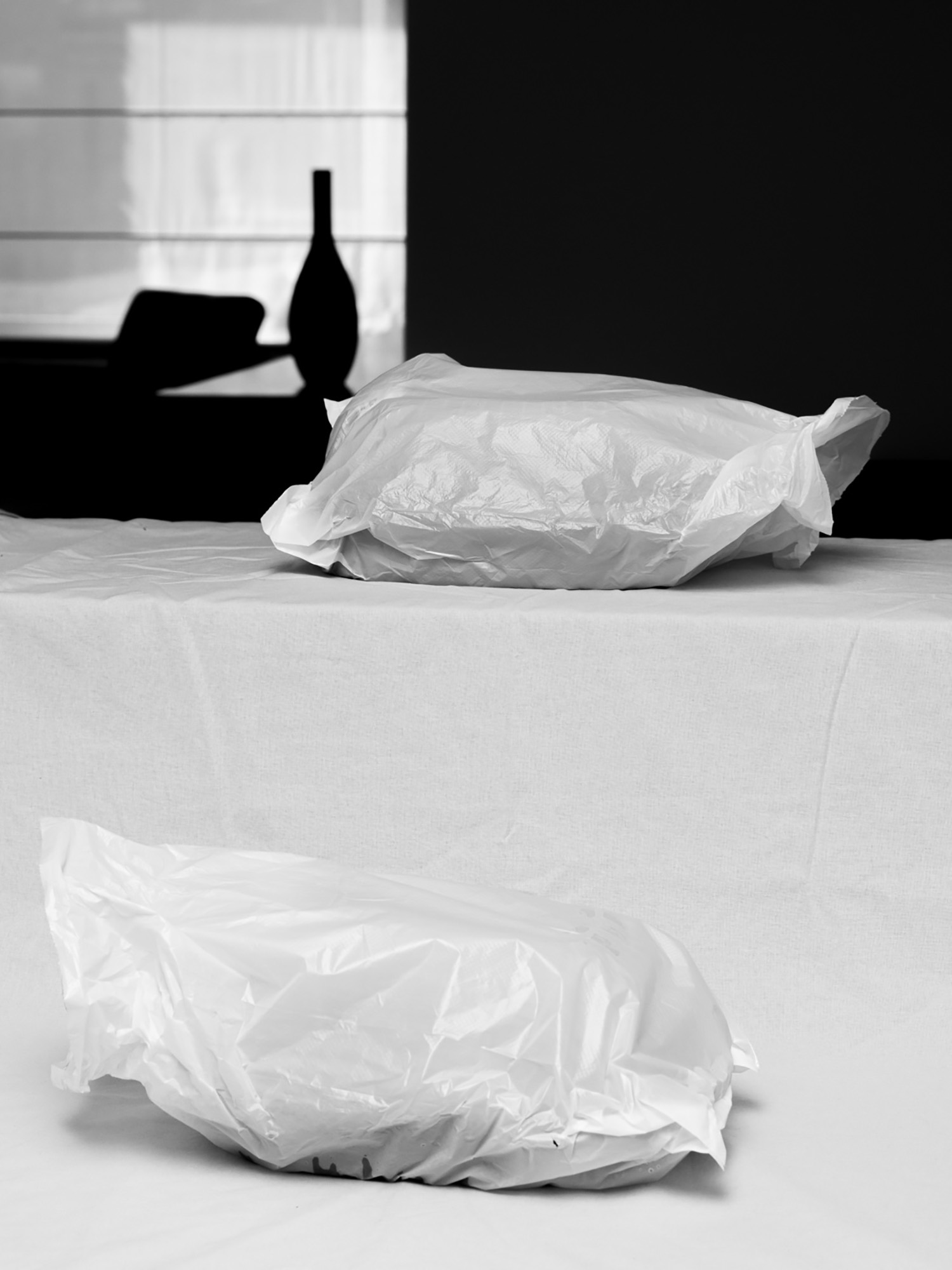
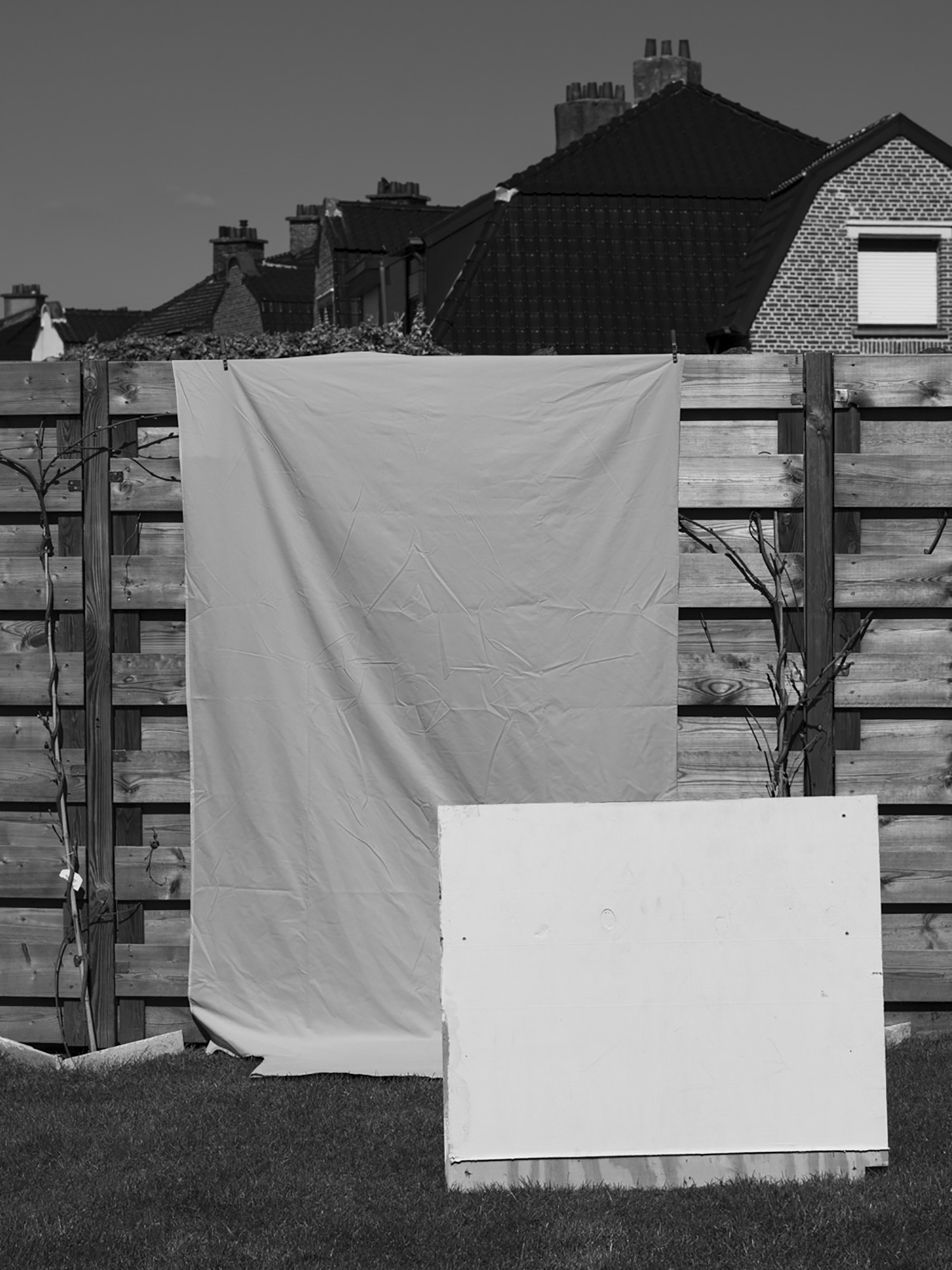

Morning coffee!
1. She just wanted to be seen. She just wanted to be loved. Every morning she paints herself, she wants to beautify her soul.
2. His values have changed throughout the years. He made up a man he wanted to be. He forgot what makes him happy.
3. Please look at me! I am looking for you to tell me I am good. I would show you my true self if I knew who he was.
4. He is wondering what he did wrong. Why his life ended up this way. Every day is the same. Every day is the same.
5. Which kind of world are we living in, he wonders. I thought age would make me wiser, well, it didn’t. All I can find are lost in my own memories.
Bruce Bomfim (2BA)
|

1. The overenthusiastic American tourist
2. The yeshiva student, who is living in an alternative reality in the middle of Europe
3. The Eastern European grandma a.k.a. Babushka, who lived through a lot
4. The violent white supremacist football ultra
5. The privileged Ivy League rich snob
Aron Viszló (2BA) |

1. Alexei owns some exchange shops in Tabolsk, Russia. He lookes to think he s slightly more important than he actually is. Pays four different child supports to three different women.
2. Carmen is an aspiring actress in the new Hollywood. Four movie directors told her she has to lose weight if she wants to be the industry. It’s hard for her to stay original. Her mother is her best friend.
3. Private O’Connor got raped by three of her squad members in Iraq back in late July last years. After the incident she gave birth to two boys with whom she raises with her partner Louise. O’Connor is now Sergeant O’Connor.
4. Gina was a groupie for the Greatful Dead back in the 70’s. She ran from home at 15. Druggie mother. Deadbeat father. She got married at 19 and got divorced at 22. Spent her life running away from her husband and herself. She smokes weed to forget the fact that her kids won’t speak to her.
5. Petra is a bored housewife. Her twin daughters take ballet lessons, piano, judo and she is head of the PDA , swim team, and health department. When the kids are not at home, she enjoys a nice glass of wine and a face mask made from orphan’s tears. She also spits in her husband’s food once in a while.
Daria-Ana Oprean (1BA)
|

1. Nina: Lesbian lady having a hard time not getting on grinder.
2. Ivana: Russian cleaning lady. Lost her job because of the corona crisis.
3. Babette: searching for pasta.
4. Laureen: Is going to deliver a baby this month.
5. Rafaëlla: I left my wallet in El Segundo.
Valentina Stellino (Alumnus)
|

1. Amateur porn star about to shoot his pilot scene in the new exclusive movie “Creme de la Creme”
2. Middle-aged gardener trying to fix his broken cactus that some savages broke down.
3. Maid realizing she burnt her boss’s thousand euro shirt. Fight or flight instinct is kicking in.
4. Drunk guy coming home after quarantine period just ended.
5. Aspiring 16 year old basketball player who isn’t actually that good but won’t admit it. Highly motivated.
Robert Sasarman (1BA) |

Hermann
Hermann is your classical old veterinary. Every conversation with him end up with him telling you about the war and contemplating about the gold old times. He can be funny after five Martinis but mostly he is grumpy.
Rosie
Rosie is the 60s wife of your dreams. She is mostly concerned about having a seamless tan.
Brigitte
Brigitte likes to play cards, chain smoke and day drink. No one is really sure how she makes money but there are rumours she is involved in some illegal activities. No one would dare to say that to her face obviously.
Anthony
Anthony is the swagy kid from the streets that you see lurking around on the towns square. He likes to appear unapproachable and tough but he is a golden retriever at heart.
Emily
Emily used to study philosophy but got tired of of the pretentious academic world so she decided to become a handy woman. After work she hangs out with her pals drinking beer and talking about women.
Sarah Kirchner (1BA)
|

1. Brittany, E-Girl - Watched Euphoria once and now wears crazy makeup
2. John, “Drug dealer” - Actually he is just a guy that likes to hang in the park with his friends. Smokes a lot of weed
3. Esmeralda, “Gipsy” woman - She is latina in reality, but people think she’s Moroccan or Romanian
4. Joris, Business man - Complains because the stake he ordered Blue is not cooked enough. A complete asshole to waiters.
5. Paola, Woman - Hadn’t seen her face without foundation for years. Everytime she takes a picture feels like she has to take all her “imperfections”. That perfect skin and smile is photoshop.
Ana Lucía Fernández (1BA)
|

1. Meet Tina, she’s 16 and pregnant and not happy about it. Her boyfriend broke up with her when he got the big news. She should’ve known he would be a hitter and a quitter.
2. Meet Fabio, he makes a buck on the street playing his guitar. He believes in the great power of mother nature and the good old herb called marihuana.
3. Meet George, you can find him lurking in the park waving his little bags of drugs around. He’s not the best at hiding is business from the authorities but he’ll set you up with a good deal!
4. Meet Saartje, she fell and bled and took it like a champ. Guess that wound will make up for a pretty scar.
5. Meet John, he’s a Wall Street stockbroker on his way to work where he will have to deal with another crisis. He's having an affair with the secretary. Let’s hope the wife doesn’t find out!
Catherine Smet (1BA)
|
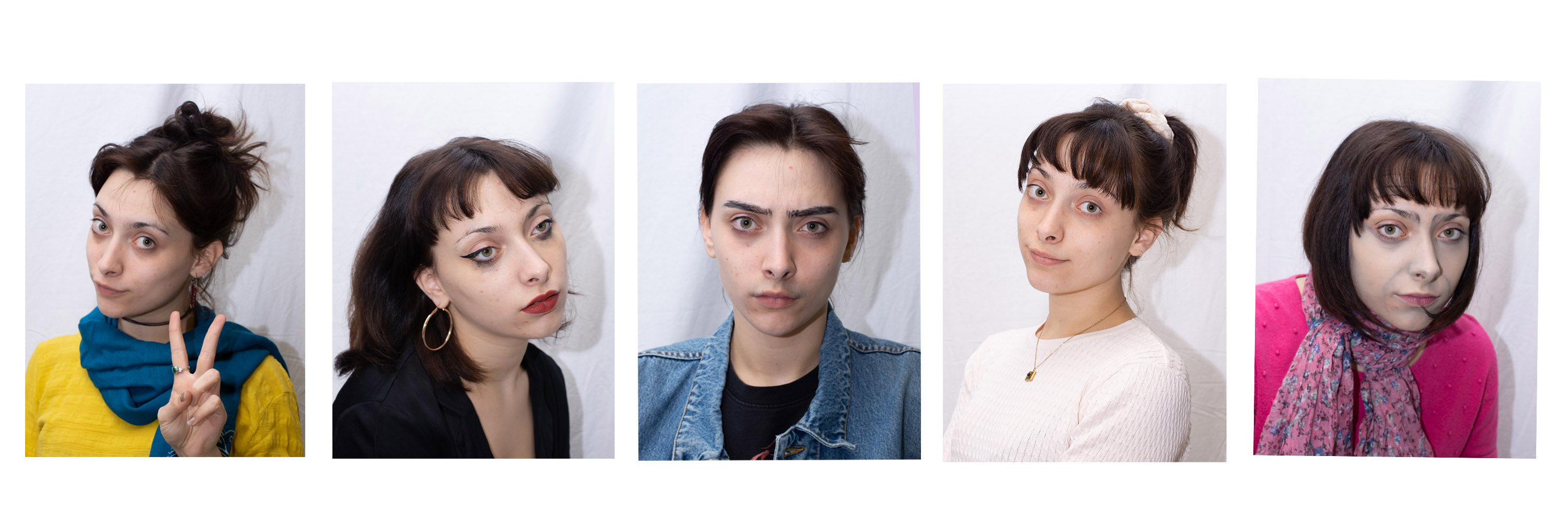
THE NEIGHBOUR
This character is based on the woman that lives across the street. I looked outside the window and there she was: snipping the flowers, looking left and right as is there is something curious she might miss.
THE NEW GIRL
This character has been imprinted in memory as Sandy from Grease. She’s the innocent one, the one that has yet to learn, the one that has a big reality check coming.
THE DAMSEL IN DISTRESS
This character is mainly based on Dorothy Vallens from Blue Velvet. I recently saw the film for the first time and was captivated by her ability constantly shift from being the mysterious, cool nightclub singer and the troubled, needy, childlike lover of Jeffrey Beaumont. She is is dependant on someone else to take her issues away.
THE LONE WOLF
This character often shows up in teen movies. He most likely stands alone smoking, looking at the other kids. He often has issues but tends to look down on the others.
THE LOST HIPPIE
THis is the only character I did not base on fiction. You can find this person in real life often in the park, festivals,... She values freedom and nature. She believes the world has something good. We just gotta work together.
Anke Defossé (2BA)
|

1. Mary, a copywriter stuck in her boring routine, tries to force herself to make a real meal at least once a week but fails over and over again. As the years pass by in a faster place than before, she can’t remember the last time she spent a night with anything else than the silence of her own appartment.
2. Carlotta, lived and still living her life the fullest. Married more to a bank account than to the man who owns it. She never had to worry about any lack of wealth for the rest of her life. When her sons grew up and moved out a few years ago, she took two cats instead. She wakes up early to watch the sun rise and to get her fresh eggs from the chicken coop. Oh, and she never ever stops smoking.
3. Katy has a passion for hating everything that lives and breaths. She tries to avoid most forms of social contact and has a lot of trouble communicating with other people. Now a days she studies at an art school but she actually just wants to learn the art of living a real life.
A life where she doesn’t have a boyfriend in every corner of the city what results in not remembering which one lives where. Maybe someone who truly sees who she is can tell her to step out of this cycle of boredom or depression?
4. Susan is terrified of losing grip or things going not exactly as she had planned. And with planned, I mean really ‘planned’. In her head she was already maried to her now husband Paul before she even knew his last name. Her breakfast is coffee and her diner are sleeping pills. he loves her job and is therefore very passionate.
5. Leila, a typical housewife since she graduated with no voice of her own. Married for love but also with a loneliness in her heart. When her husband is out to work and her kids don’t need her for a moment she thinks about something that’s missing. It’s a feeling that’s been wandering inside but she finds it hard to describe. Maybe it’s the fact that she gives everything she has with nothing left for her own. Altought she loves and cares about her family more than anything, it’s time to give herself the joy in life she once had. The joy she feels when she looks at her children and reminds her of a younger version of herself
Eva Thurman (2BA) |

1. The girl you always find in sports clothes even if she is not doing any workout.
2. Woman from the 50s - 60s, a perfect mother and wife with primary duties of cleaning up the house and preparing the food.
3. The kid that is going to school on his bike but is actually still dreaming.
4. The adventurer that always wears his hiking boots and short pants, even in winter.
5. The horse-girl that wants every single inch of her boot shiny before competition.
Iris Maselis (1BA) |

1. The man with secret desires.
2. The reality escaper
3. The wanna be swimmer at home
4. The incognito
5. The shaman
Jaïr-Marc Castillo (1BA)
|
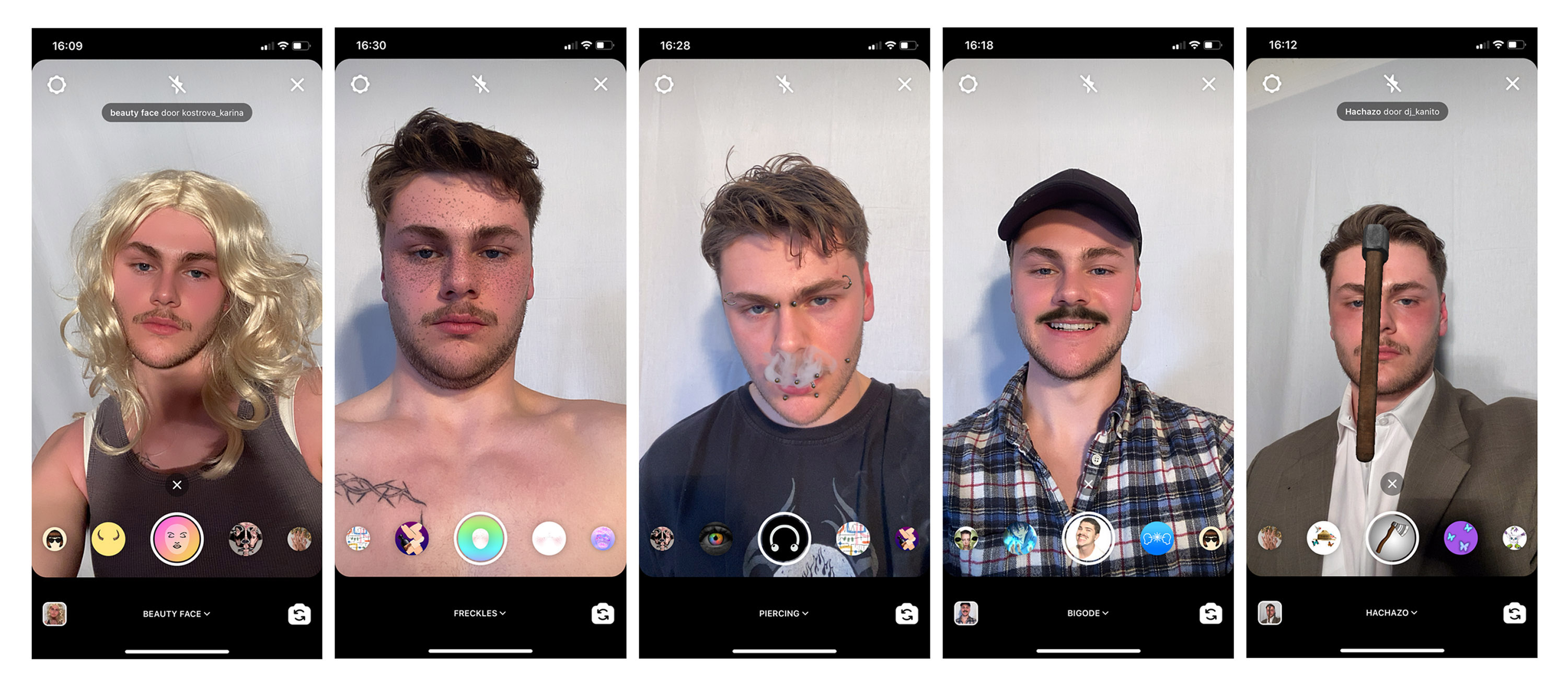
1. Lea is a 22-year-old girl who has just dropped out of school, to fully focus on her social media career and become a full-time influencer. She likes to take selfies after completing her skincare routine.
2. Guy is also 22 years old and has already built up a real empire on social media. He takes shameless selfies of his imperfections and surplus fat, in order to break through these taboos in a (self) mocking way.
3. Noël is a 17-year-old boy. His parents are divorcing and are going through a difficult time. Noël tries, in a rebellious way, to search for his own identity, separate from his father and mother. He just got a new piercing.
4. Noah is a 36-year-old house man who sends motivational selfies to his kids at school every hour.
5. Kurt is a 21-year-old single man who immediately went to teh real job after doing his accounting studies. He currently works for a large company. However, Kurt is stuck in the grind of his daily work routine, at a job he doesn't even like. He also posts melancholy selfies on Instagram in hopes of drawing attention and distraction from his boring job.
Ean De Maeyer (2BA) |

When you are completely isolated, the objects start to look like people
The Furniture just wants to stretch. He is tired of having the shape that the human gives him
The Watch is a serious and elegant type
The Television does not stop watching what is happening around him. He is very curious
The wall is usually relaxed. She sleeps and sleeps
The plant is quite shy and scary
Violeta López (MA)
|
Mystery guest: Catherine Smet (1BA) stuurde volgend bericht:
Mijn huisgenoot, Ella Salvador Dalemans, is schrijfster en nam stiekem deel aan de opdracht van vandaag. Op haar blog kan U lezen wat ze met de opdracht deed in woorden. Het leek me leuk om aan U te tonen wat anderen hiermee doen!
Vijf personages belichamen verschillende belevingen van tijd in quarantaine
de gedichten zijn foto’s, elke laatste zin is het onderschrift
Samengesteld beeld
twee geliefden zijn aan de overkant van elkaar
alsof iets langzaam dichter komt dat nooit komt
roezemoezen
zoals op vakantie eigenlijk
volgend jaar is mijn lichaam te oud
1.
Een man in een beigebruine kamer
is nog half zo groot als vroeger.
Zijn verleden heeft zich
in een bochel verzameld
die hij ondersteunen moet.
Zijn linkerhand op zijn linkerknie,
zijn rechterhand op de lichtschakelaar.
Hij duwt zich af op zijn schoot,
tilt zijn hoofd op zijn rug
en tuurt vanonder borstelige wenkbrauwen,
als een oude bidsprinkhaan
naar een kamer aan de overkant.
twee geliefden zijn aan de overkant van elkaar
2.
Met haar benen gespreid
en haar armen gekruist
en een zwarte jurk aan
zit ze op de rechterhelft
van een keurig gedekt bed.
Alsof ze een weduwe is of een pop
met ipodoortjes in.
Haar ogen en lippen zijn zwartgemaakt
en gesloten.
Boven het bed hangt
een schilderij van een zee
met een schip onder het water
of de spiegeling ervan op het oppervlak.
alsof iets langzaam dichter komt dat nooit komt
3.
gonzen ronken en ronkerrood
bruin
gerommel geborrel gerammel
een trommel?
geneurie gemurmel
snorren
roezemoezen
4.
Een zware man met een brede lach
heeft de camera op zelfontspanner.
Hij is vers geschoren en zijn haar is nat gekamd.
Als we hem konden ruiken door zijn foto
dan rook de foto erg lekker naar zwaar parfum.
Hij zit diep in een witte leren zetel
en steekt een duim omhoog naar het rode aftellampje.
Op het schermpje zien we het cijfer negen
seconden te gaan.
zoals op vakantie eigenlijk
5.
Een vrouw zit aan tafel.
Ze heeft haar ingevlochten haren strak naar achter in een staart.
Op haar slapen parelt nog zweet.
Ze draagt een sporttenue met borstnummer.
Het tafelblad ligt bezaaid met kranten,
supplementen, bijsluiters en een thermometer.
Op haar schoot ligt een bord spaghetti.
Enigszins gebukt kijkt ze naar het journaal.
Het licht van de televisie weerkaatst
op haar voorhoofd en in haar ogen.
volgend jaar is mijn lichaam te oud
|
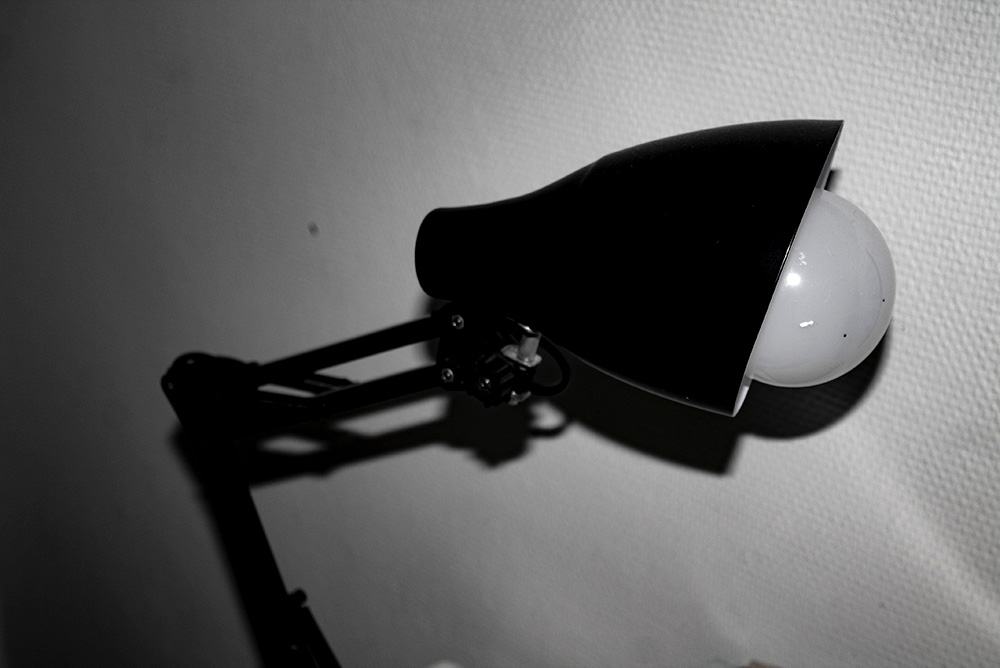
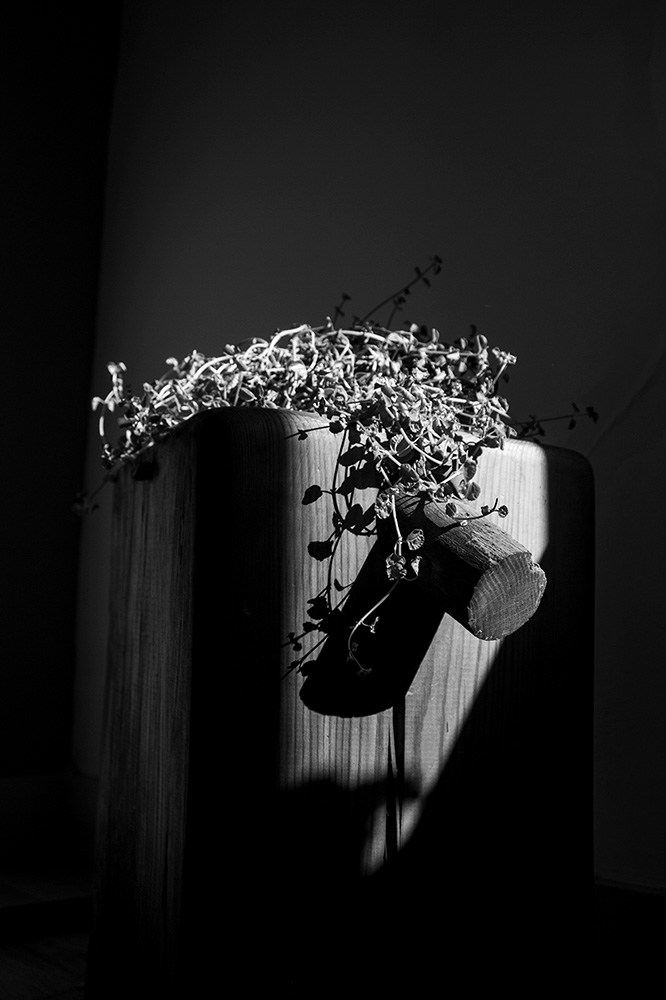
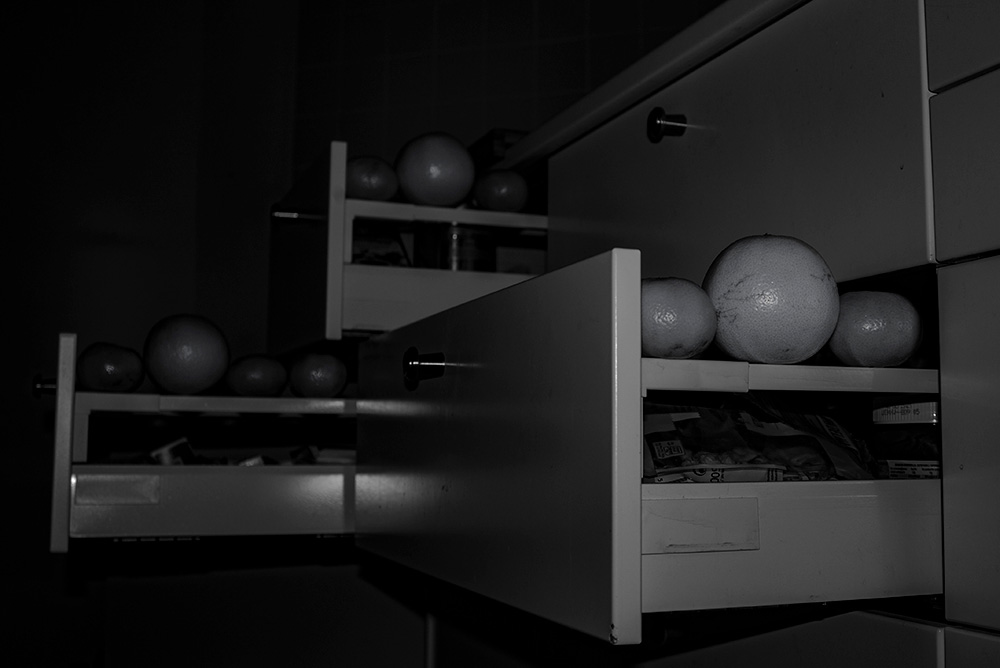
I think we all have to agree the world’s a little overwhelming half the time we’re in it. We’ve grown so used to the chaos around us that we never stop to acknowledge the small things. Like how many corners your house has, or how that brown stain got on the wall. And those are the things that keep us grounded. Our mothers used to put up in a corner as punishment so we could think about our actions. Psychiatrists put patients in a white rooms to stare at the walls. Prisoners are put in solitary. That gives them time to reflect. It’s a harsh method yet sometimes necessary. But out of necessity, comes the absurd. And out the absurd, comes truth. And that's when the meaningless becomes meaningful. When it’s needed. We don t know how to be alone anymore, so we re all ticking time bombs. We’re all on the edge. Who s falling first?
Daria-Ana Oprean (1BA) |
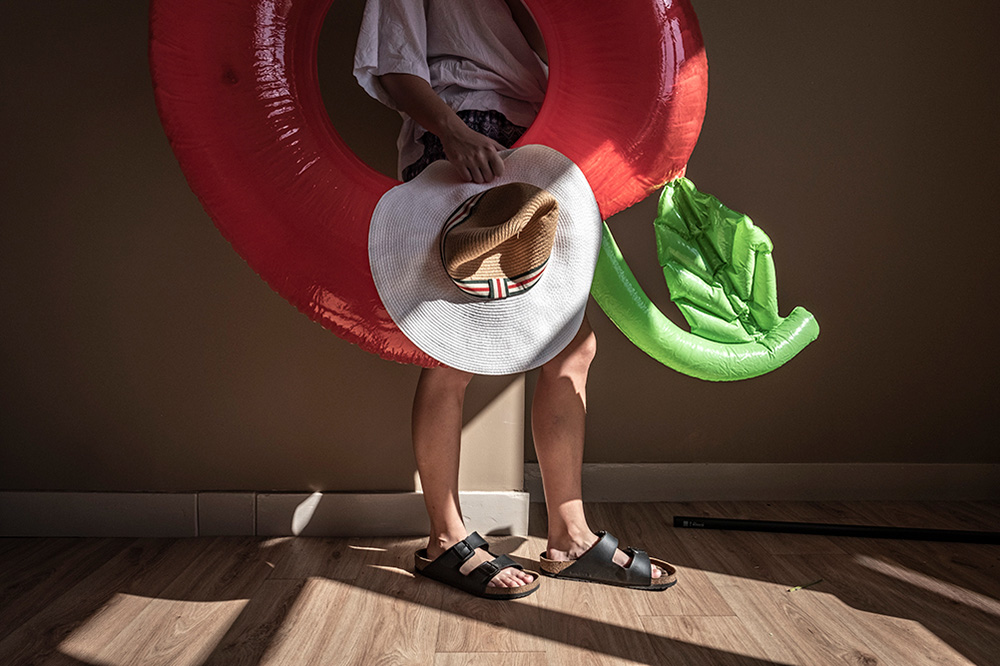
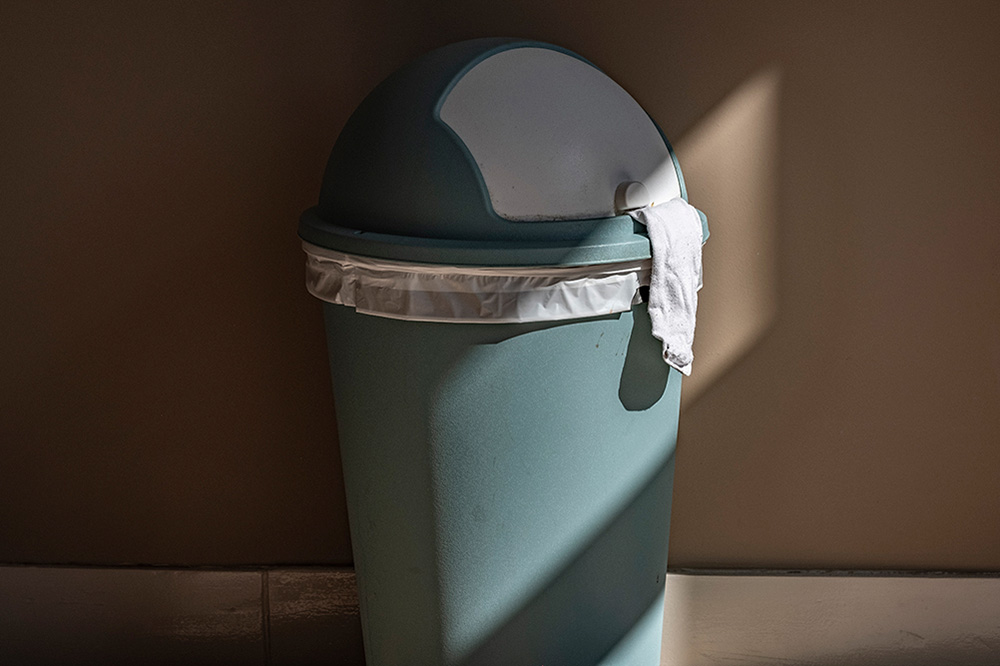
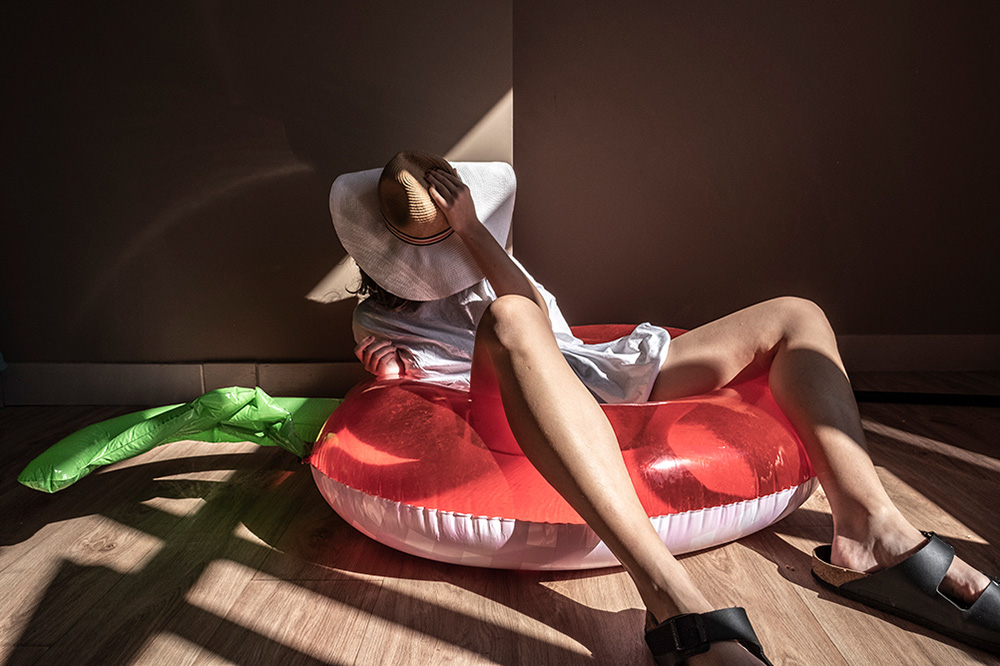
Living in a world where your have to remain stuck in our collective society, and our individual reality, the small meaningful moments remain unnoticed by us, and they suddenly become unimportant.
We live in a world where things constantly change, whether you want or not, where things that you knew, saw, and felt are not the same anymore.
We tend to skip ahead and ignore the “insignificances” in our life, being more focused on the loop in which we are all spinning.. Moments are not observed anymore.
Every small action has a meaning. Take a better look at it, it could change your whole perception, it could make you smile.
Having to face a situation that never occurred before, that we never had to go through, could change all of us. We have to spend the time with ourselves, observing life and surroundings that before were just passing by. Small things are big things. Meaningless has no definition.
I see this experience as being a challenge for me and I think for all of us where we realize that even without being able to leave our apartment, there are so many things we can create, develop, learn.
Robert Sasarman (1BA)
|
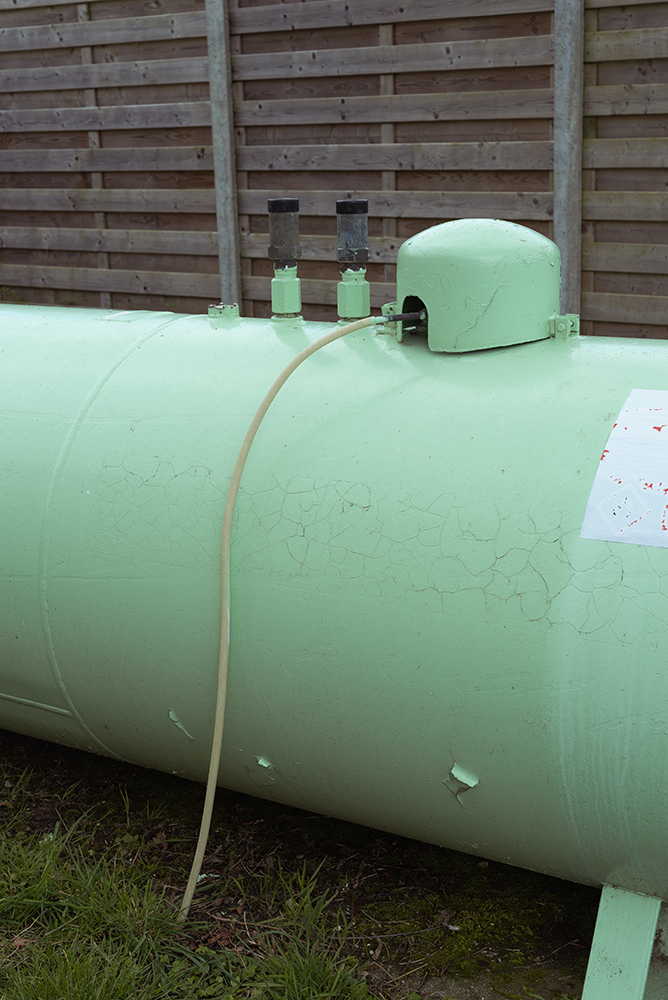
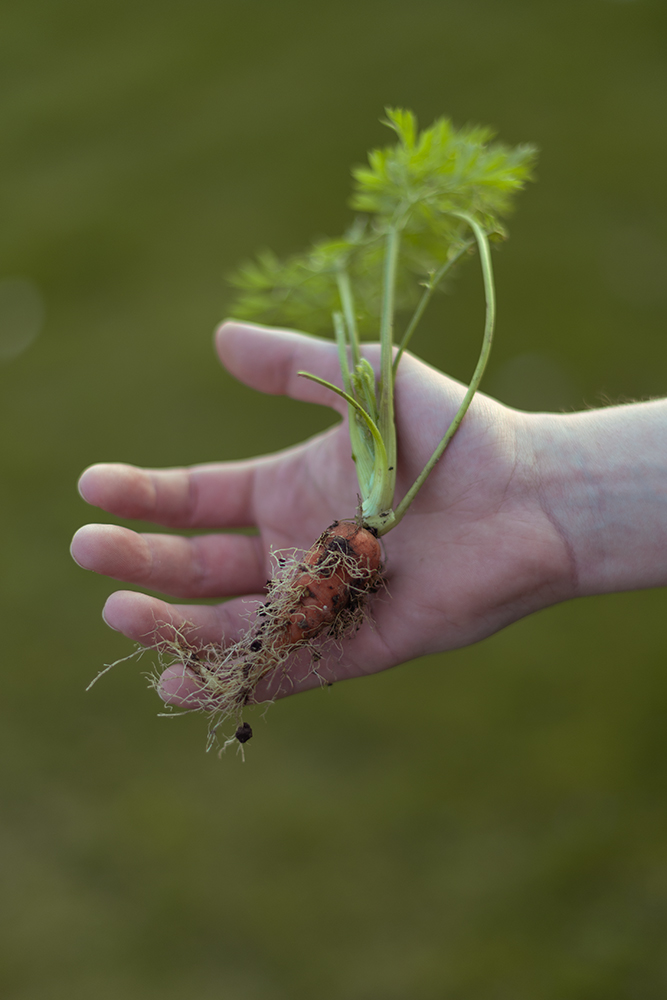
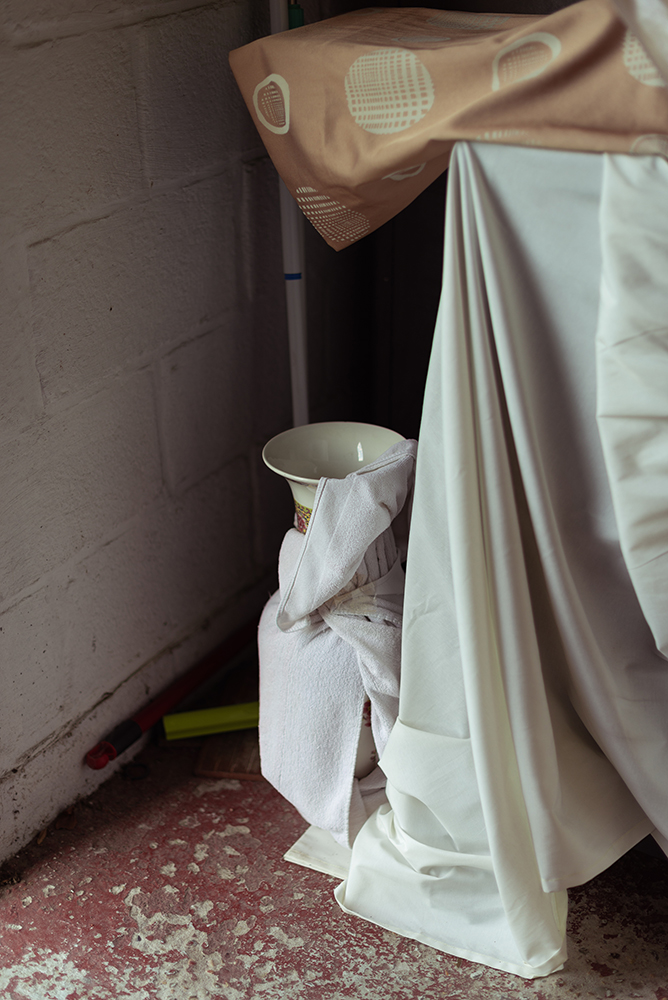
If there is one thing that I learnt that hard way is that we take life for granted. We act like all of this we have around us, is there because not only we deserve it, but will also will always be there. But lately I have been working on the idea of the past, and there is this curious thing about memories: sometimes the most absurd and mundane things are the ones that caught up with us.
My memory of my childhood in Spain is almost completely wiped. Yet I remember I had a green Mickey Mouse umbrella: I used it like a fair attraction for our barbies, when playing with my cousins in Colombia. I was around 4. I also remember the play station 1 that I broke when I was around 6, or the numerous times we went to the beach and ate fried fish with coconut rice. But after I was 8, once I met the snow, and that was it.
Now I contemplate life in a different way. I have stayed home for more than a week and I remembered that I used to love to go to skate to the beach in Spain, or to go have a walk with my parents. With time and distance it seems like I forgot how all those small and maybe meaningful things are what really makes us who we are. And now that I have so much time to reflect on what we really are and what our fragile lives mean in this vast world, I am starting to realize how important those small insignificant details are. We will not be here forever.
Ana Lucía Fernández (1BA) |



Today I tried to keep myself busy, to prevent boredom. We're maybe one week into the serious corona crisis, Belgium has not even went in lockdown yet and my normal life routine is disturbed. It is as if time, space and the people that live in it have been altered. I found it difficult to deal with, to stay home and just sit around when normally this is what I would wish for. I don't feel isolated yet but I feel it coming slightly.
When I looked outside the sun had started shining. A moment everyone looks forward to after a grey winter. I found productivity in looking at the light so I started taking pictures. By photographing my mind started racing, thoughts and questions popped up even when I was just messing around.
By doing something, just something, my mind became a space of its own, and images were being created. They don't look nearly as experimental as my ideas felt at the time I made them. Yet they are here now. Ready to be given meaning by how I feel to sequence them. When in a state of meaninglessness everything is available to be given meaning to and so meaninglessness creates meaning, which is pretty meaningful.
Anke Defossé (2BA)
|
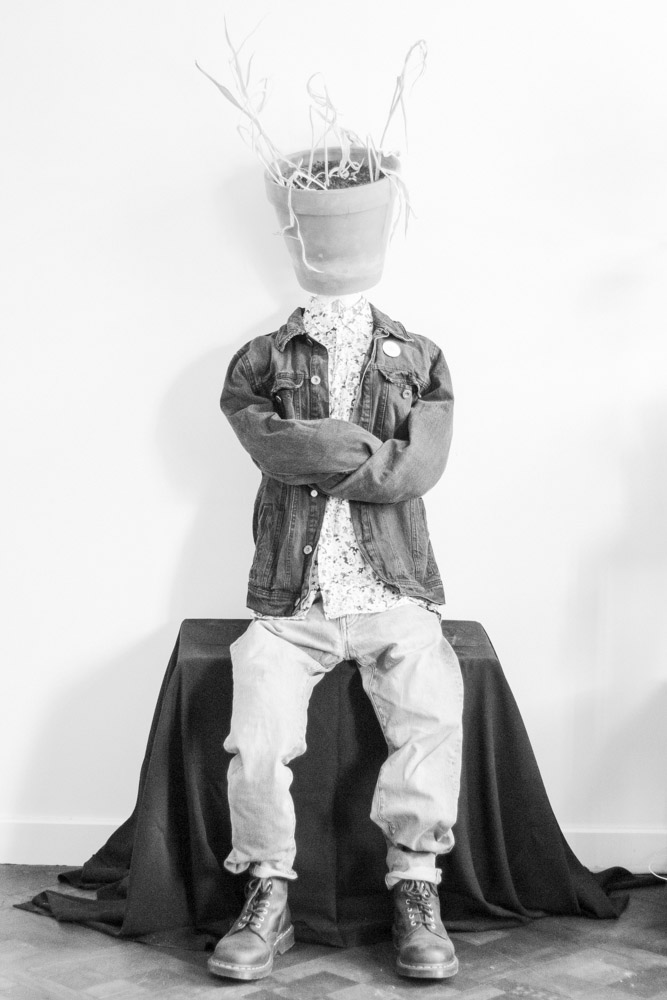
I reckon this is the best time to reflect on this topic. This unique situation left us with no other choice, but to find some meaning in the most banal things which are surrounding us during the lockdown.
For instance, washing hand until the epidemic was the most average everyday action which we went through on a daily basis. No deep thoughts were connected to the act. We can call it an empty deed. Now that the situation changed, we are looking it as our main weapon towards containment and stability. This ostensibly meaningless act turned upside down in the modern society and it partly became everybody's biggest concern. What we see as meaningless or banal are only just a reflection of the given situation. If the “wind” changes our perspective on our actions are changing as well. Especially when it creates such a bottom-up setting like as we are living through now.
The other thing which caught my attention was hoarding the toilet paper. In my mind toilet paper purchase is the most mundane thing that can happen with a person. It is a must-to-do element of my week which I had to do no matter what, but here it ended. No prior nor future thoughts. Now people started hoarding up this item as It was salvation in any way. Europe does not have any shortage on this product. If it would I would understand the phenomenon, but on the contrary. We have plenty enough and people still went mad for it, resulting it become an icon for long term safety.
Aron Viszló (2BA)
|
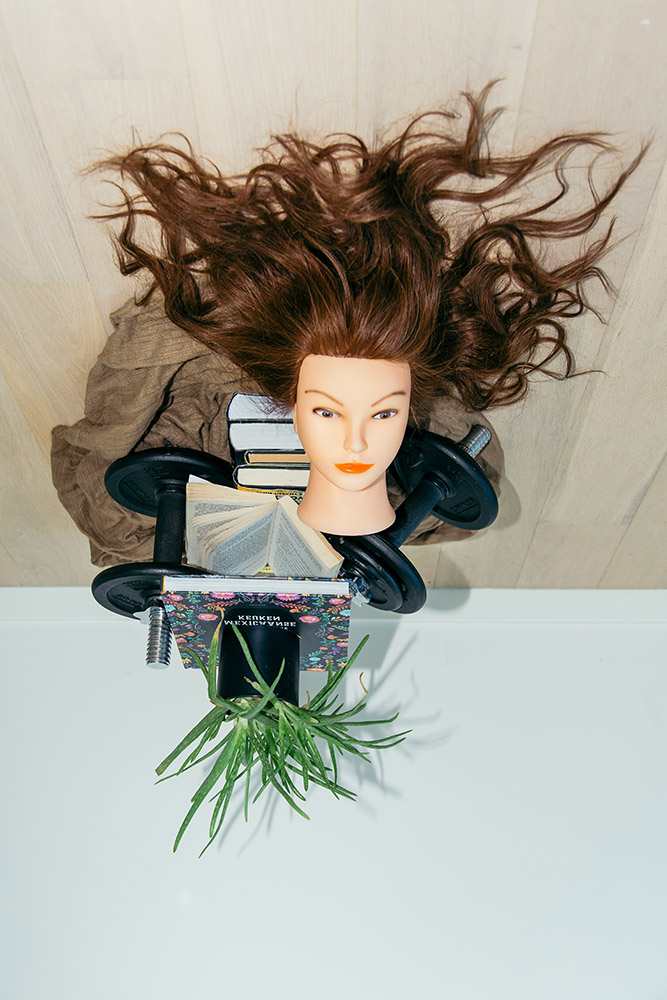
I believe that the in era we are all living nowadays, time has become a serious issue. We are always complaining that we don’t have enough time to do everything we would like to, or need to, or that time is passing so fast that we can barely keep it up with our schedule.
Now, with this whole forced isolation, the struggle is to deal with time in a different way and what to do with all this time that suddenly shifted from lacking to excess. Suddenly, we realized that time has somehow been swallowed by all the activities that we most of the time perform in a kind of autopilot mode. Suddenly we realized that there was so many other things to be done and because of our stablished routine we simply didn’t give to them as much importance. Suddenly we started perceiving that procrastination means a different thing when we do have more time left.
All of sudden, we started to pay attention to the small, and most of time, overlooked, meaningless things of our day-to-day that reached, by the force of the circumstances, a different status. Every second counts, but it counts differently. Every action count, but it counts differently. And in a world where the simple things lost their real significance, we all had to relearn how to place them back in this immense time/space dimension of our lives.
Bruce Bomfim (2BA) |
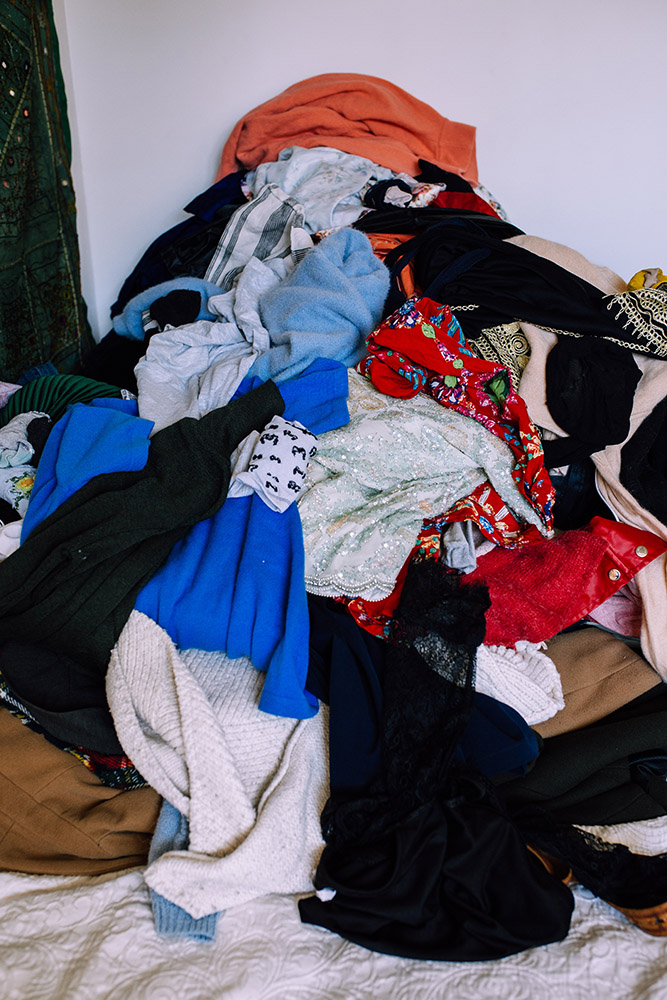

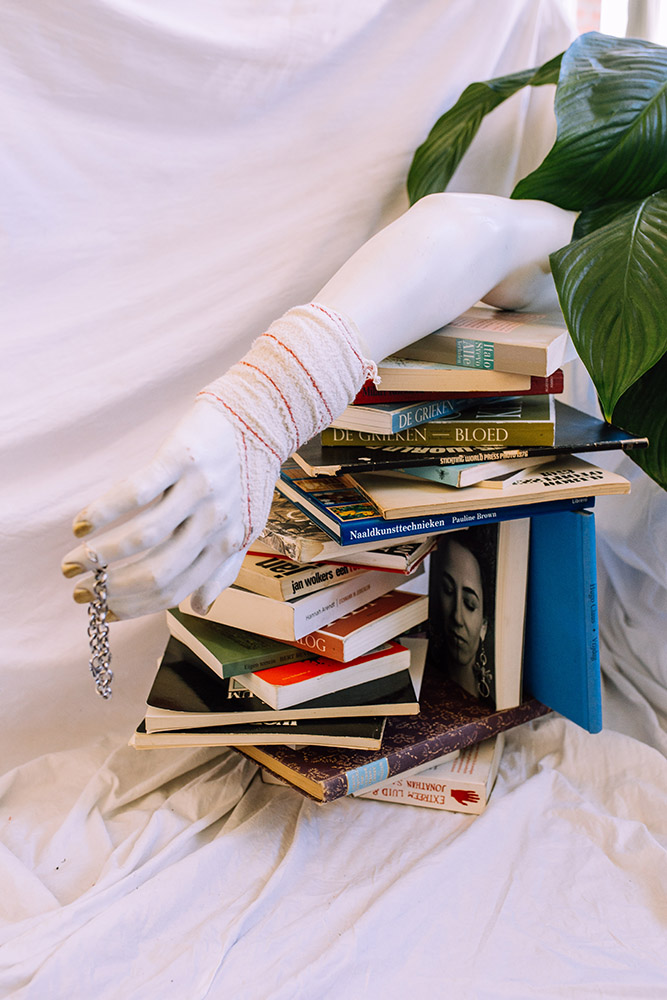
Betekenisloze actie kan veel betekenis hebben. Zeker in tijden van isolatie. Een overkoepelende term voor wat iedereen ervaart op dagen waarbij de dagelijkse routine op pauze wordt gezet, is verveling. Verveling is een kunst op zich en moet niet bestaan uit niks doen. In tijden van verveling maken we plaats voor zelfreflectie. We verkennen onze innerlijke belevingswereld zonder een overmaat van prikkels waar we op reageren. We maken onze eigen prikkels. Betekenisloze actie kan in veel vormen voorkomen. De mensen waar ik mee samenleef maken er hun werk van om alles te doen waar ze voordien geen aandacht aan zouden besteden. Gisteren stonden ze in de keuken lippenbalsem te maken van oude resten. Niemand zit hier op te wachten en het is ook geen betekenisvolle activiteit buiten het feit dat het een activiteit/actie is. Mensen zijn altijd op zoek naar productiviteit. Een manier om dagen op te vullen en te gaan slapen met een gerust hart wetende dat men die dag geleefd heeft en een doel heeft volbracht, hoe klein dit ook mag zijn. Hetzelfde geldt voor mezelf. Voor de opdracht wandelde ik rond in ons appartement op zoek naar objecten om op te stapelen tot er zich een interessant sculptuur of set-up kon vormen. Opnieuw besteed ik aandacht aan dingen die ik normaal aan me voorbij zou laten gaan. Maar vandaag en de komende weken wordt dit een nieuw tijdelijk levensdoel omdat er geen andere opties zullen zijn. Het leven zal bestaan uit invulling door betekenisloze acties die ons zullen leren om ons te vervelen. En dit is exact wat hier betekenis aan geeft. Gisteren zaten we op het balkon en stelden we elkaar vreselijk moeilijke vragen waar niemand beter van wordt zelfs als ze beantwoord worden. Het was bijna frustrerend om na te denken over dingen die nooit zouden kunnen gebeuren of dingen die al gebeurd zijn en waar niks meer aan veranderd kan worden. Maar opnieuw dragen deze stomme vragen bij aan die innerlijke reflectie die ons deze dagen bezig houdt.
Catherine Smet (1BA)
|



Bij het nadenken over het betekenisvolle in het betekenisloze veronderstellen we dat er een gradatie in waarde is in de zin van het leven.
Ik denk dat het voor ons, in tijde van quarantaine, belangrijk is onze oogkleppen af te nemen. En daarbij gevolg alle vormen van hiërarchie uit te schakelen. Het is immers verkeerd stil te staan en genoegen te nemen met één enkele manier van zien. We moeten leren conclusies te trekken uit wat jij, als individu kan waarnemen en je niet te wagen aan iets wat een hypothese is. Er is immers geen mooier schouwspel dan het gevecht van de intelligentie met een werkelijkheid die ze niet de baas kan.
Door alle eigen ervaringen, zowel zintuiglijk als inwaarts, als absolute waarheid te nemen kan men pas nadenken over de kwaliteit van ‘het betekenisloze’ en ‘het betekenisvolle’. In plaats van de kwantiteit. Door alleen te leven met wat jij weet, de dingen te nemen zoals ze zijn, en niet te laten meespelen wat niet zeker is kan men pas ‘het absolute’ ervaren. Ik hoop dat mensen in deze tijden dichter komen te staan bij een waarheid die meer de hunne is in plaats van een conventionele waarheid. Het is belangrijk deze manier van denken in overweging te nemen en niet verloren te geraken in wat nu echt betekenis heeft.
Het is goed deze verplichte isolatie als een kans te zien om los te komen van huidige conventionele ideeëngoed en op zoek te gaan naar jouw betekenis, een waarheid.
Ean De Maeyer (2BA) |
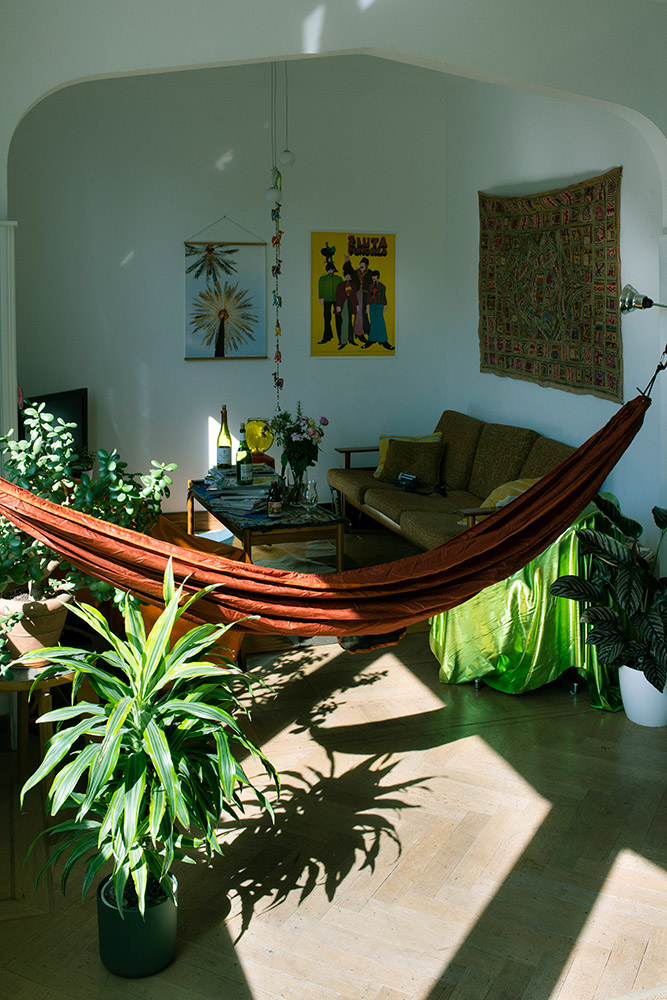
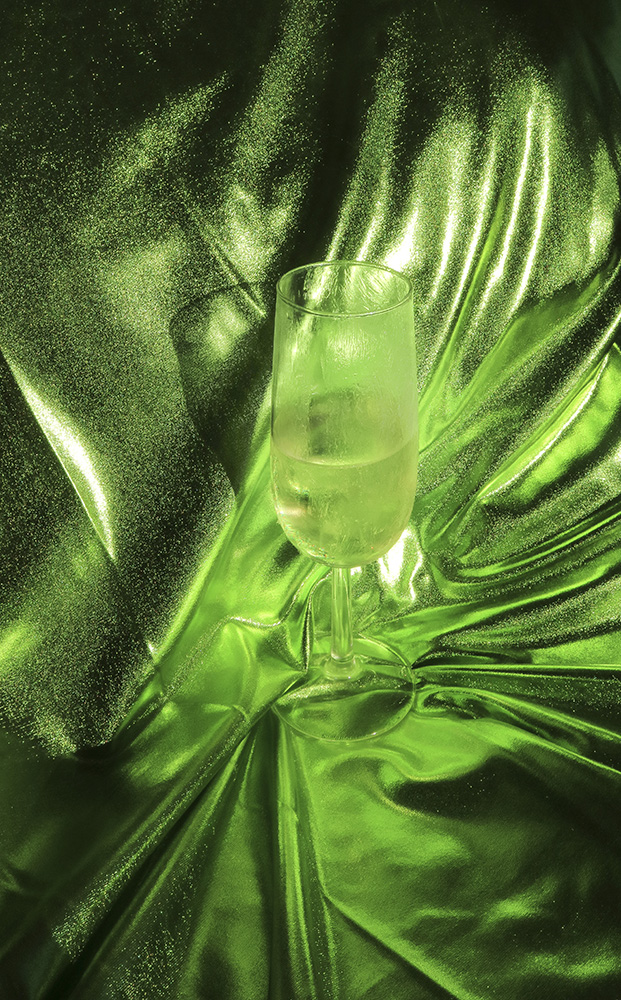
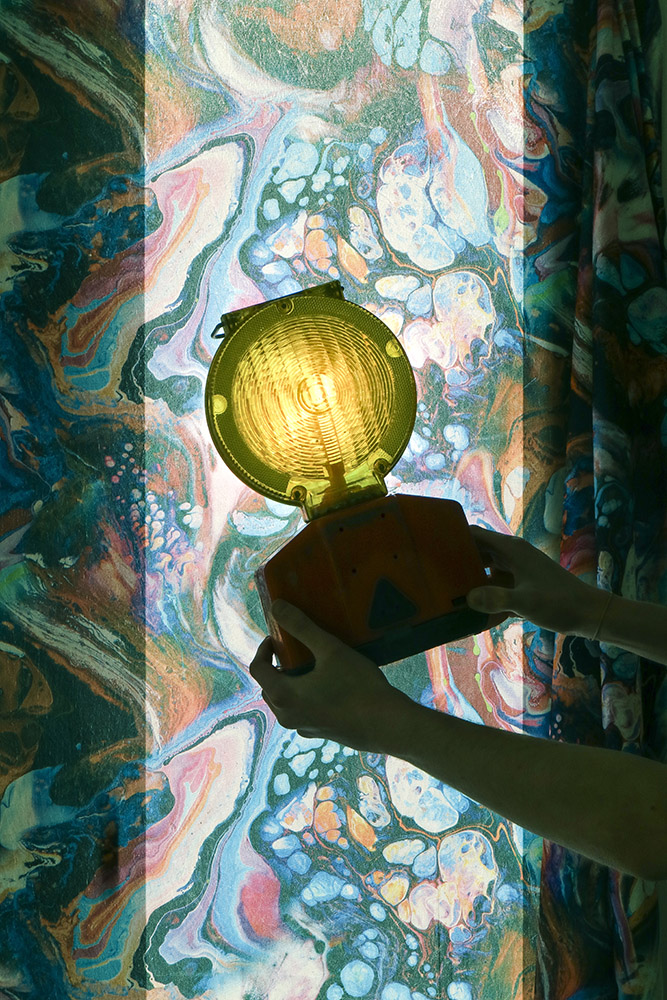
Everything exists on its own, but together in some sort of oneness. In times of corona we have felt this deep down as we all exist on our own, yet still somehow we go through this together. Getting stuck in the field of meaninglessness gets us nowhere, and as such, we currently exist in a space where we need to stimulate our minds to travel, as out bodies are constraint within our houses. Seemingly meaningless actions are merely a field we have to pass through. In my pictures I encompass a vizualization of the thought that no action is inherently meaningless. It is simply a matter of attaching the right value to the process of action, not matter how meaningless it may seem. Everything builds off of each other and the optimism behind the train of thought in the series of events will define our time in seemingly meaningless quarantine.
Eva Thurman (2BA) |
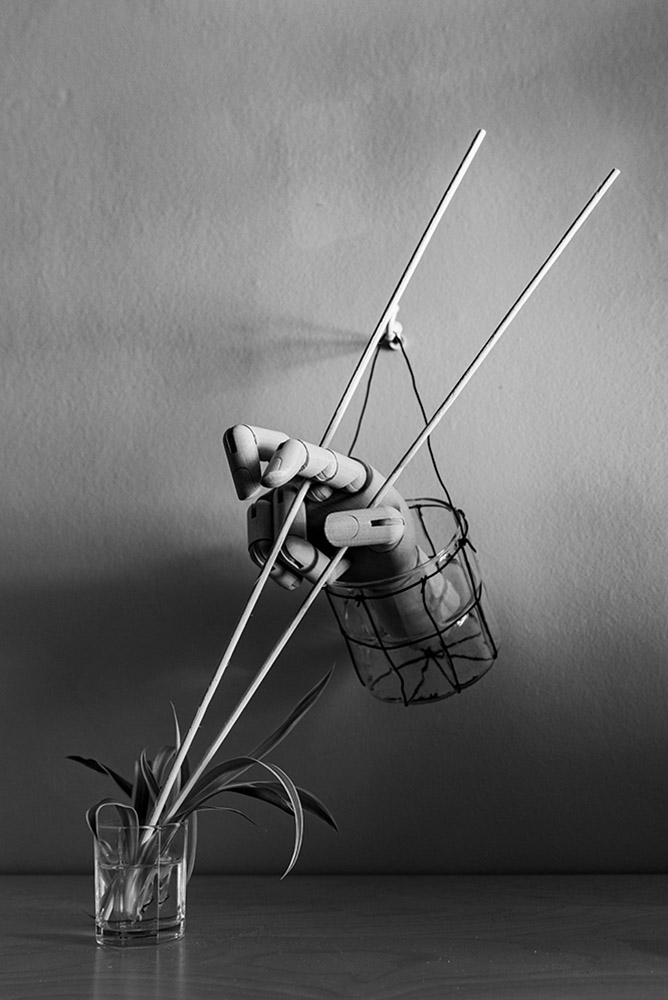
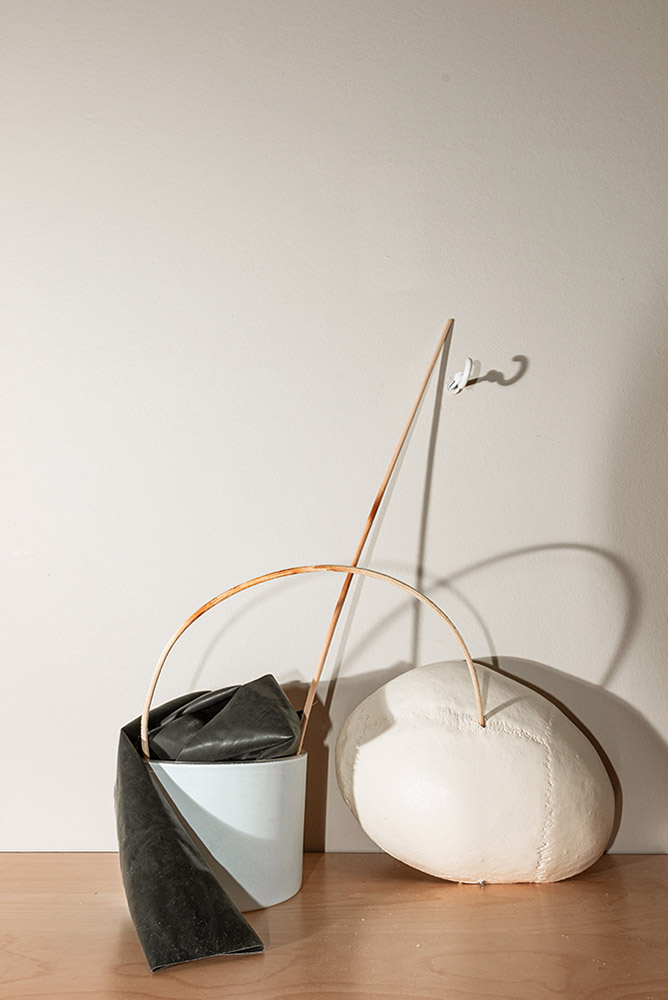
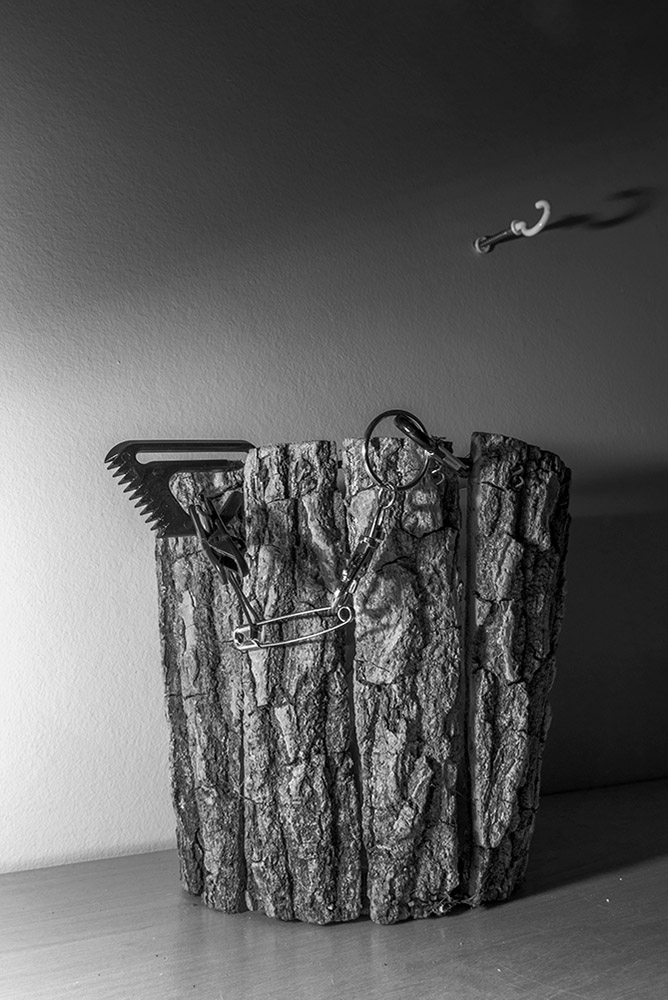
I think these actions can help you think about what is possible. I think it can give new insights and ideas. For me personally it’s like neural connections in your head, like a new light bulb that start burning above your head.
You can place some stuff together that has nothing to do with each other and still make it connect, like the stuff is related. And maybe before you put them together they had nothing to do with each other, but afterwards you might think different about that.
So in my opinion, something that started off as something meaningless, can turn into something that has a meaning. It’s also interesting to see what other people see in your ‘meaningless action’. Maybe for them it makes sense and they do see something logical/ something different in that meaningless action that you didn’t notice.
I think it’s good to do some meaningless things once in a while. Just to make sure you still have some fun, some fantasy, some freedom to mix whatever you want. Definitely in these times where people have to be very realistic, it can be a great outlet.
Iris Maselis (1BA)
|
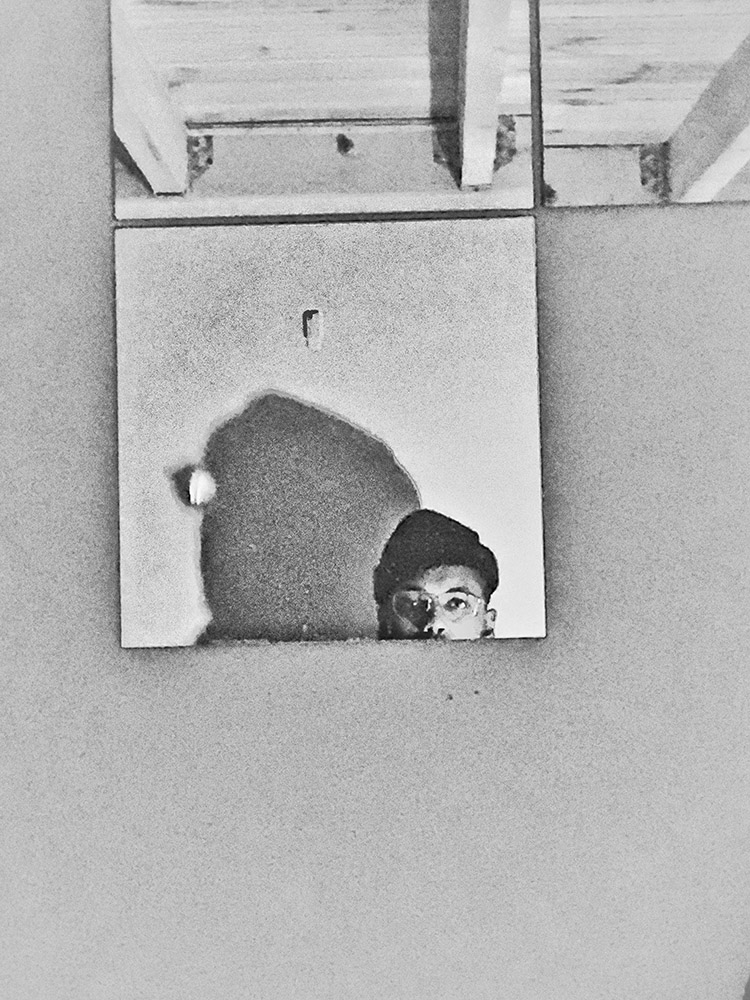
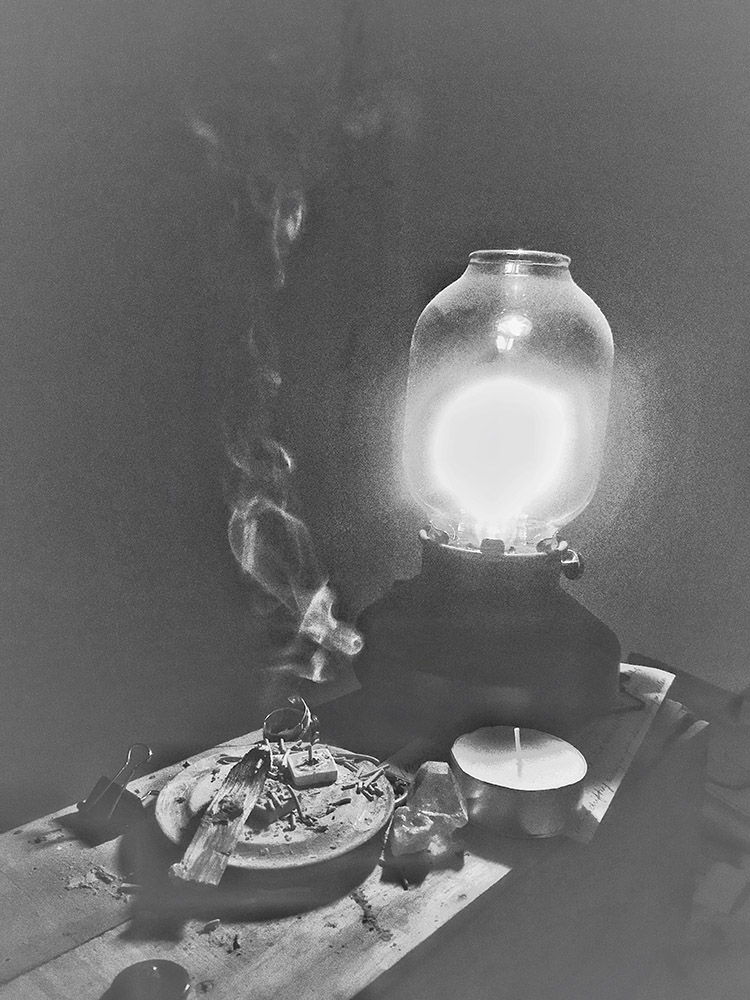
A meaningless thing, draped in some moments, that can be given any title or definition.
Jaïr-Marc Castillo (1BA)
|

Boredom is the catalyser for creativity. The important part is that you fully emerge yourself in that state of boredom without distraction. This is when your mind starts to wander. Whatever product comes out of your boredom has its place and justification. It is ok for it to be meaningless as long as you exercised your creative mind. Meaning can also come at a later point once you return to your work and give it a new interpretation or put it into a new context. Meaning is also highly subjective. Something that does not have meaning to me can have meaning to someone else since we all interpret the world around us with our individual view that is influenced by our upbringing,our experiences and the way our mind operates.
Sarah Kirchner (1BA)
|
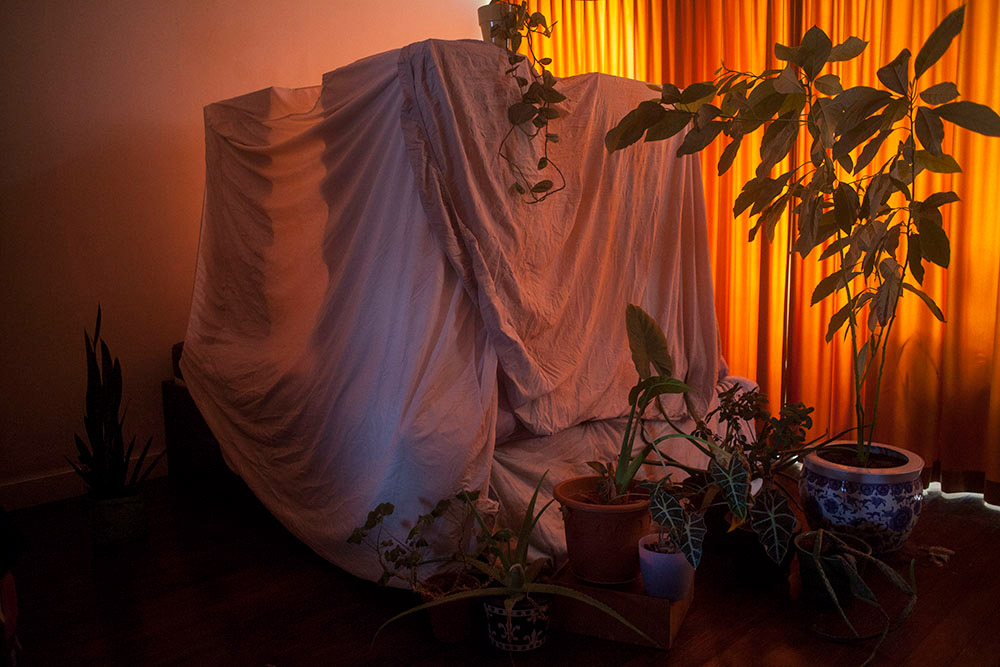
I think we are doing meaningless actions to keep sense of life.
By doing bizarre actions and creating fantasy worlds, we allow ourselves to take distance from reality. When we force ourselves to perform meaningless actions, we can get back to the essential feeling of routine or daily life. Maybe that brings us to the fact that there are no meaningless actions. All actions leads us to a meaning, both good and bad meaning.
Valenina Stellino (Alumnus) |
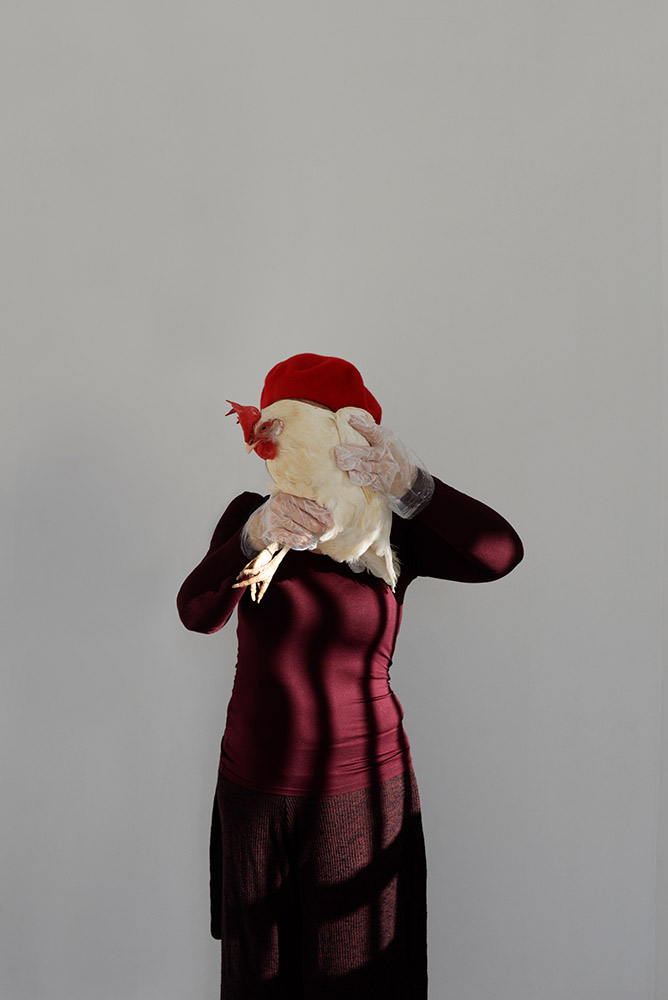
I guess everything has a sense. Humans beings are able to imagine situations miles away from the real world which seems to be absurd. But suddenly all that fiction is able to turn into the reality. And it will allow people to anticipate possible problems.
While we develop our imagination, we are training our brains, we are learning how to find fast solutions to any setback. That means meaningless actions have a meaning. And even though if they don’t have any meaning, they can give you the pleasure itself, it gives you the feeling of freedom that you can build up whatever you want.
Violeta López (MA) |
|





